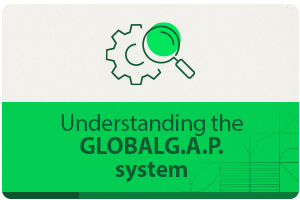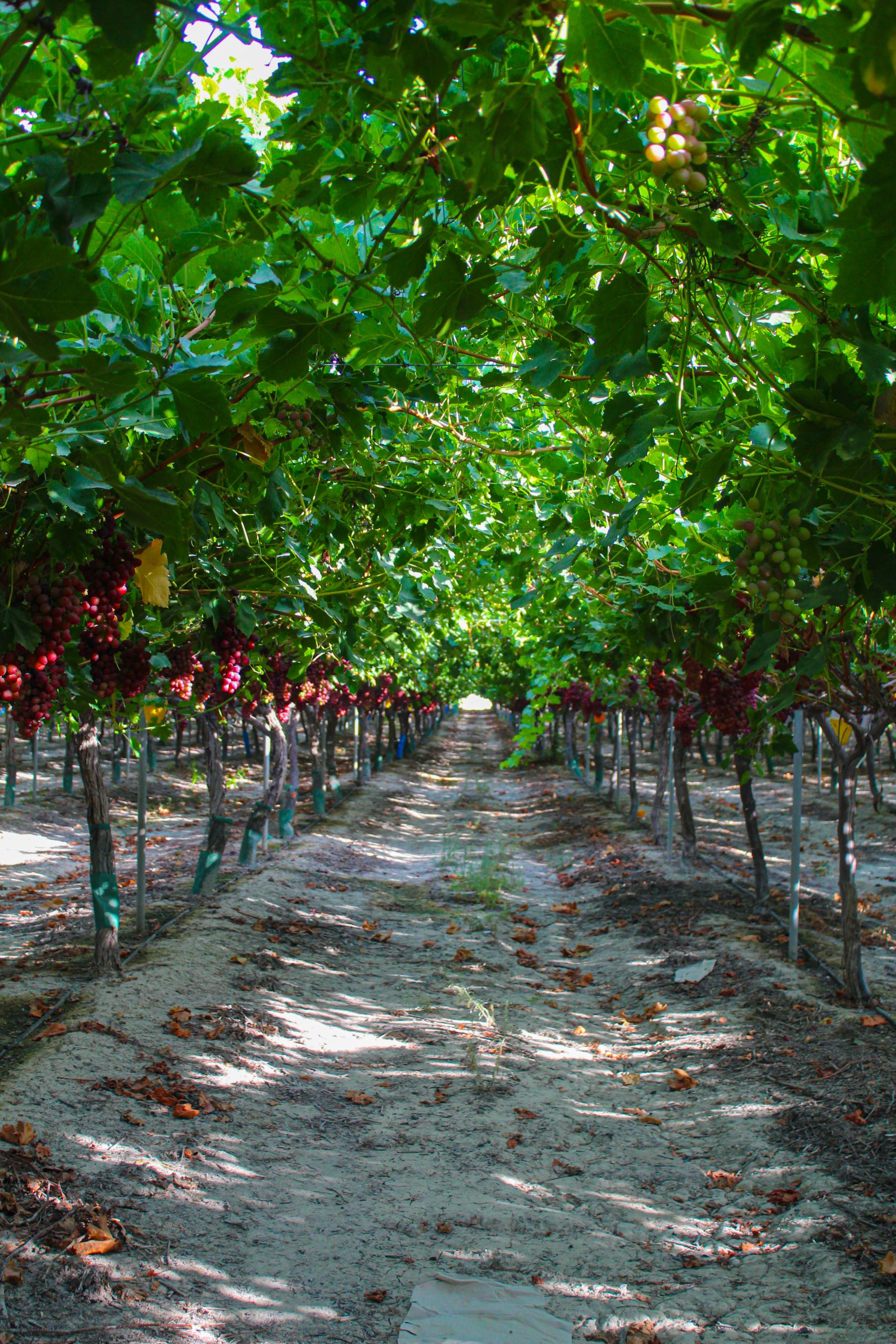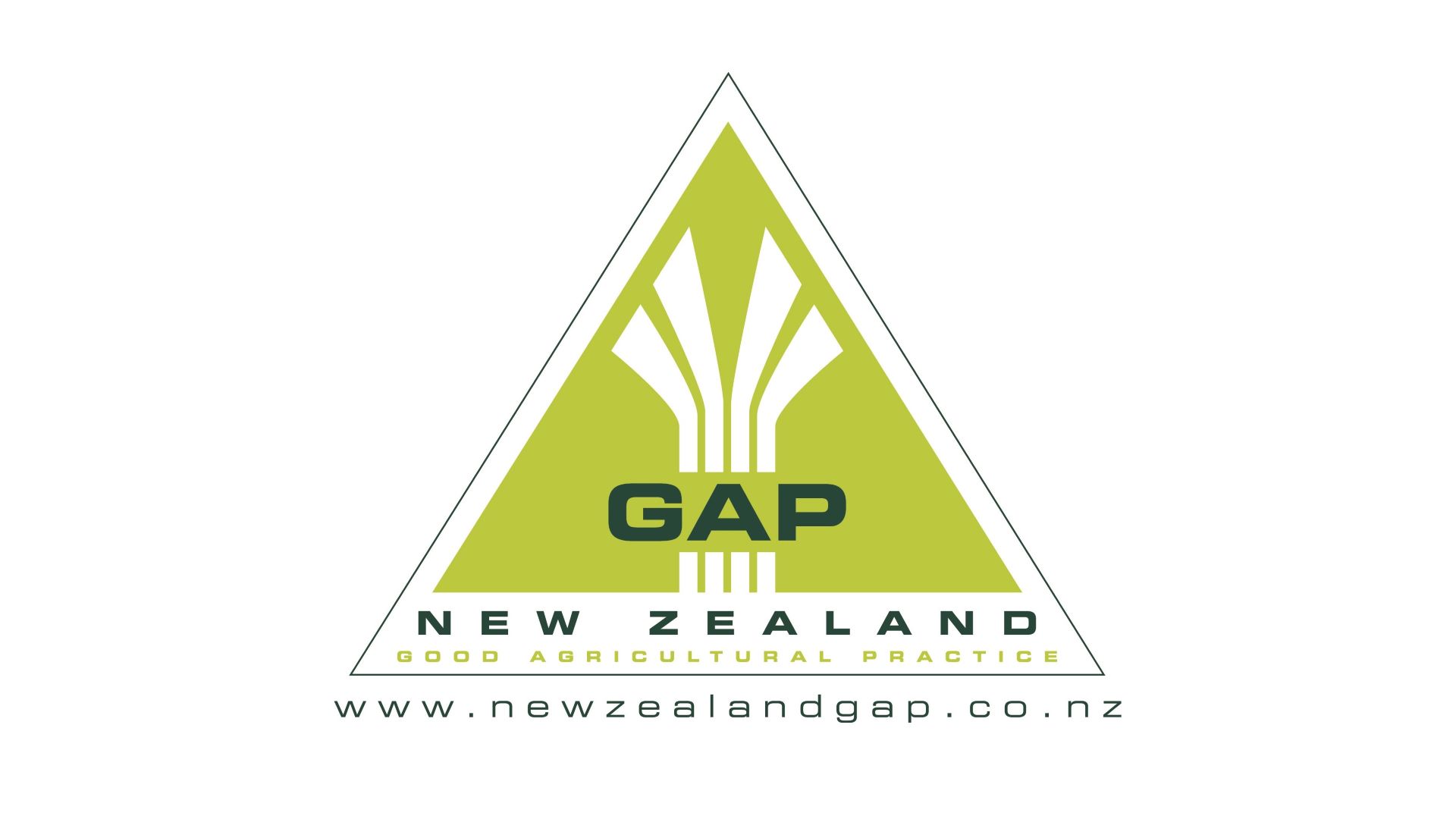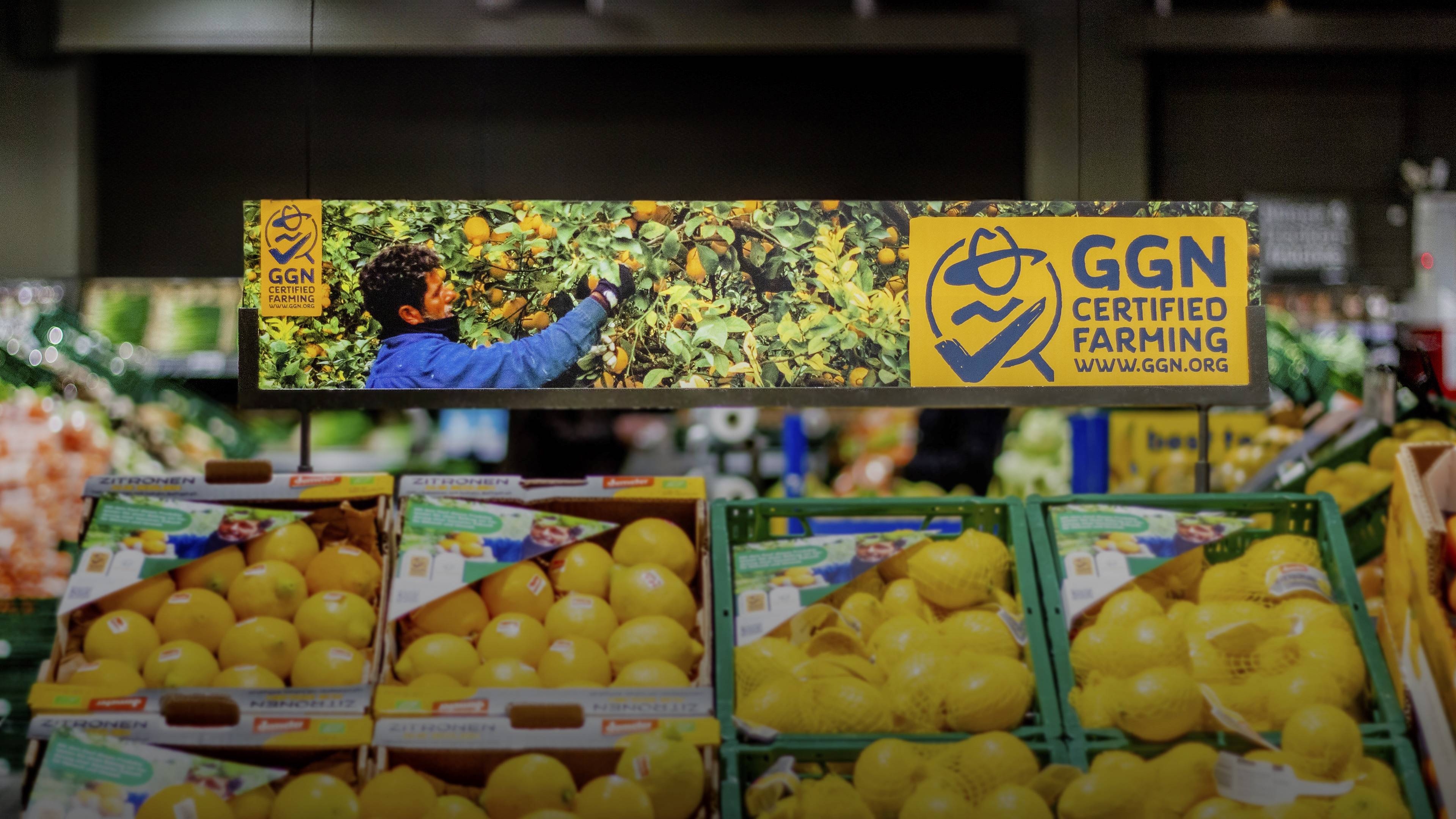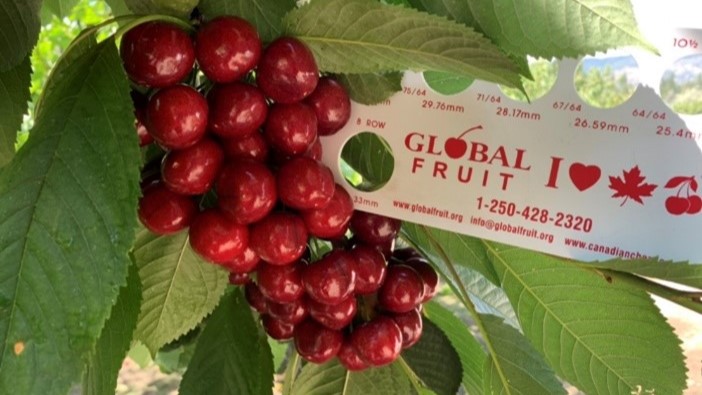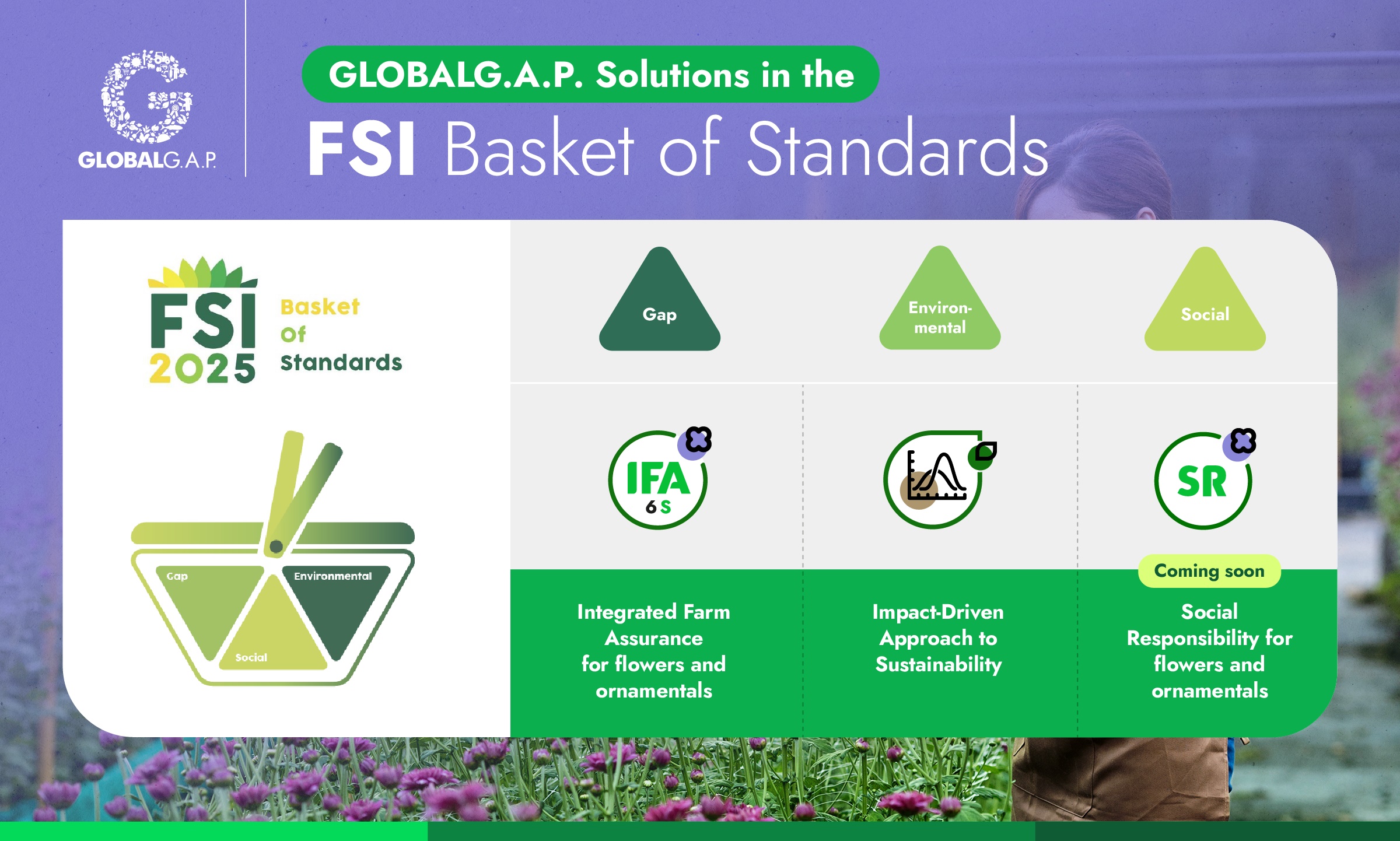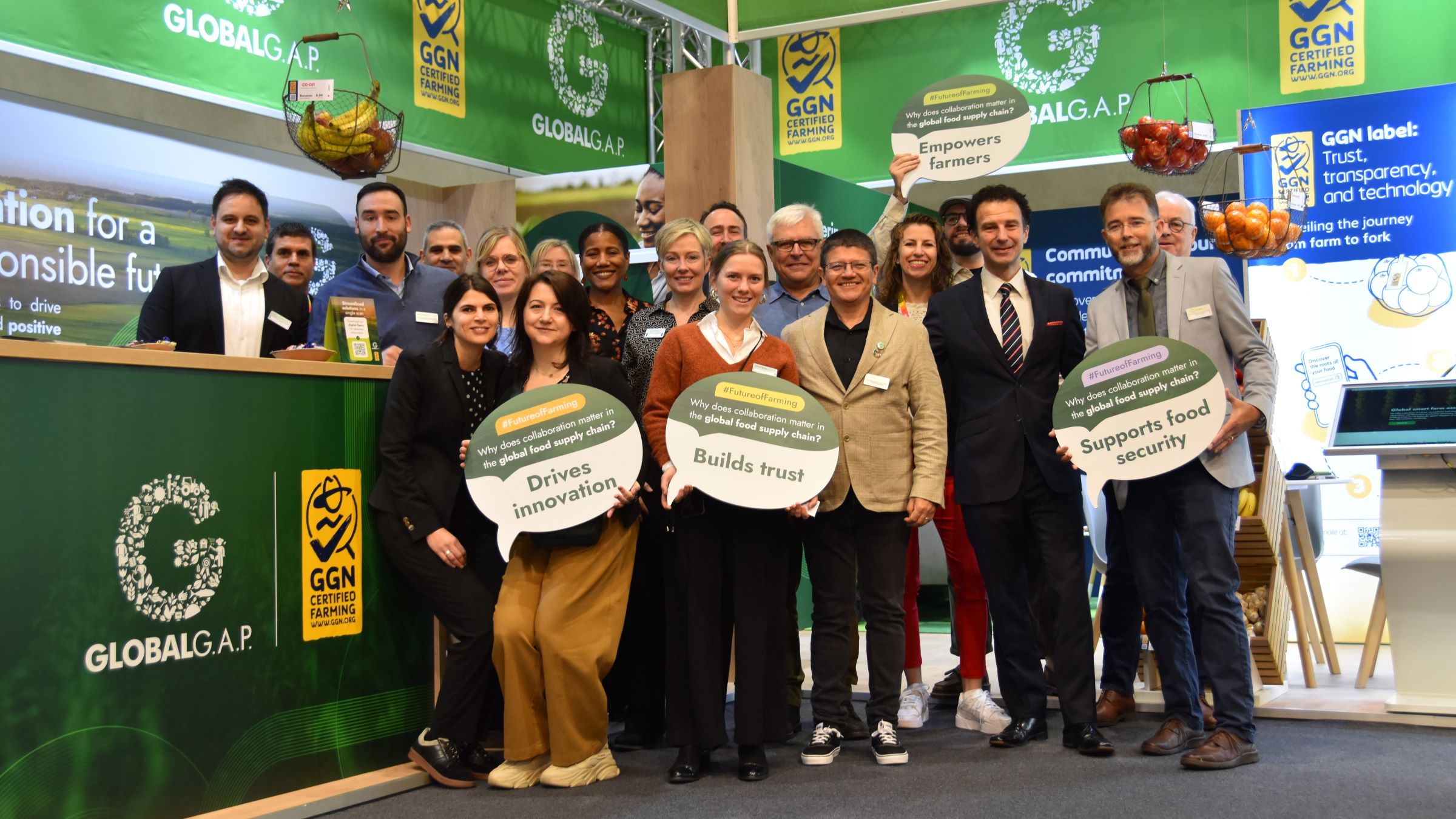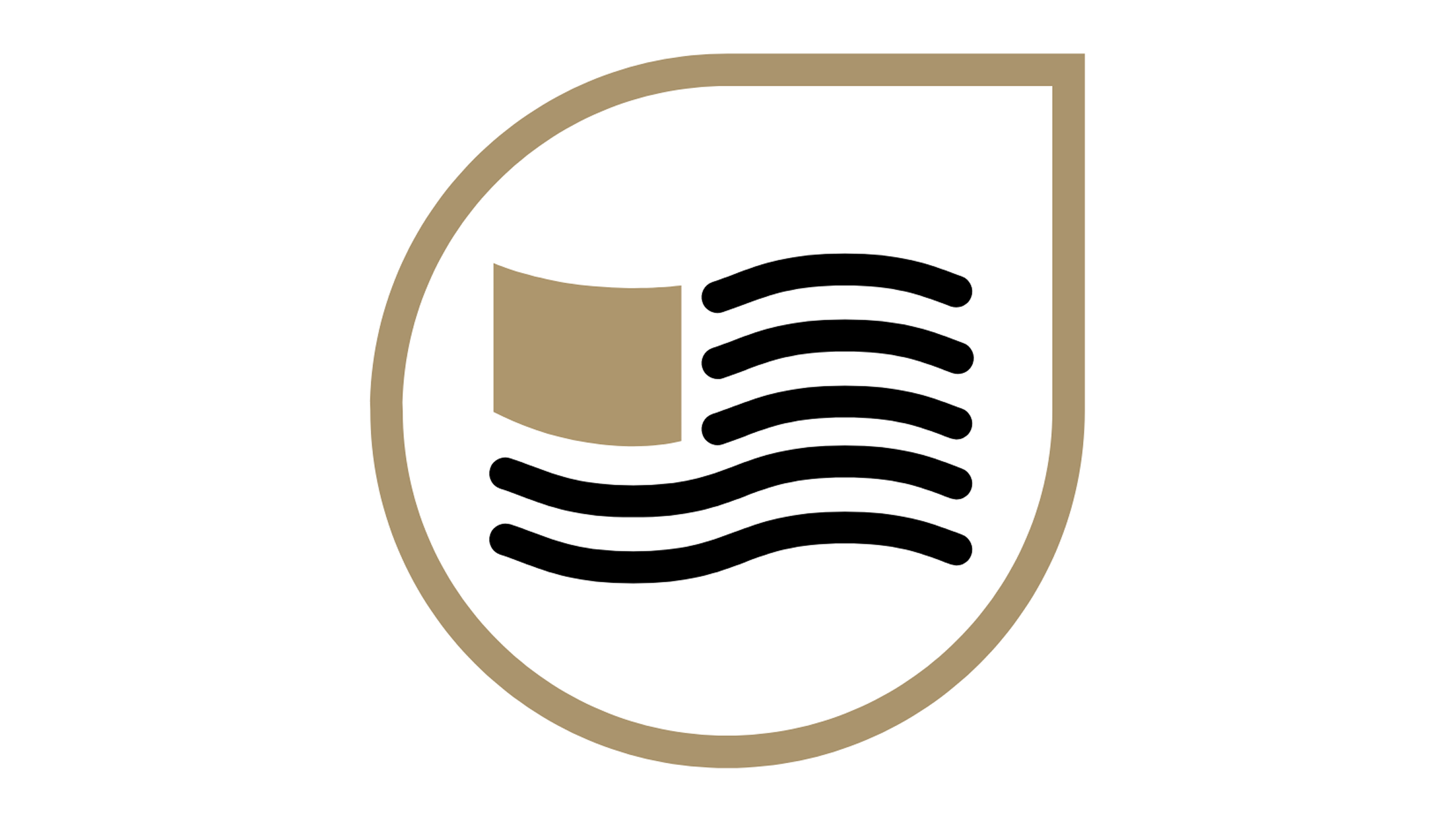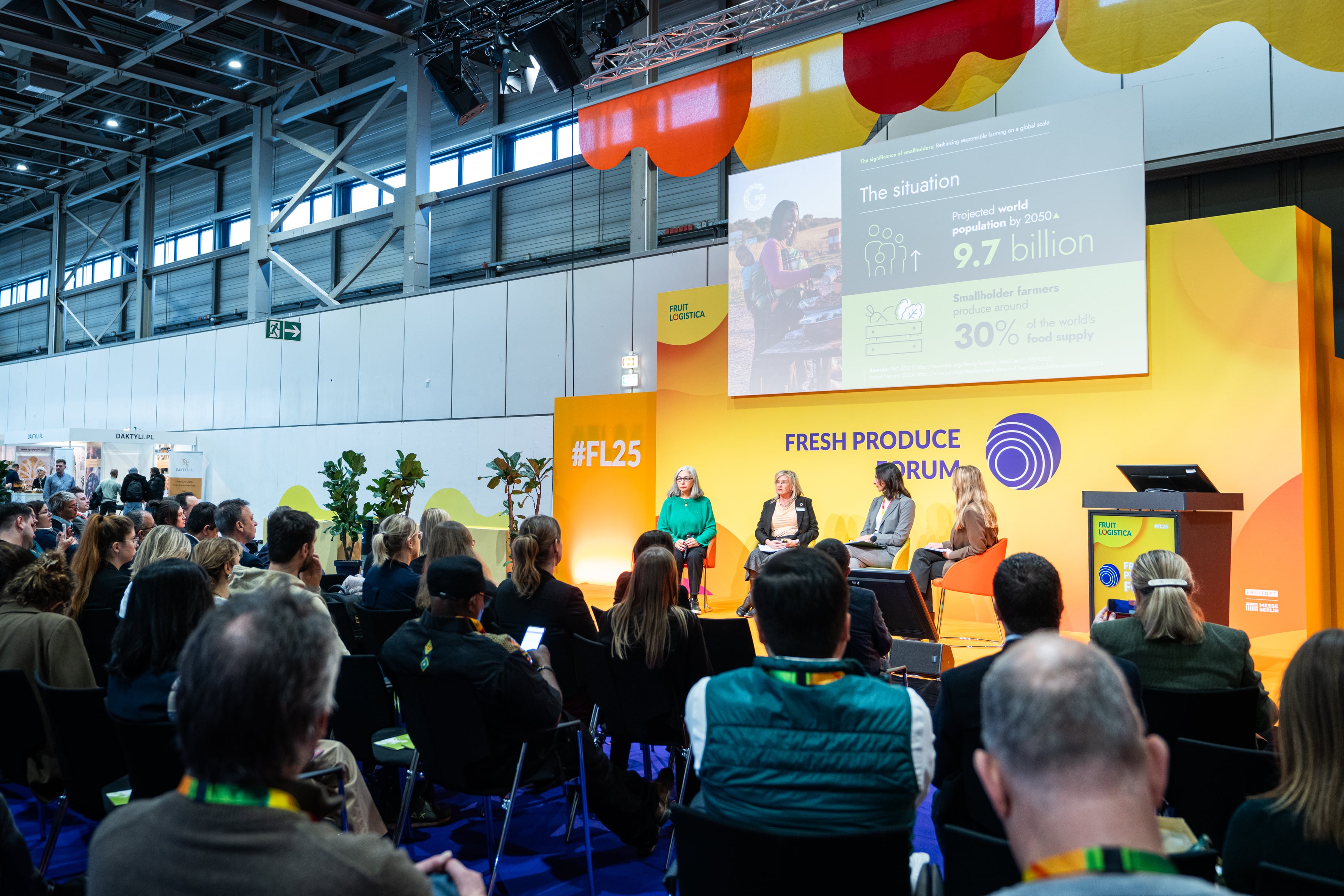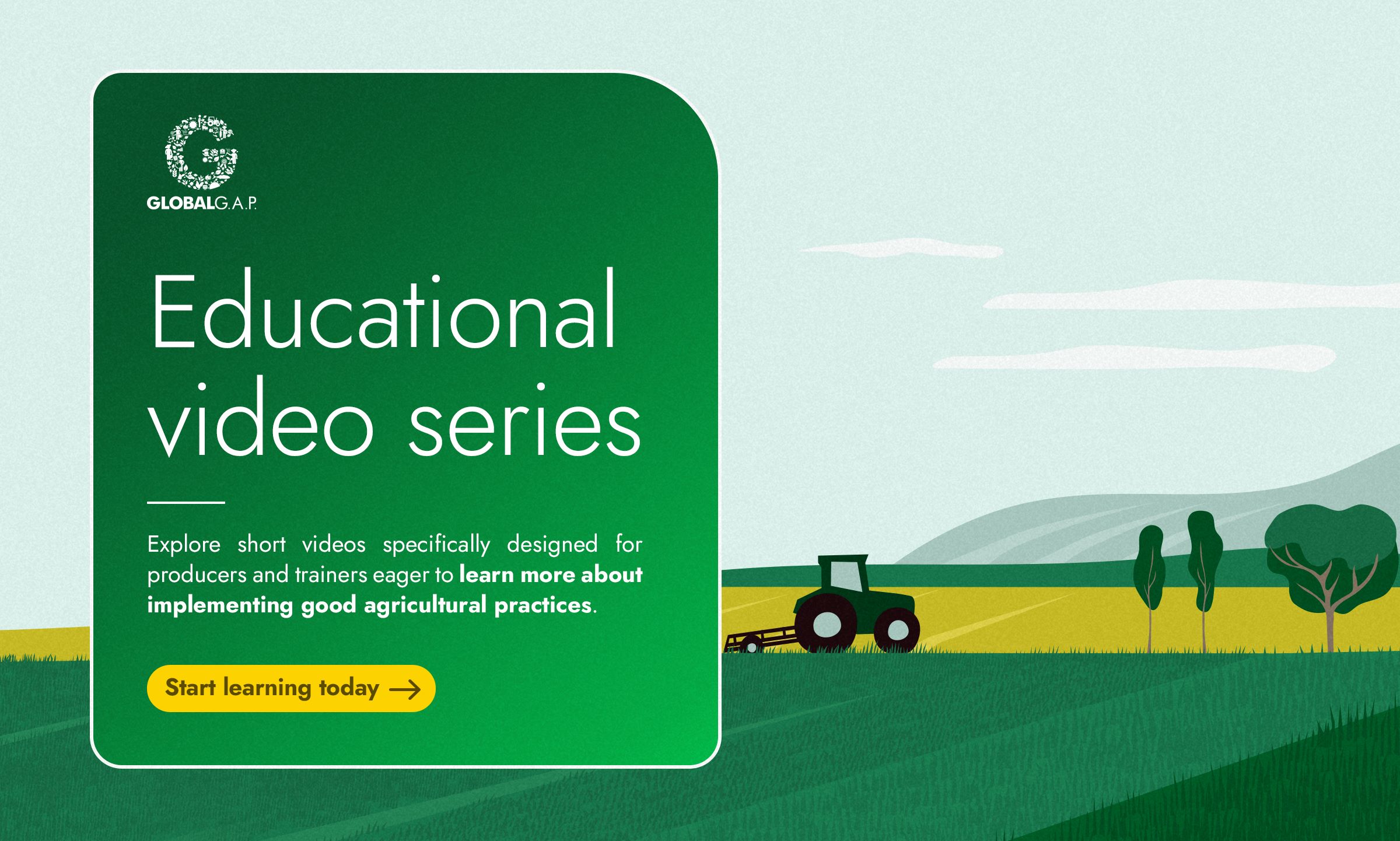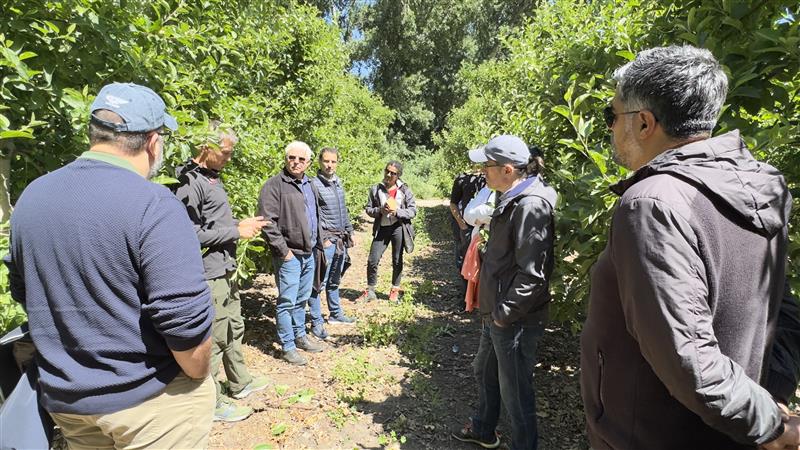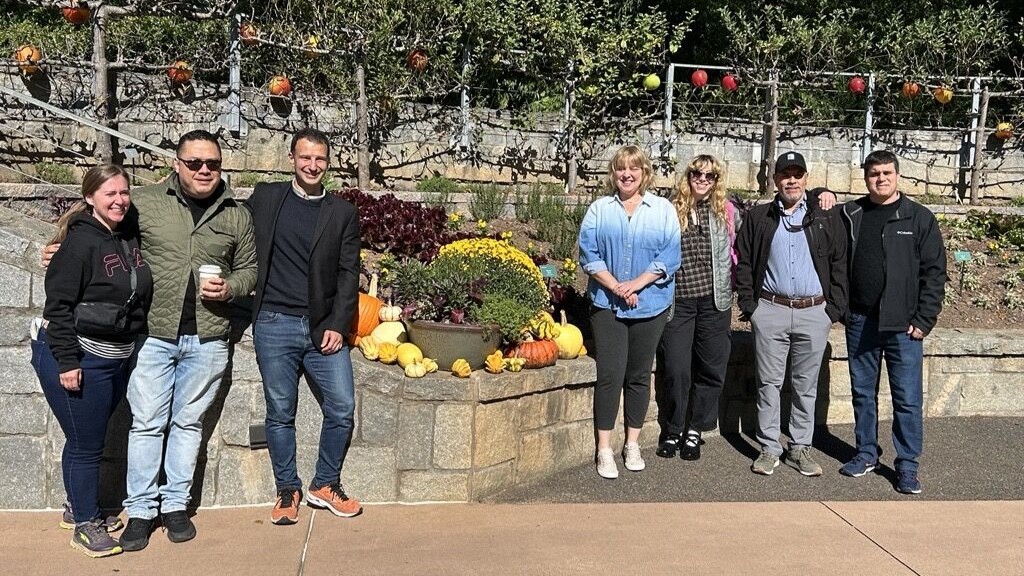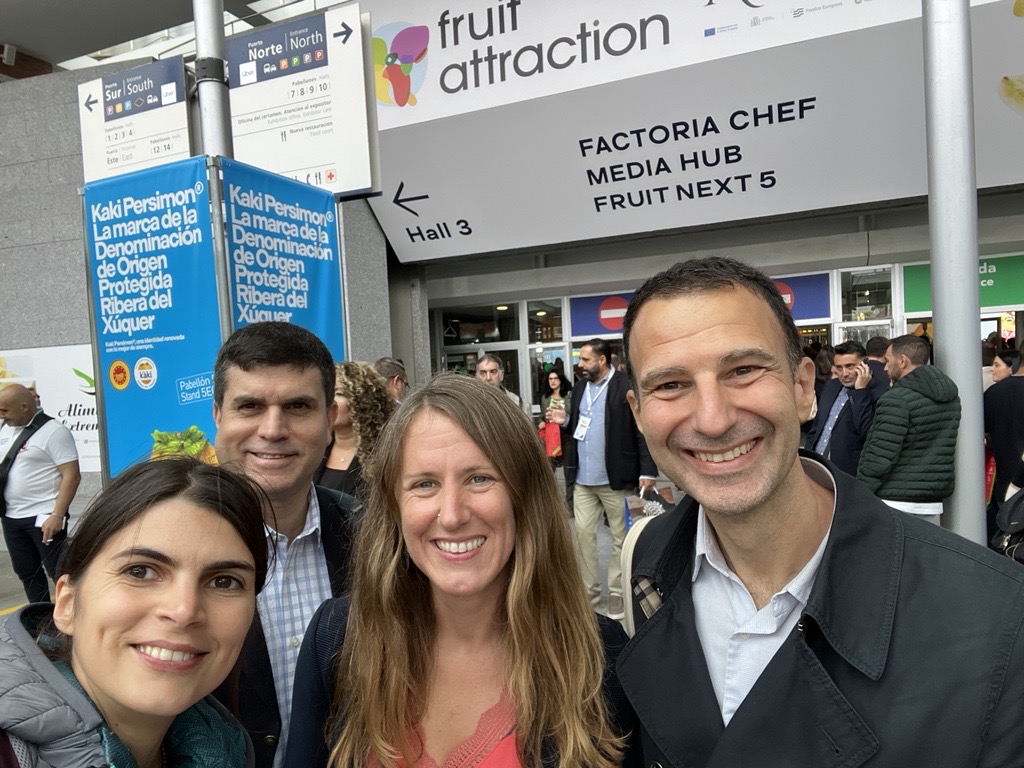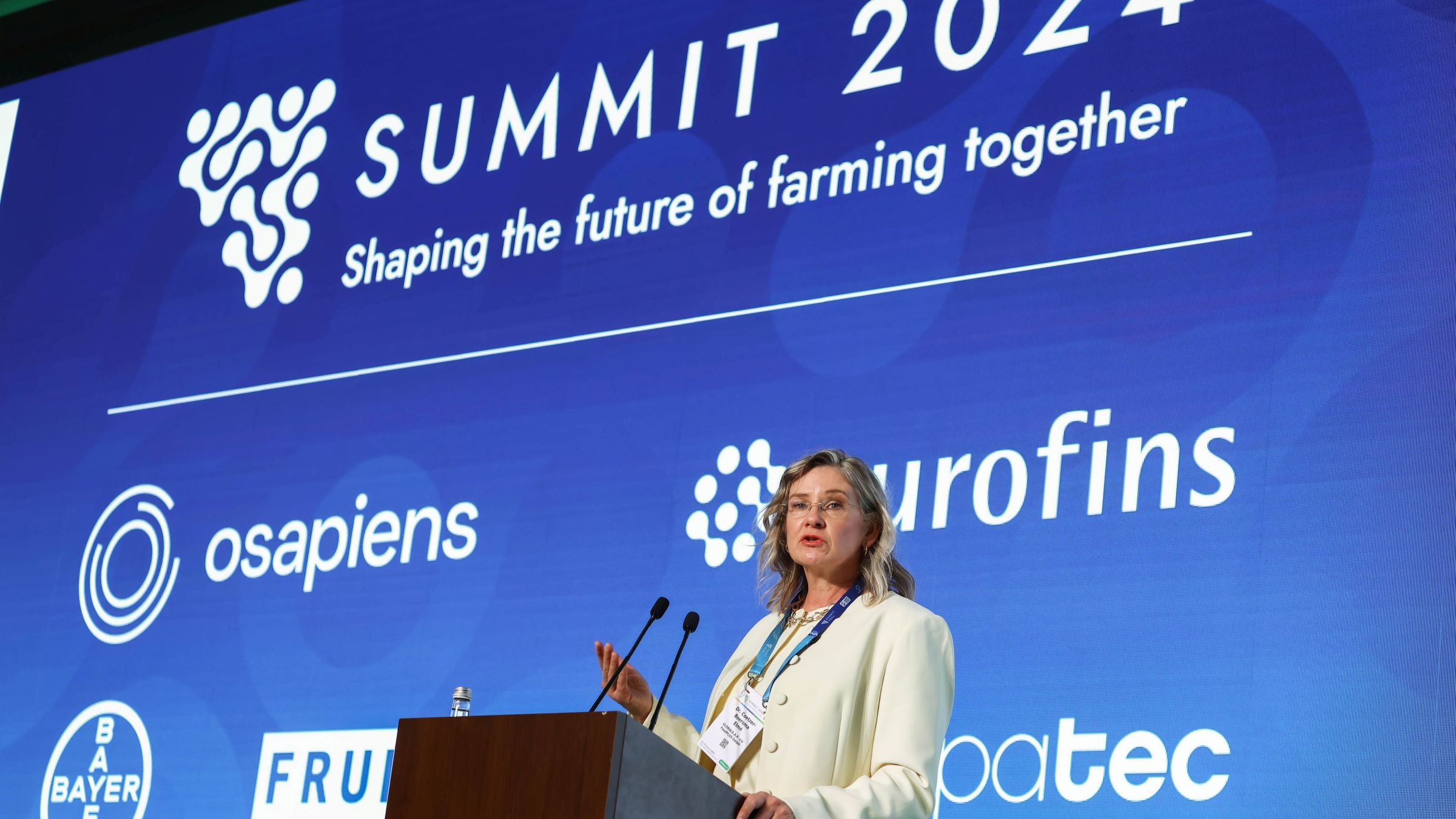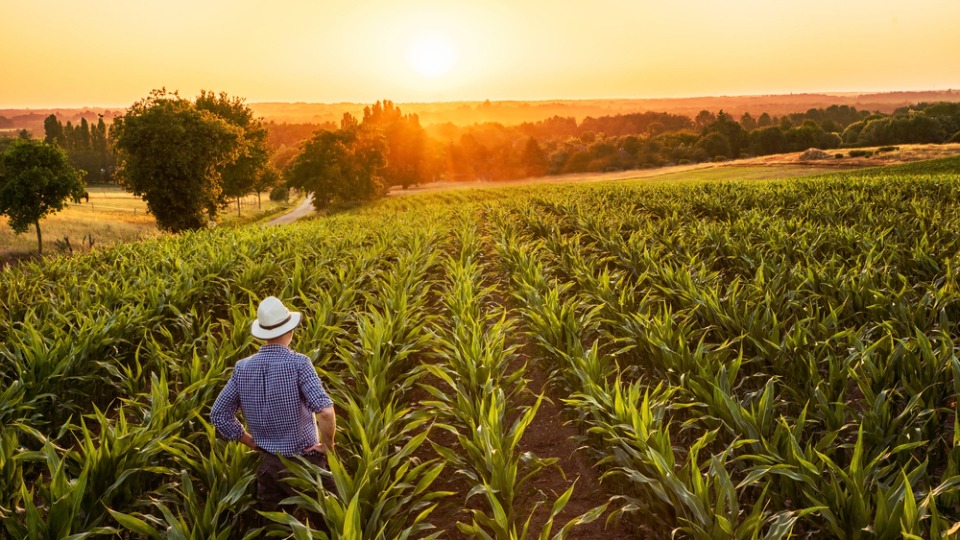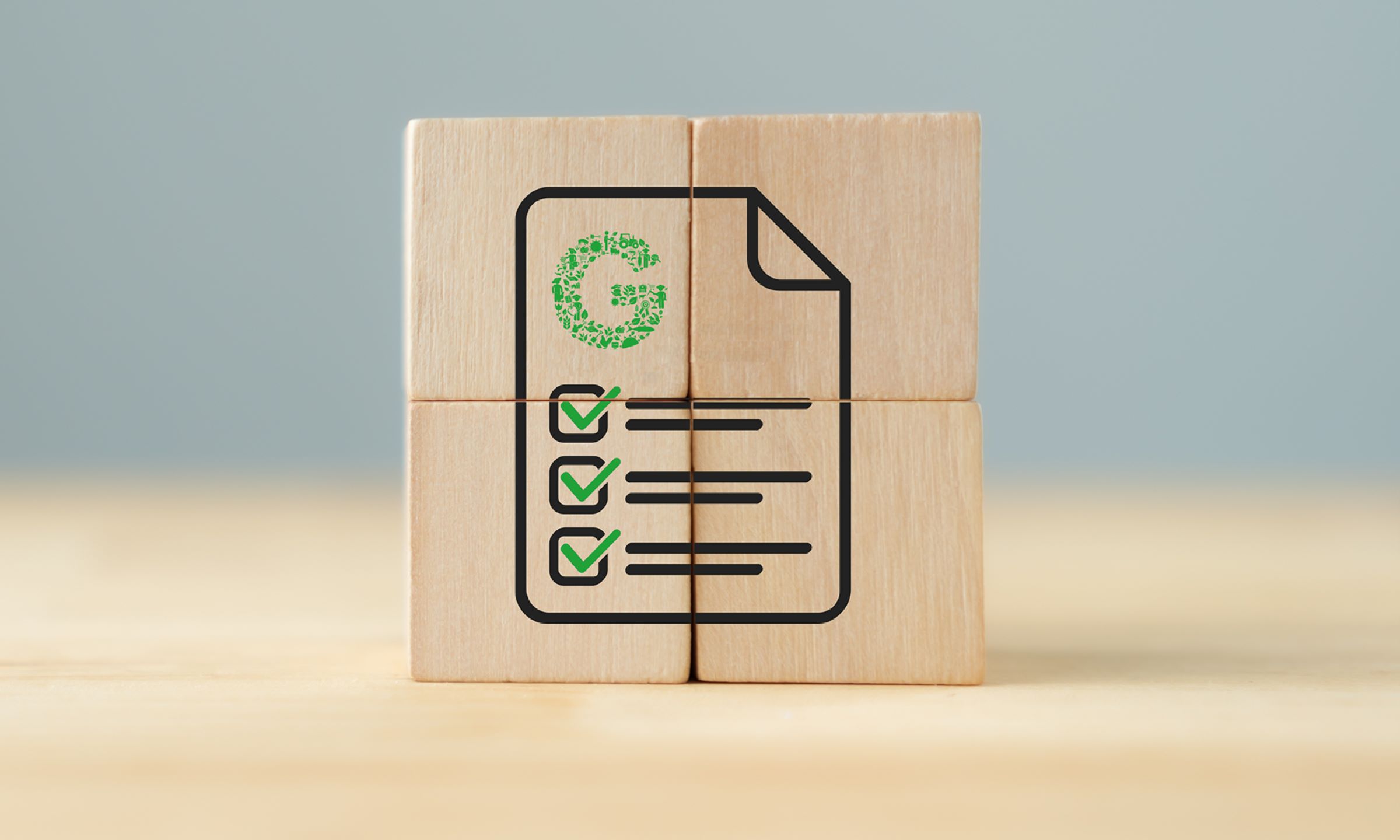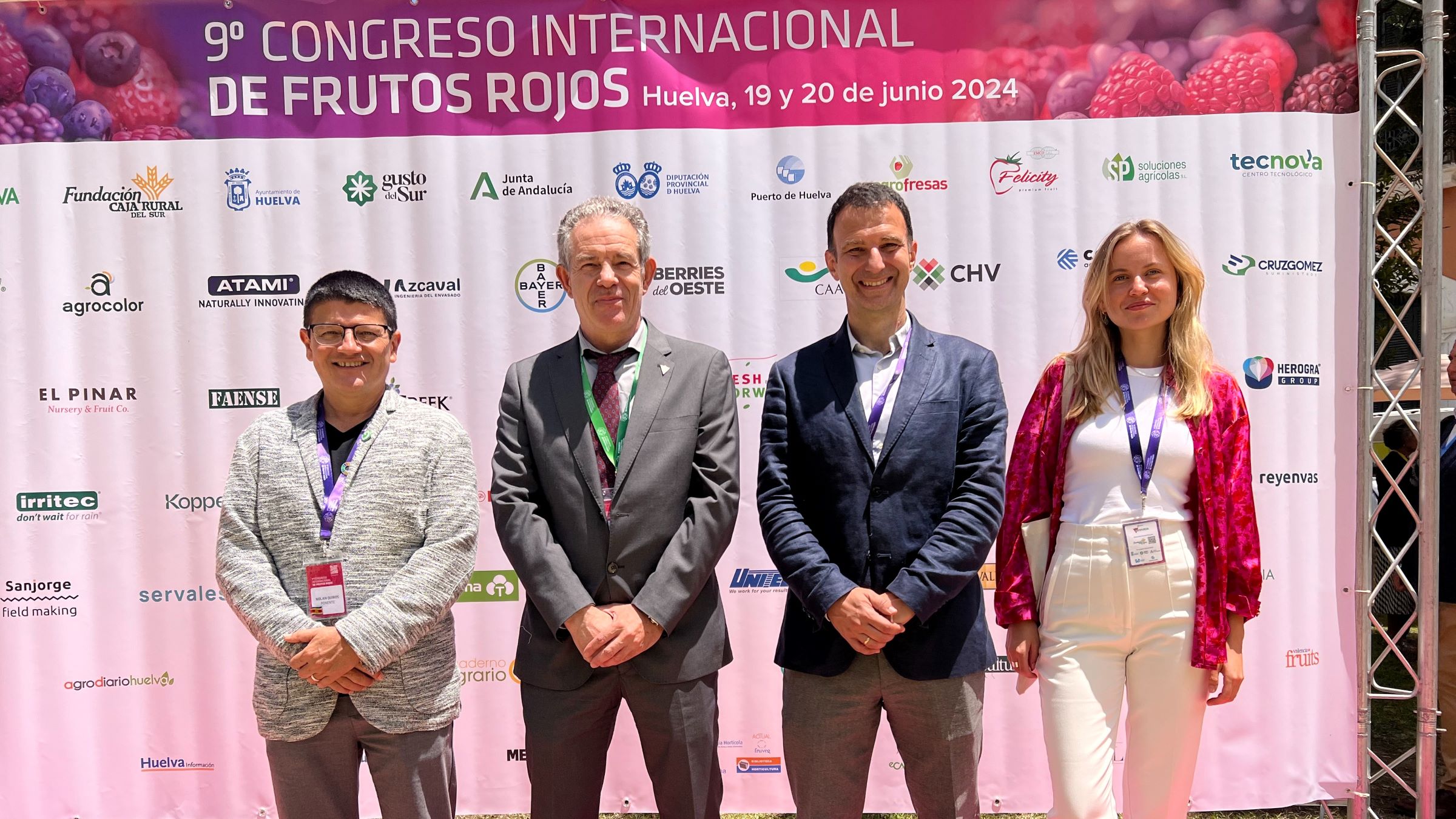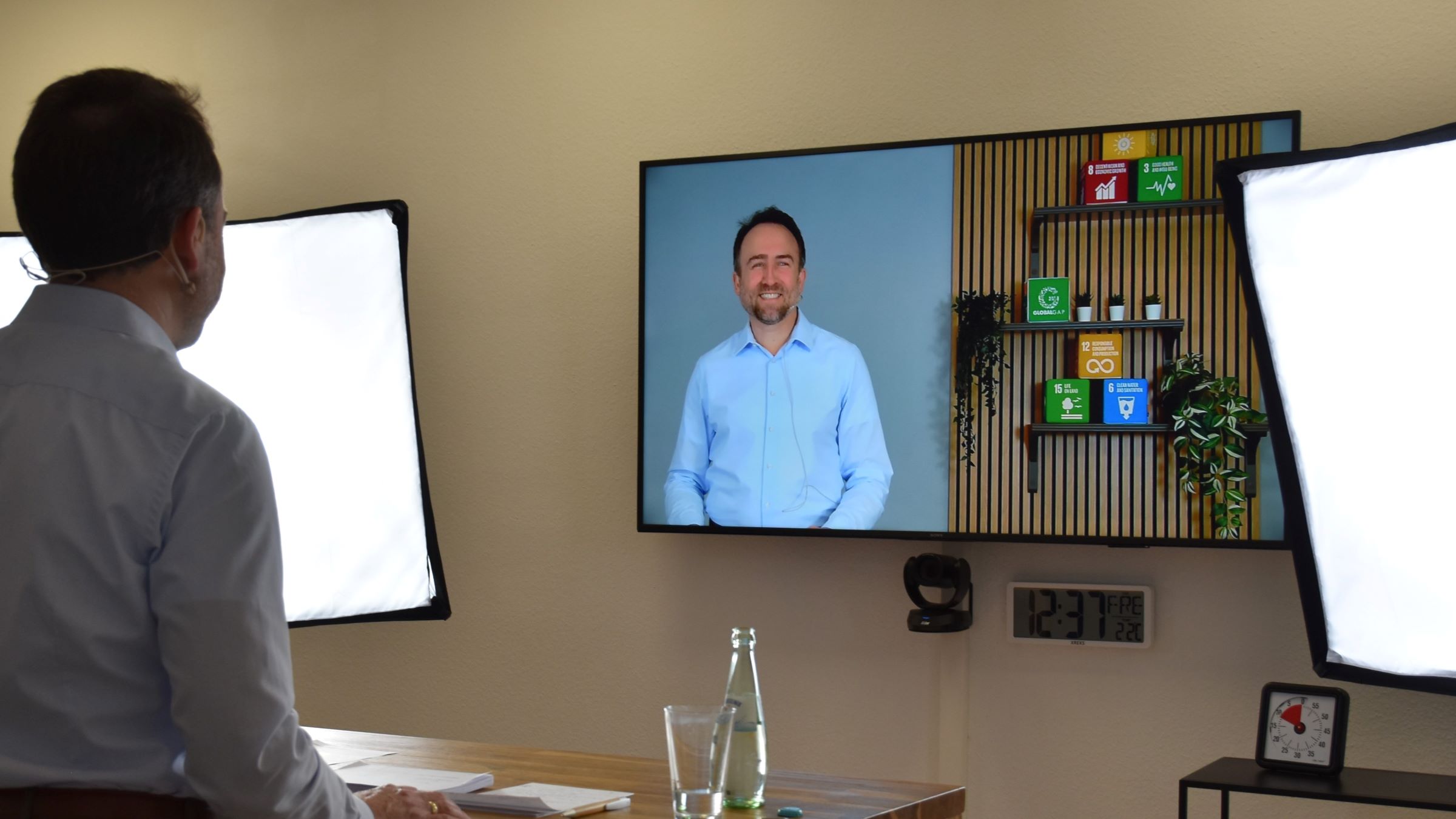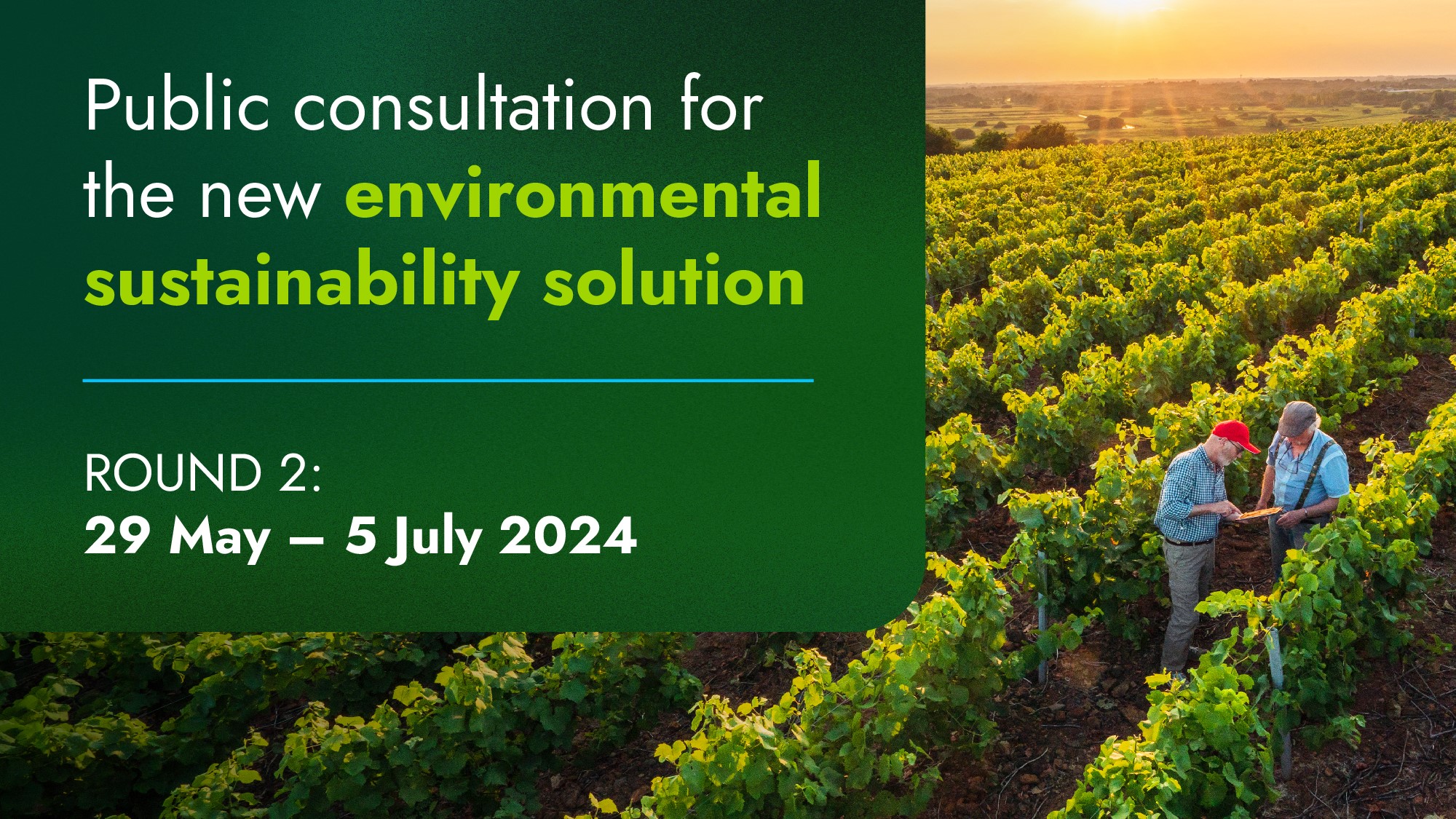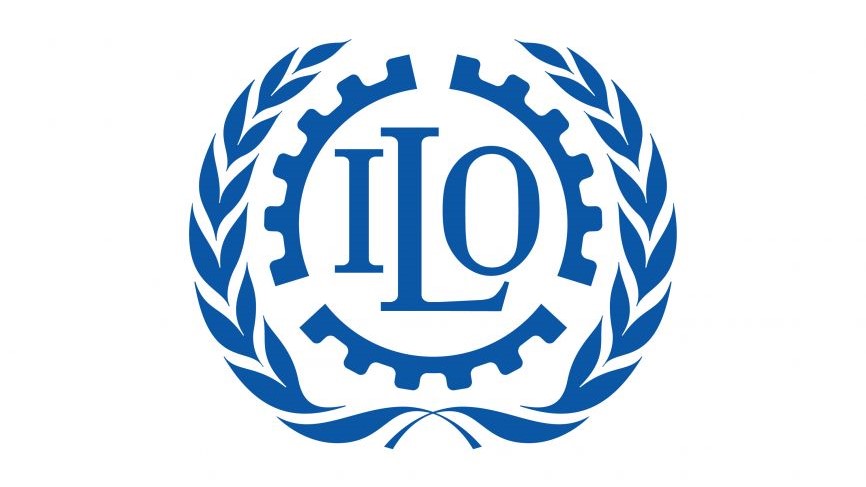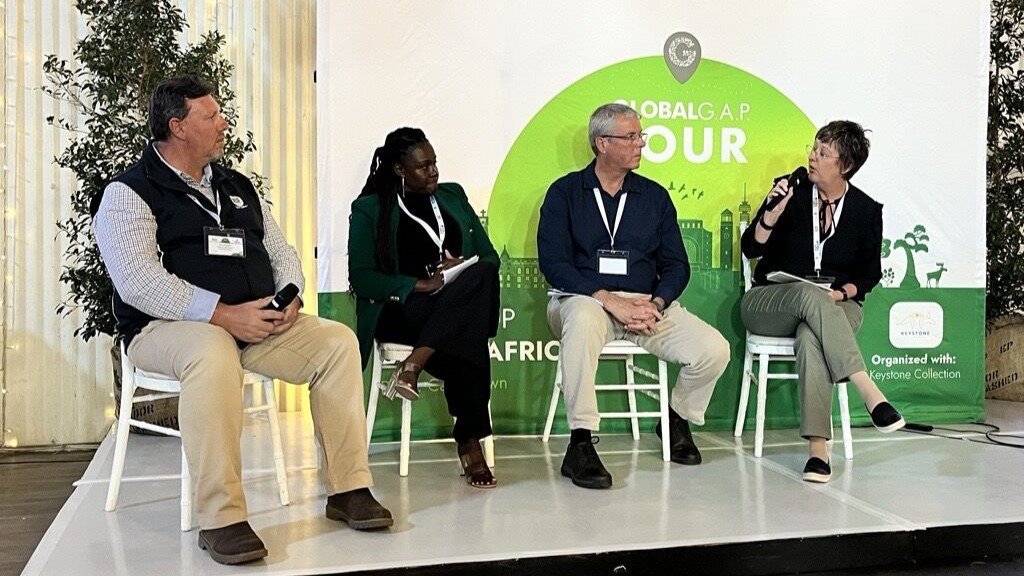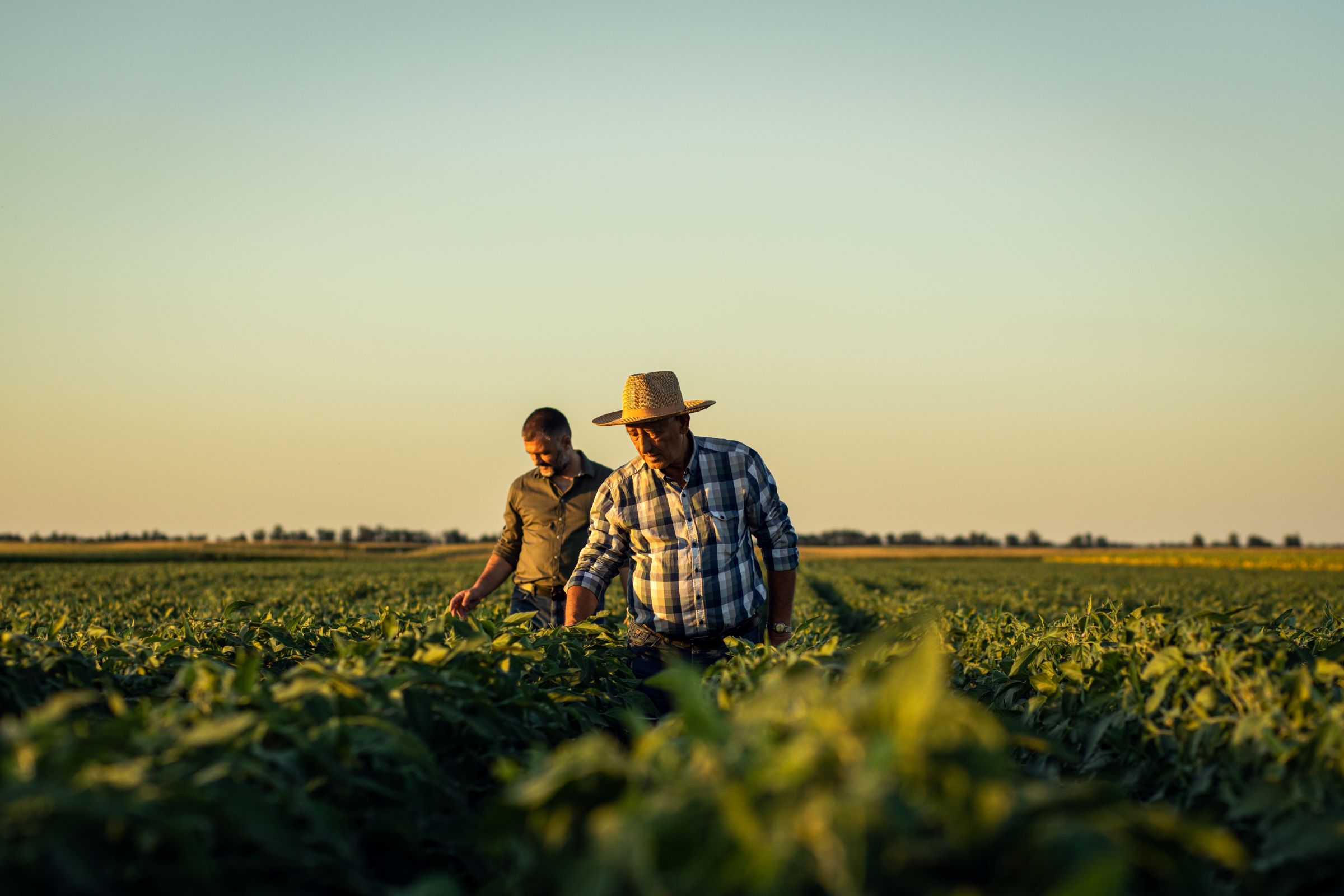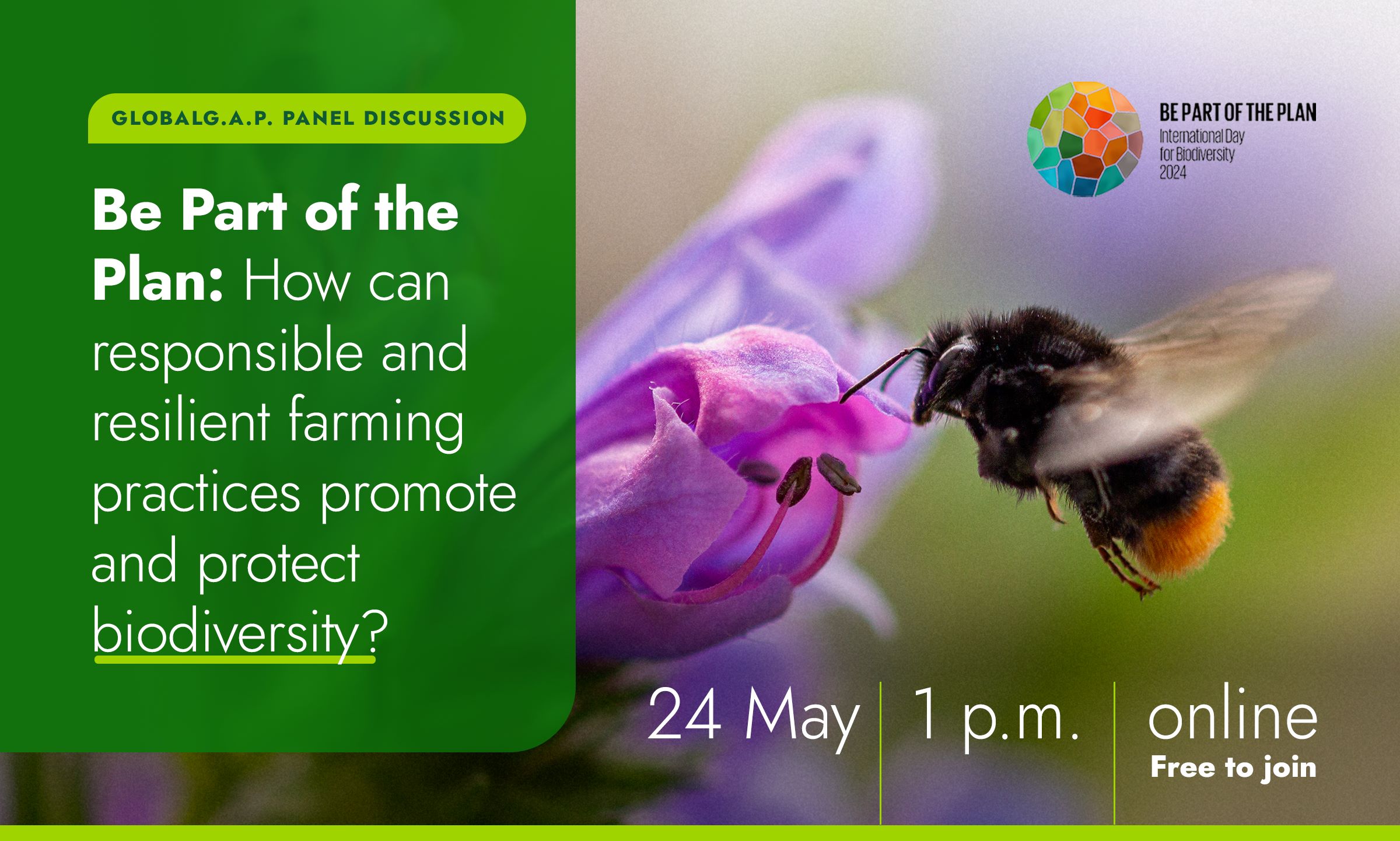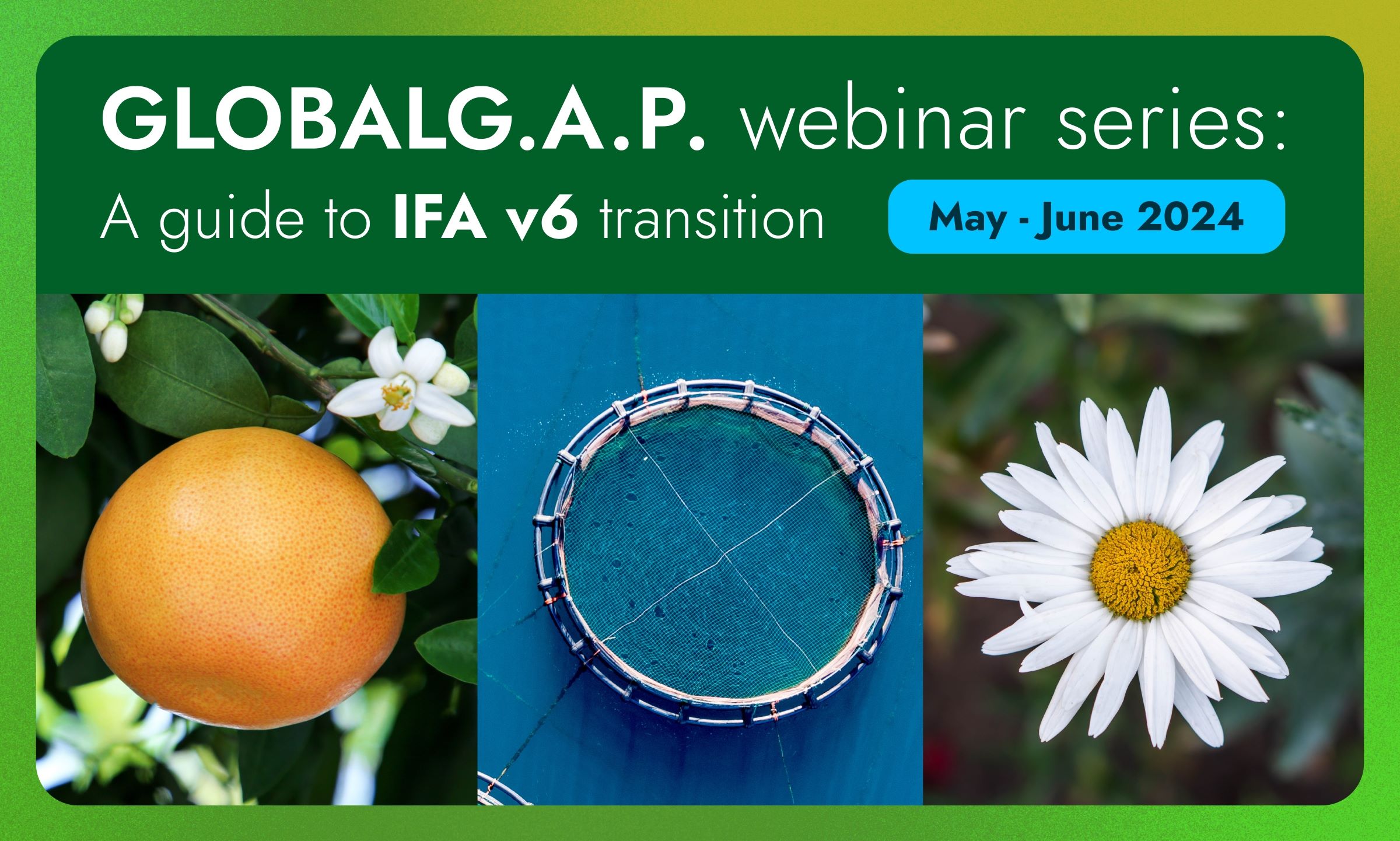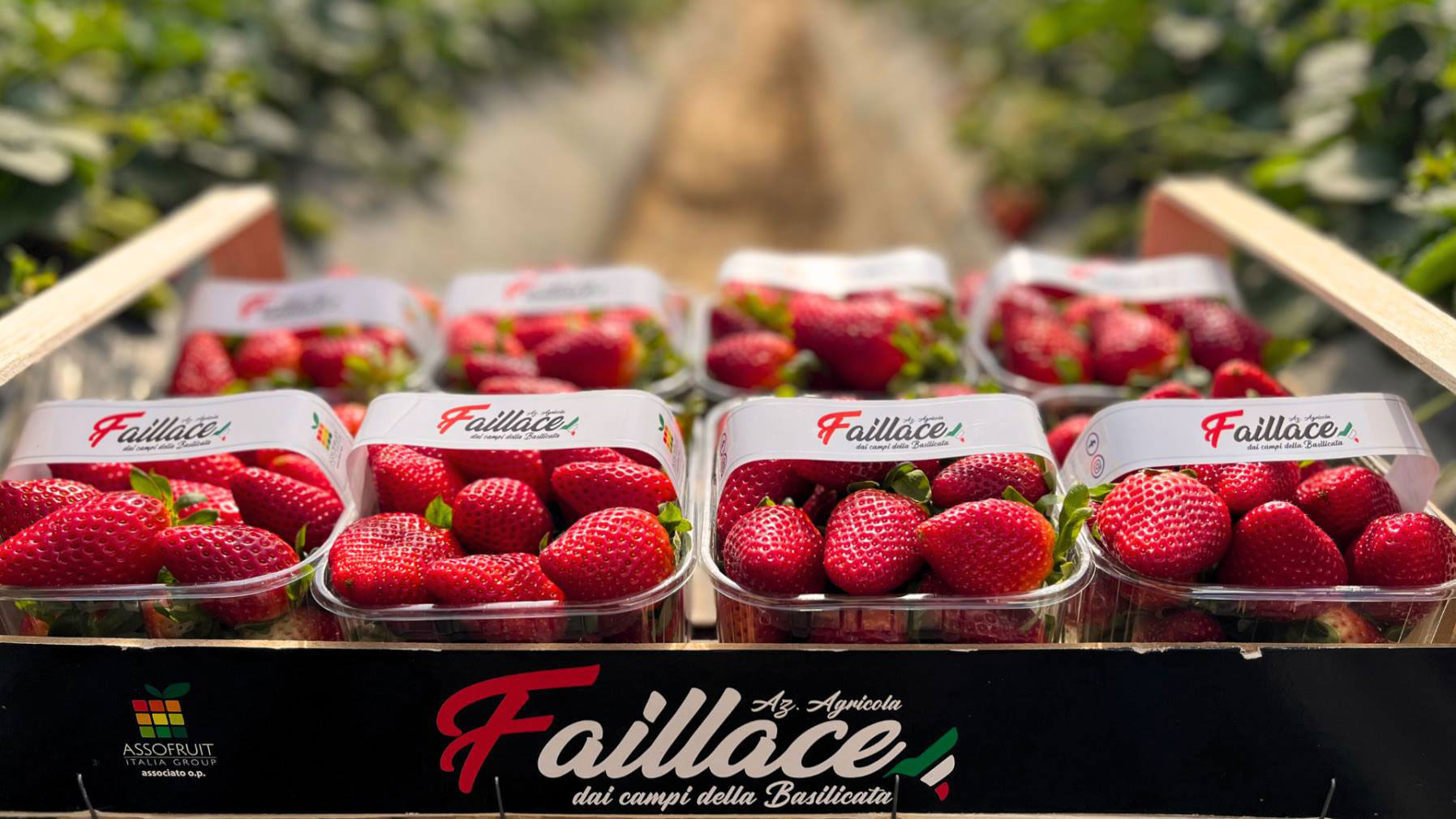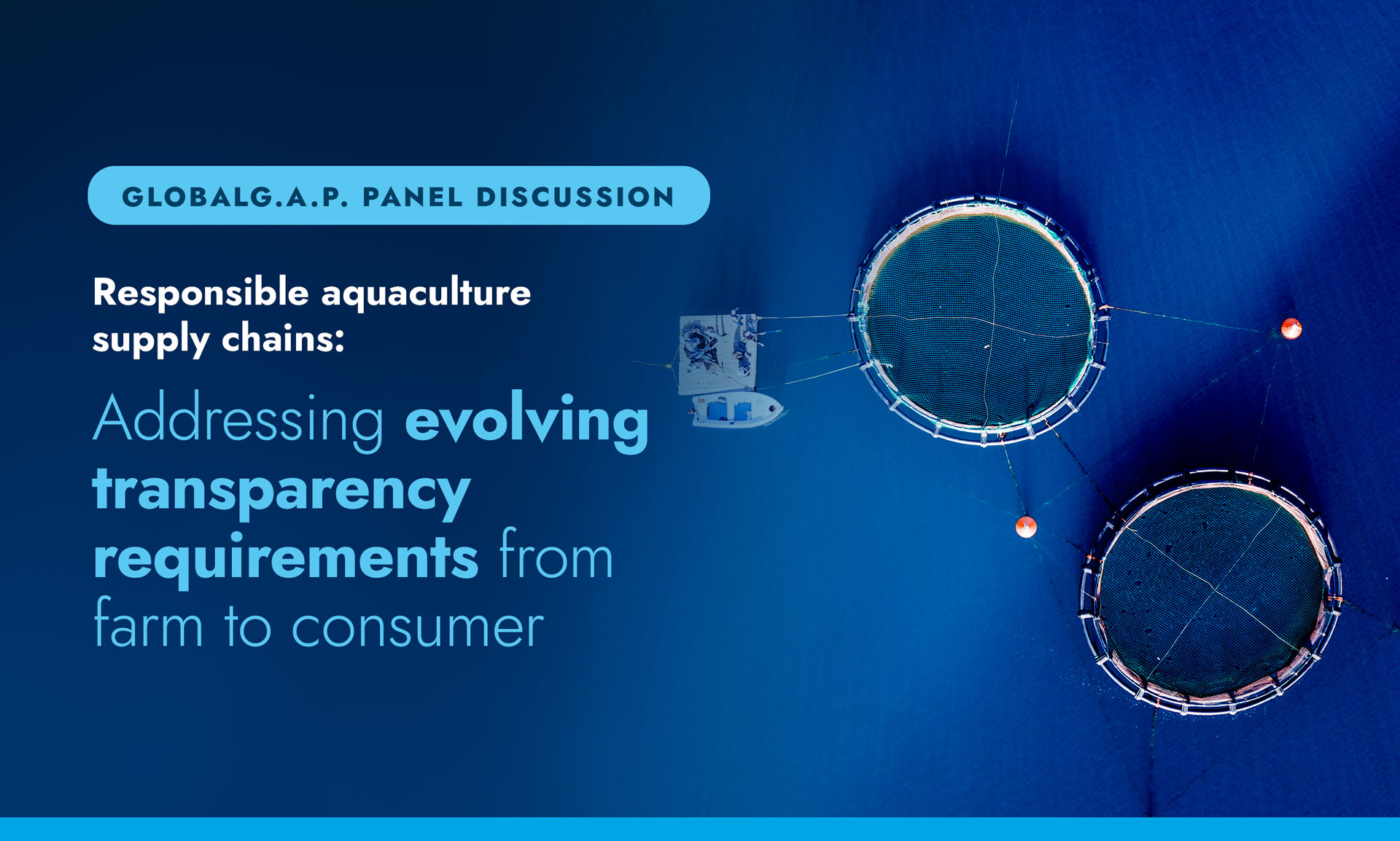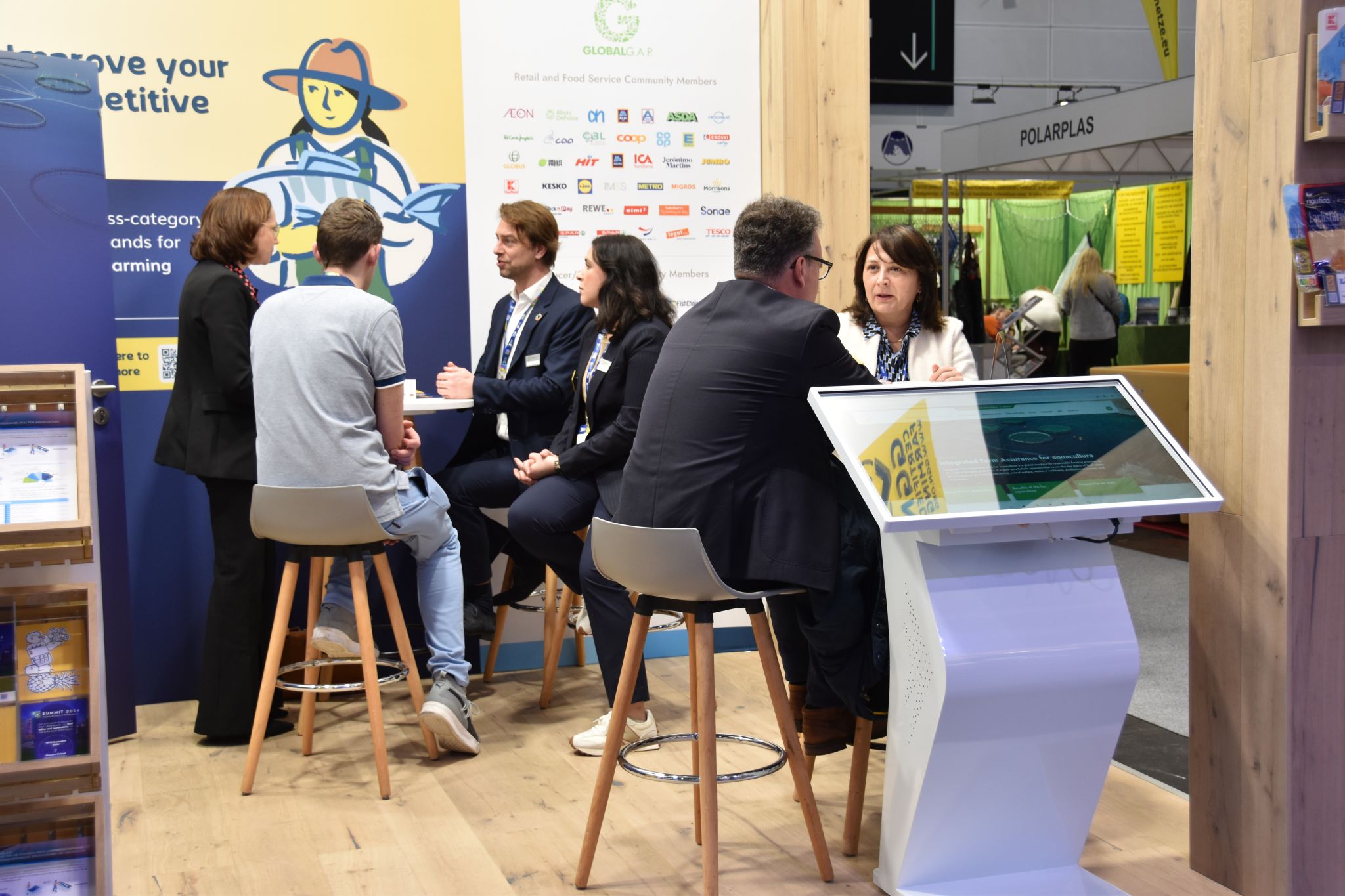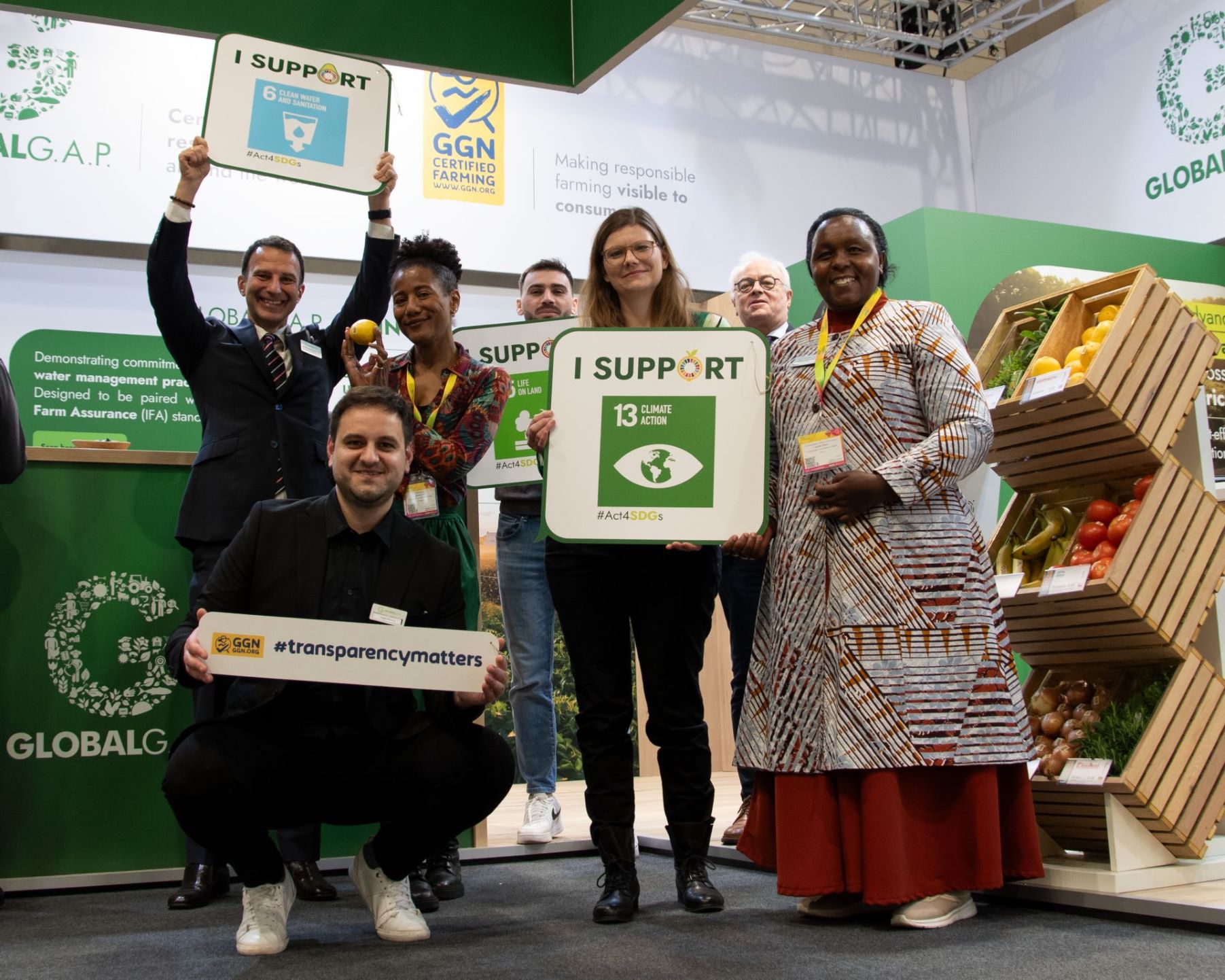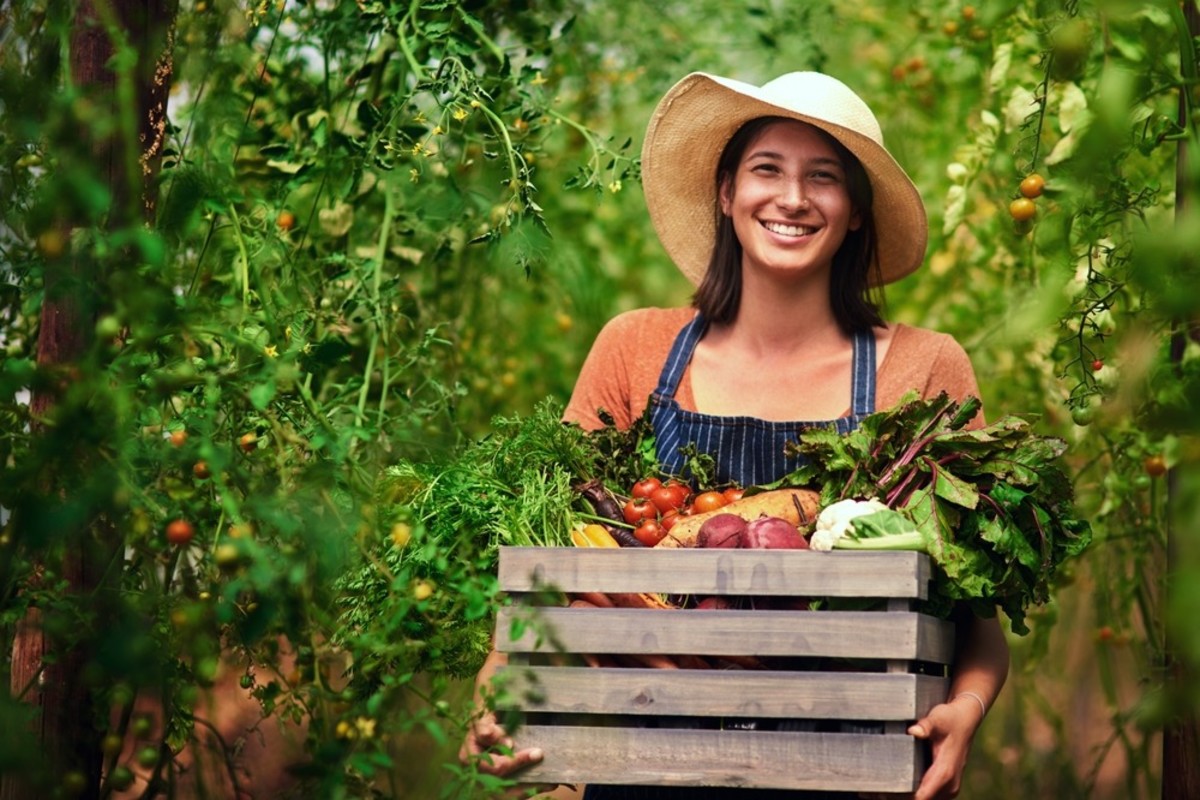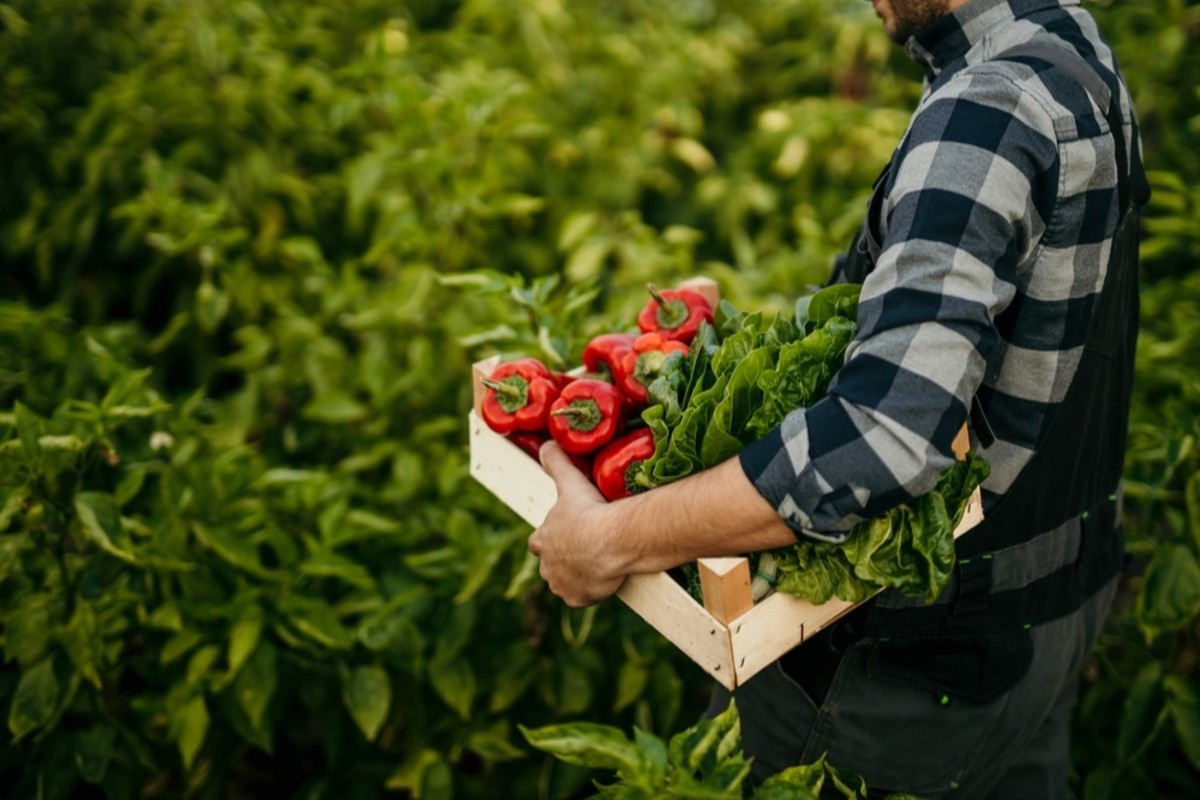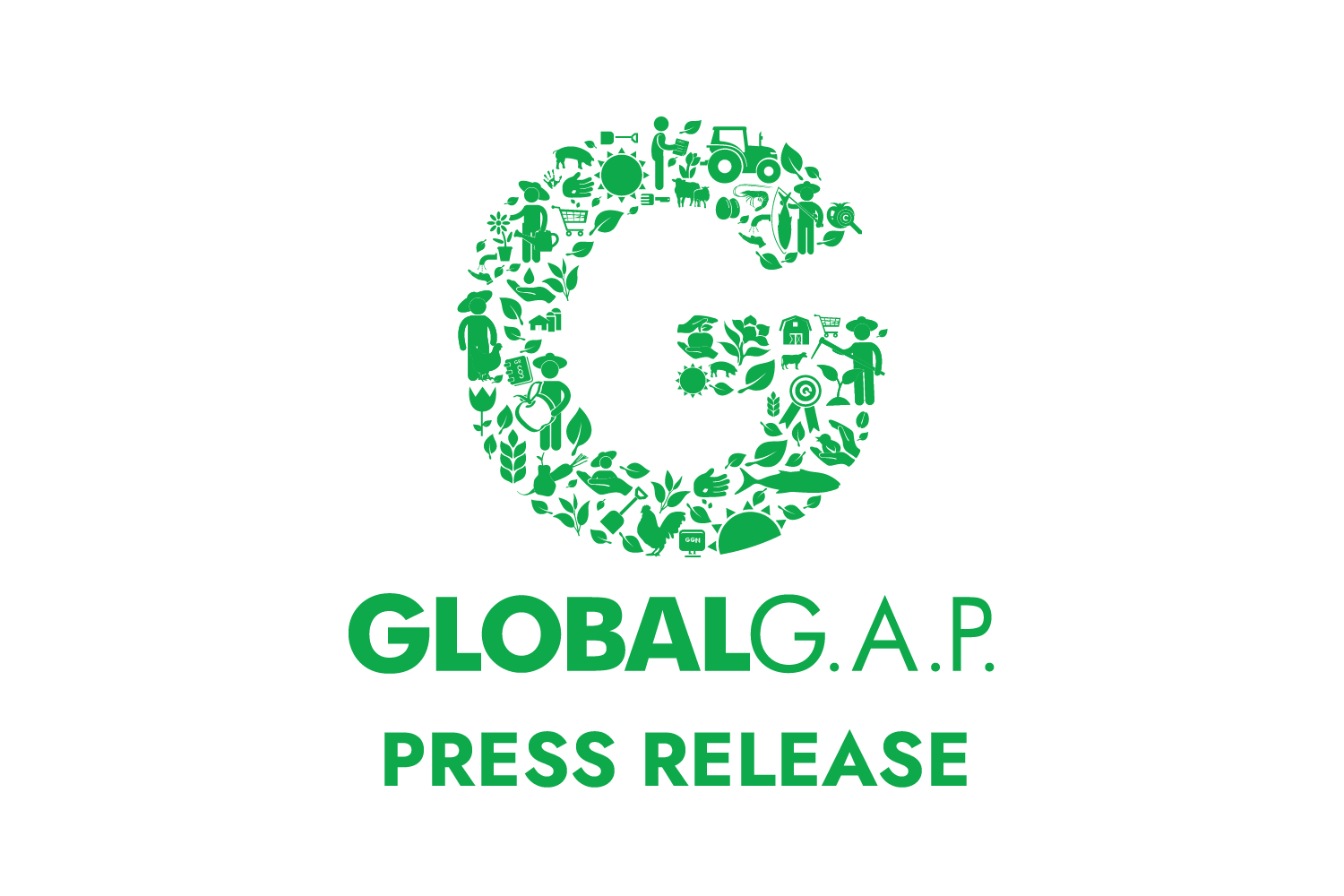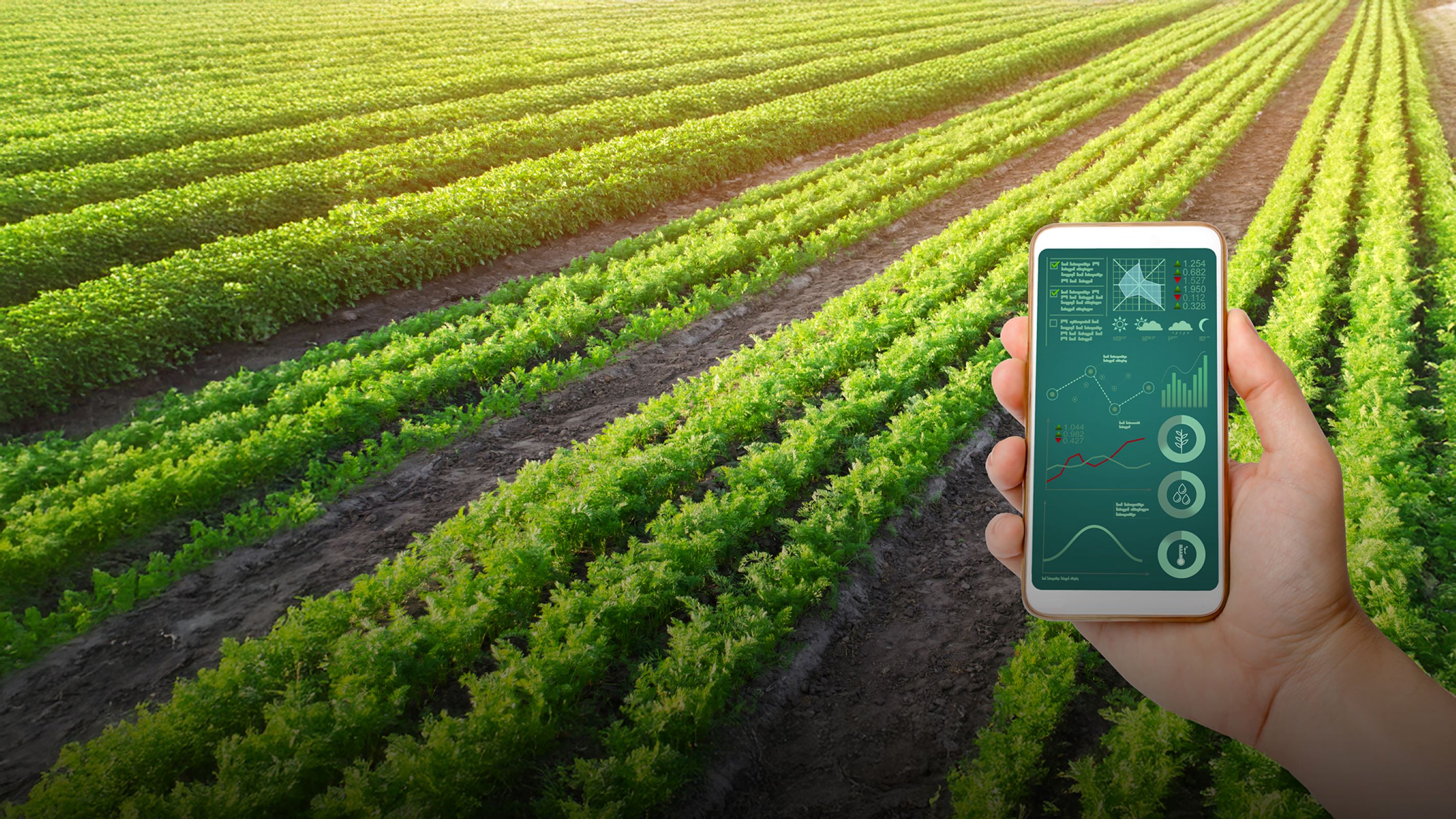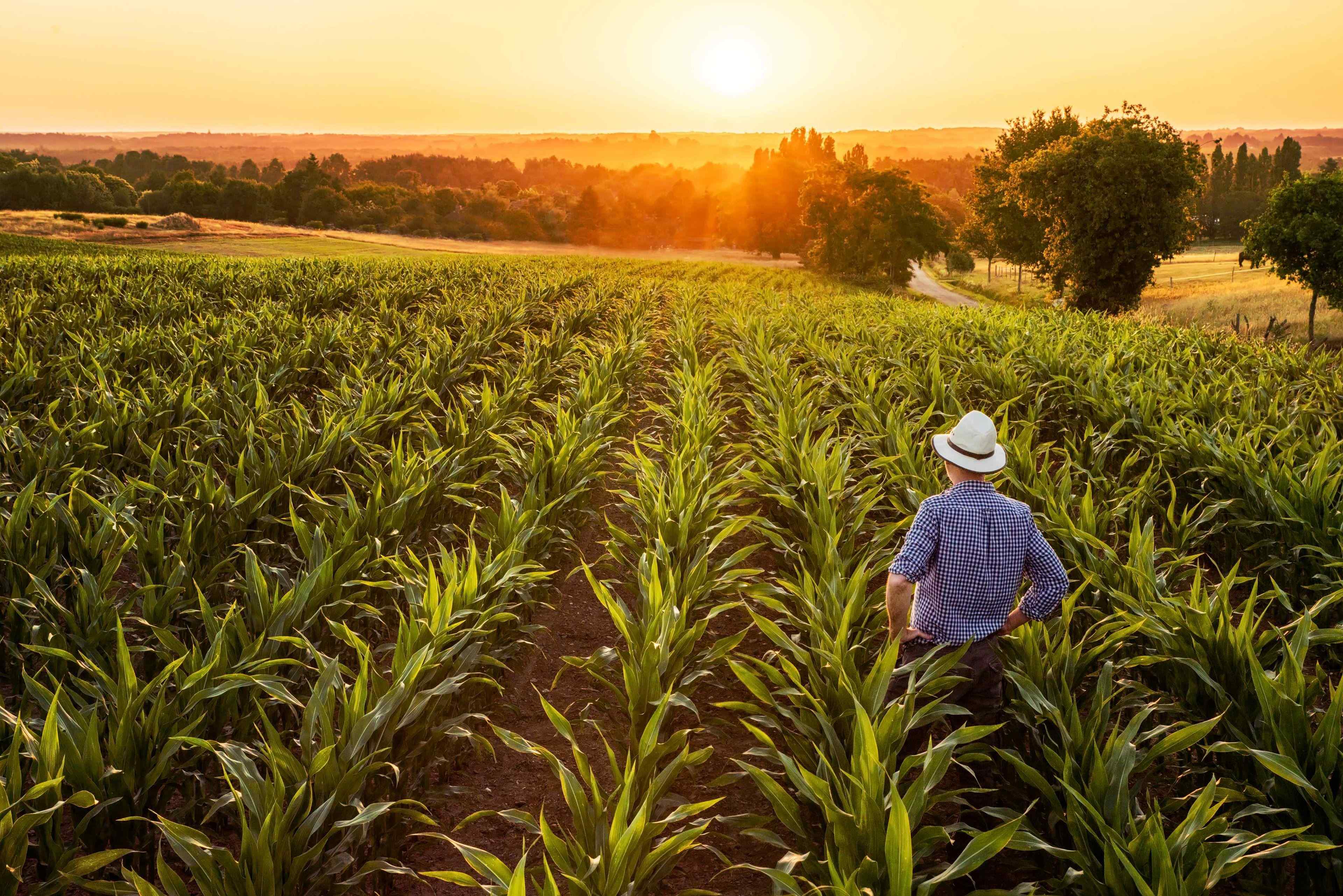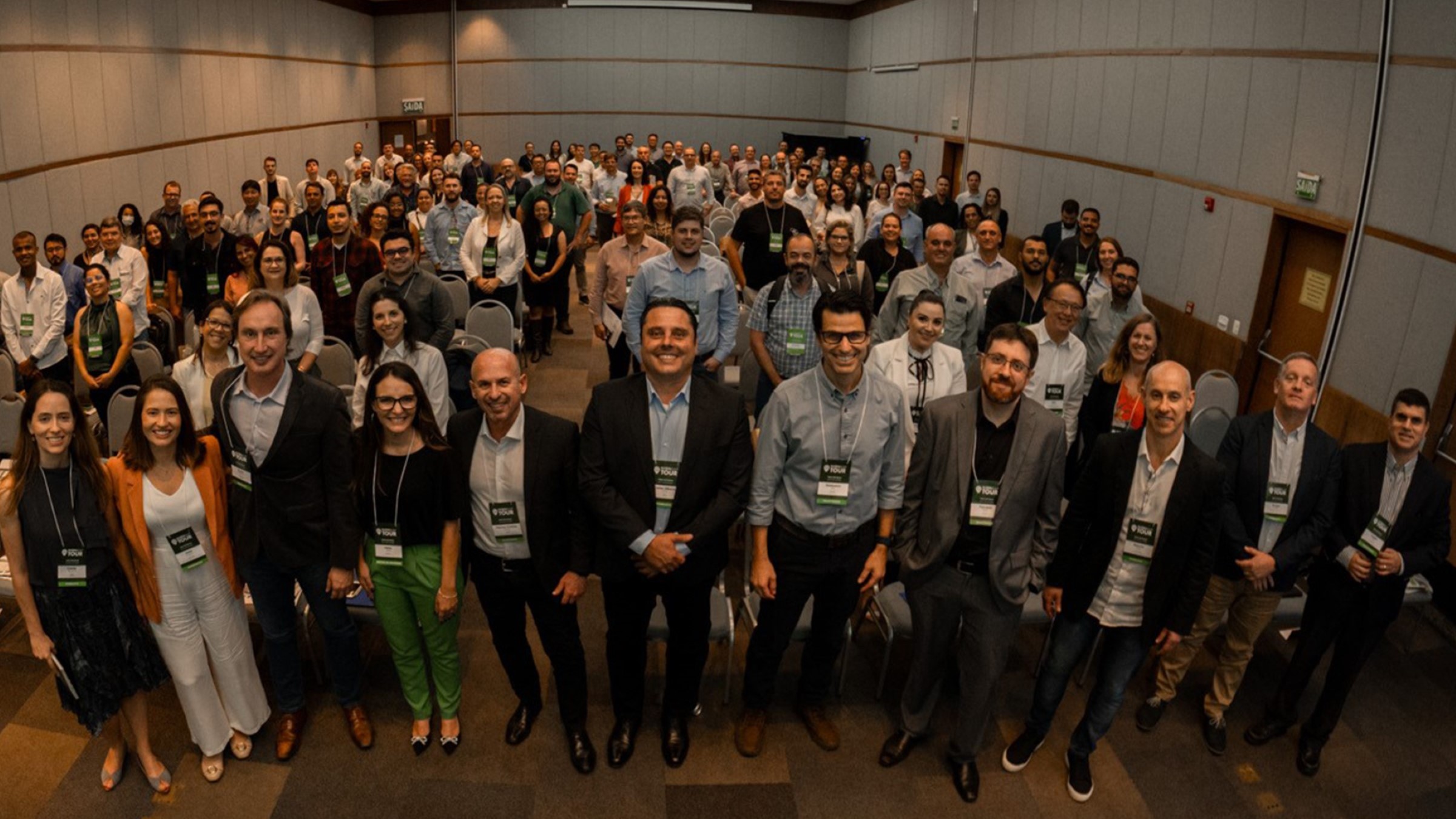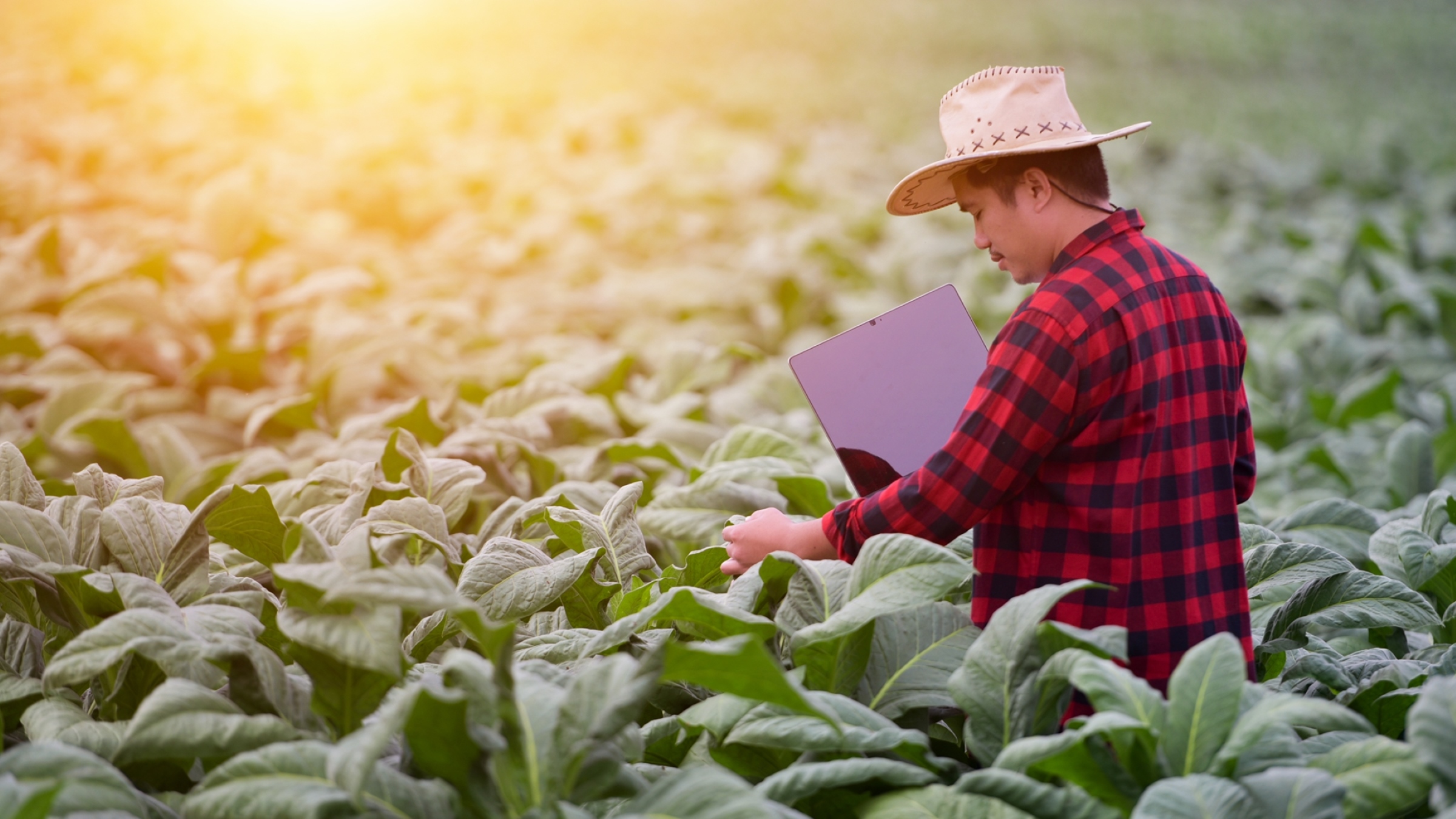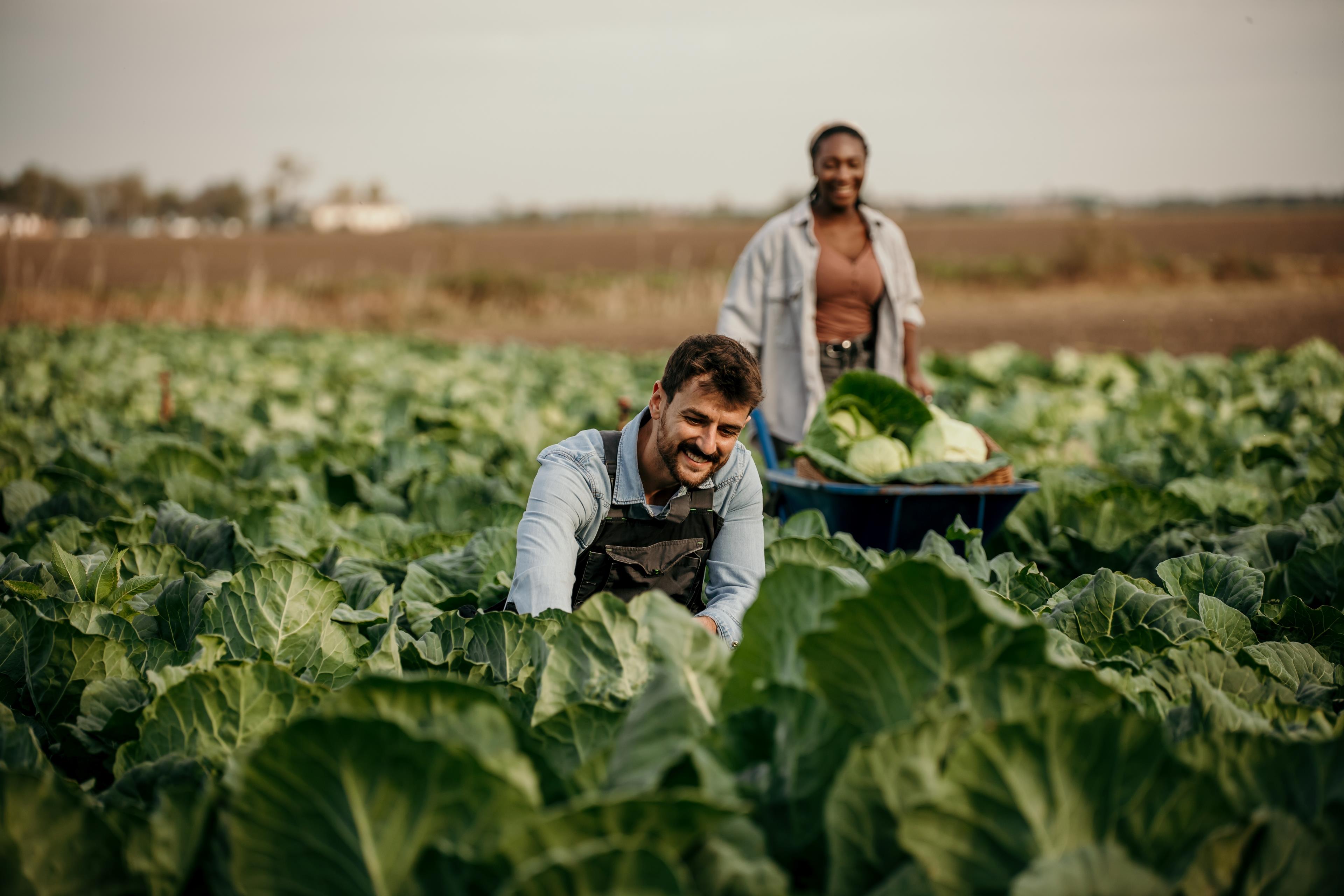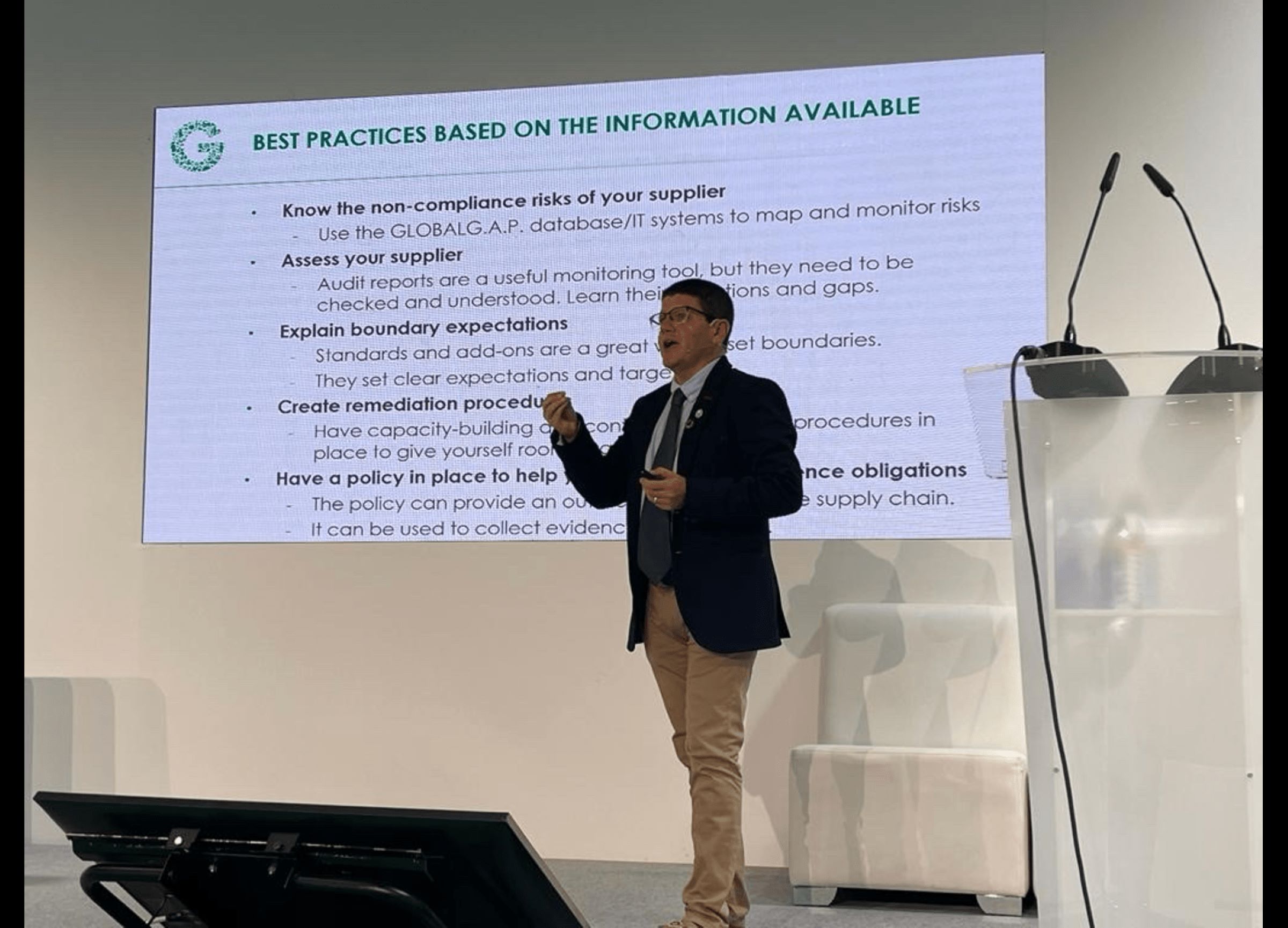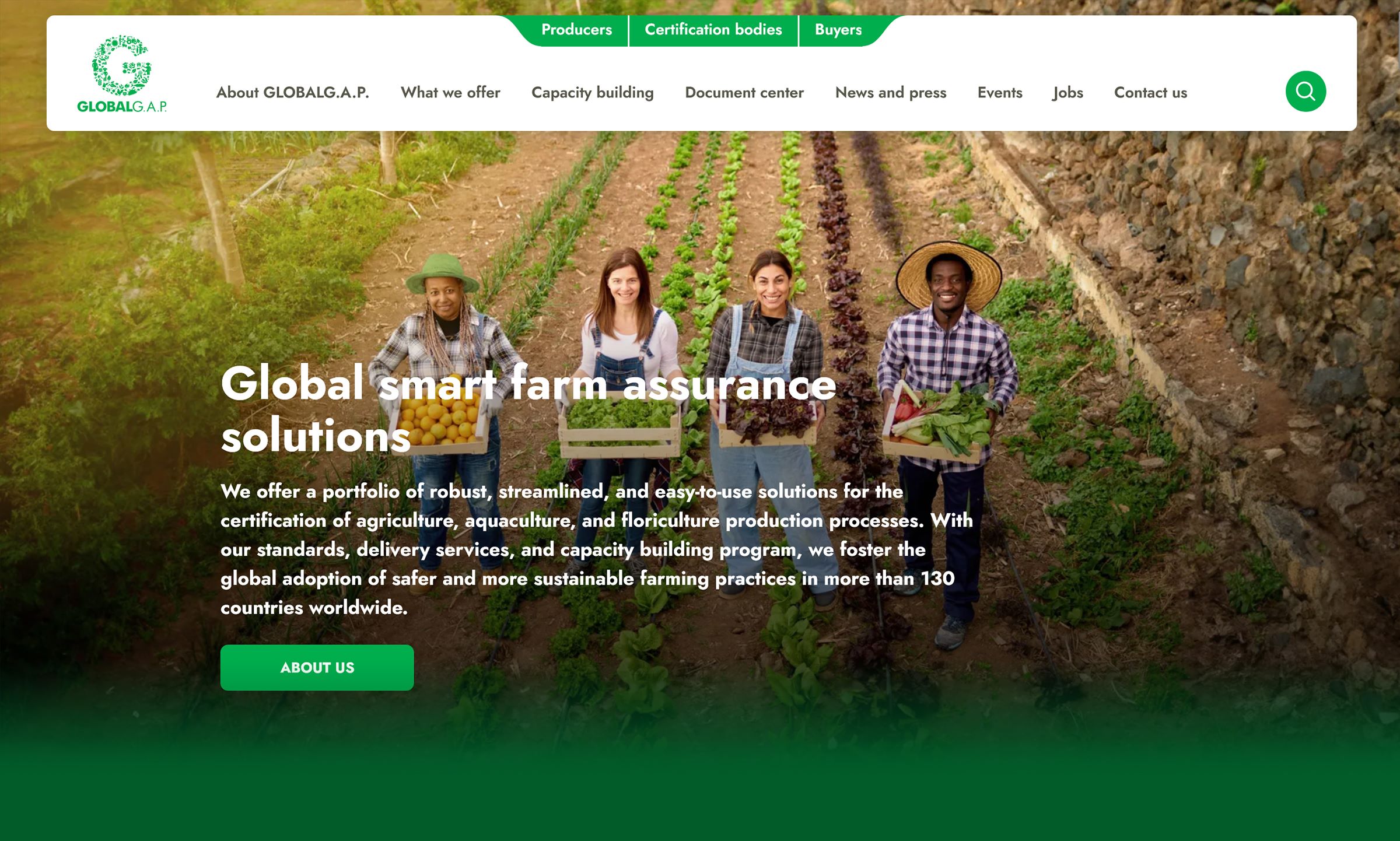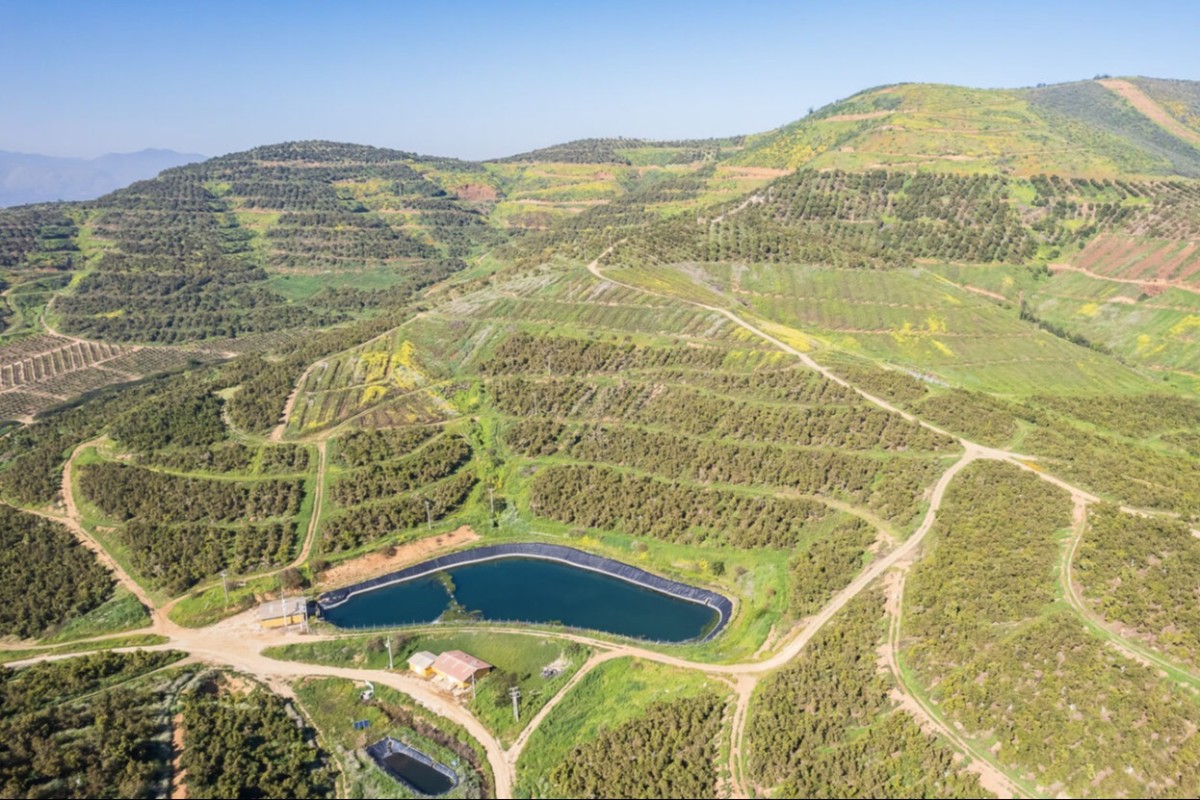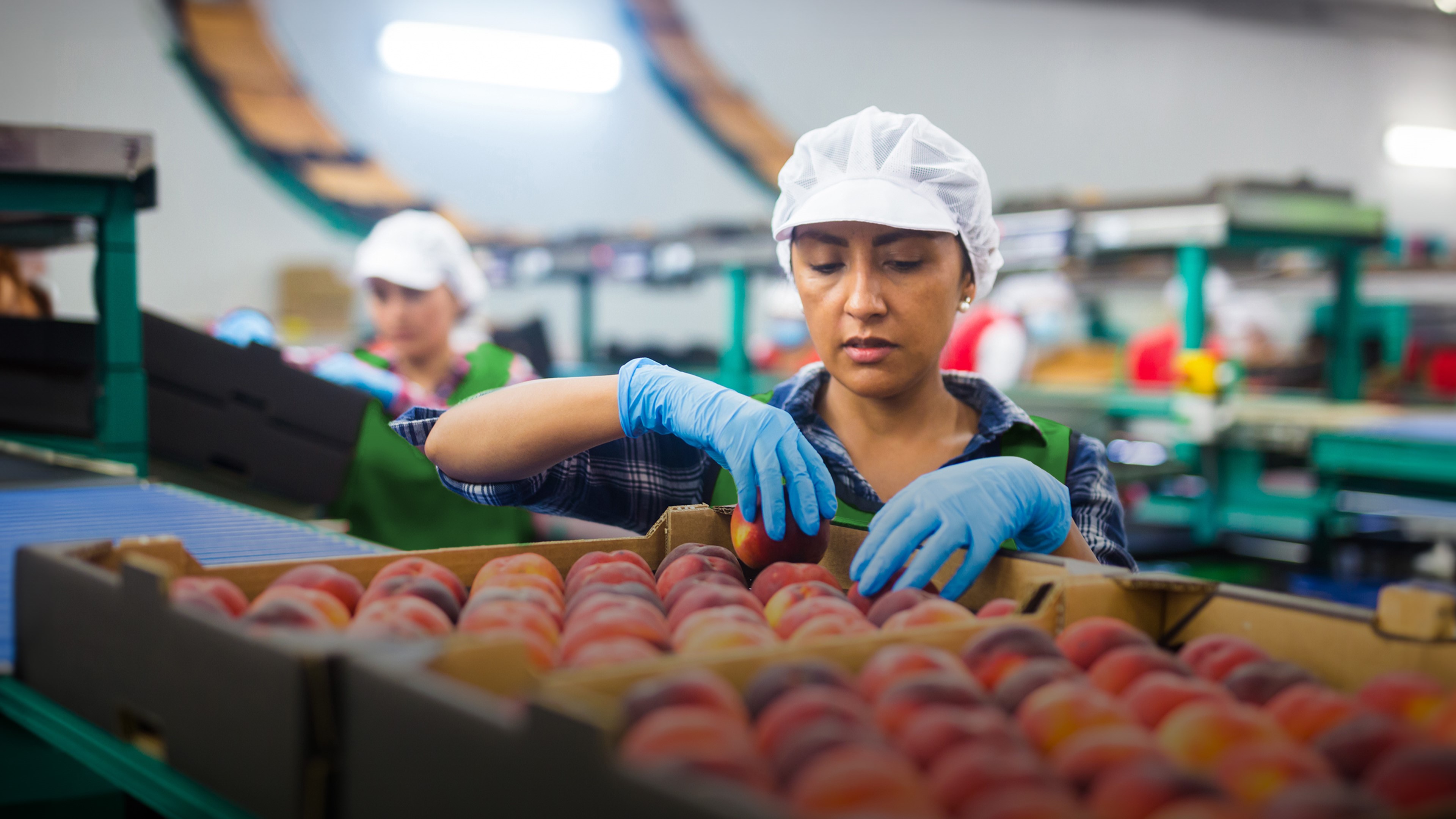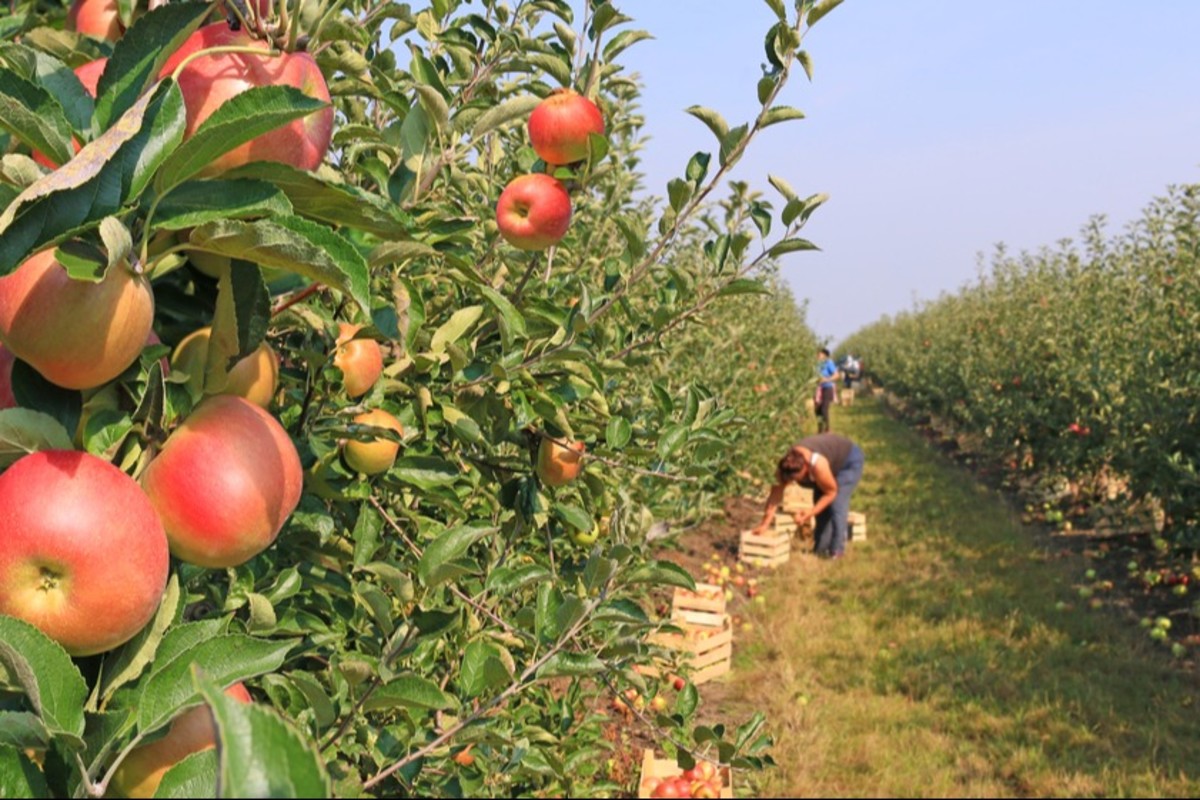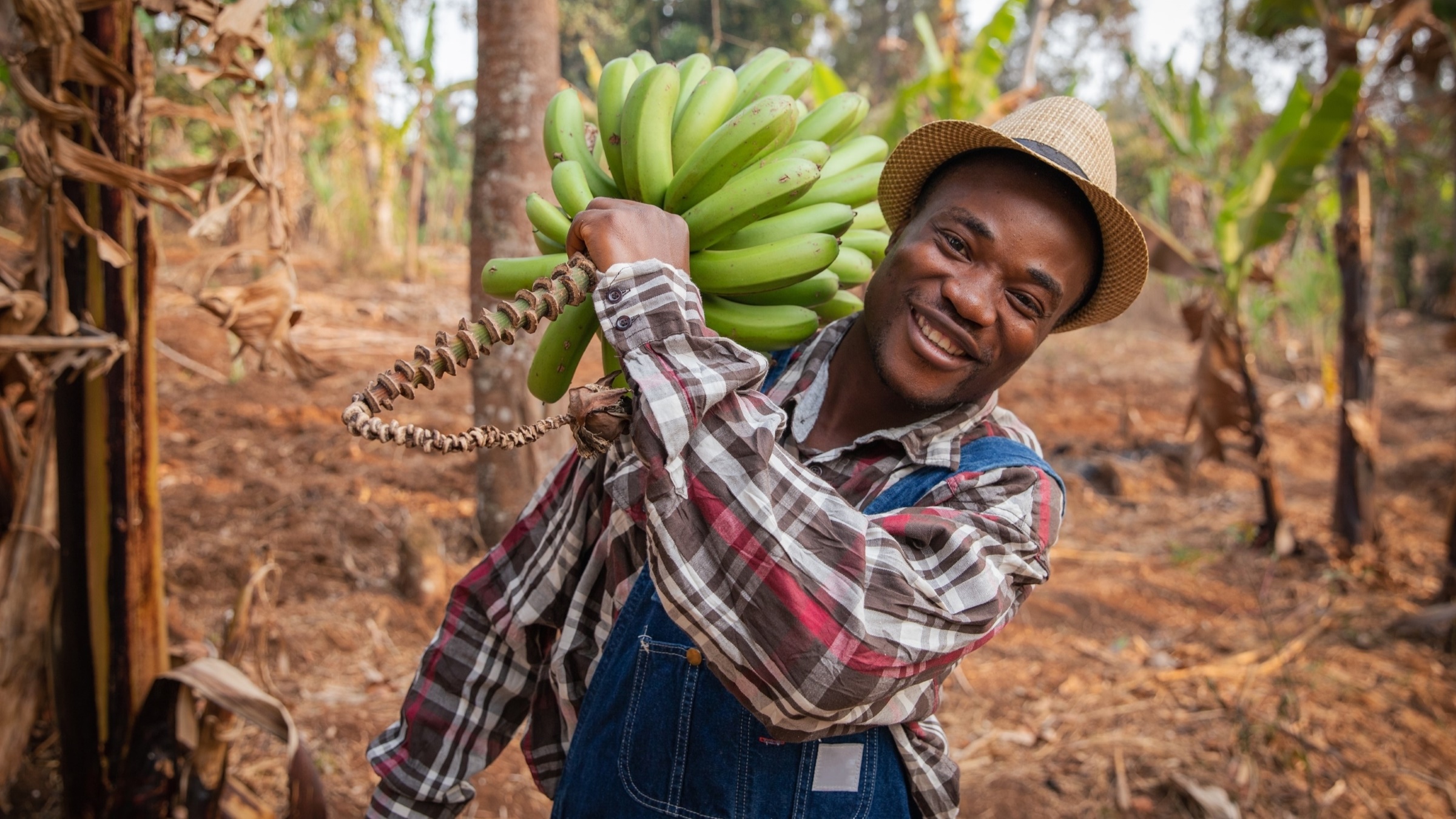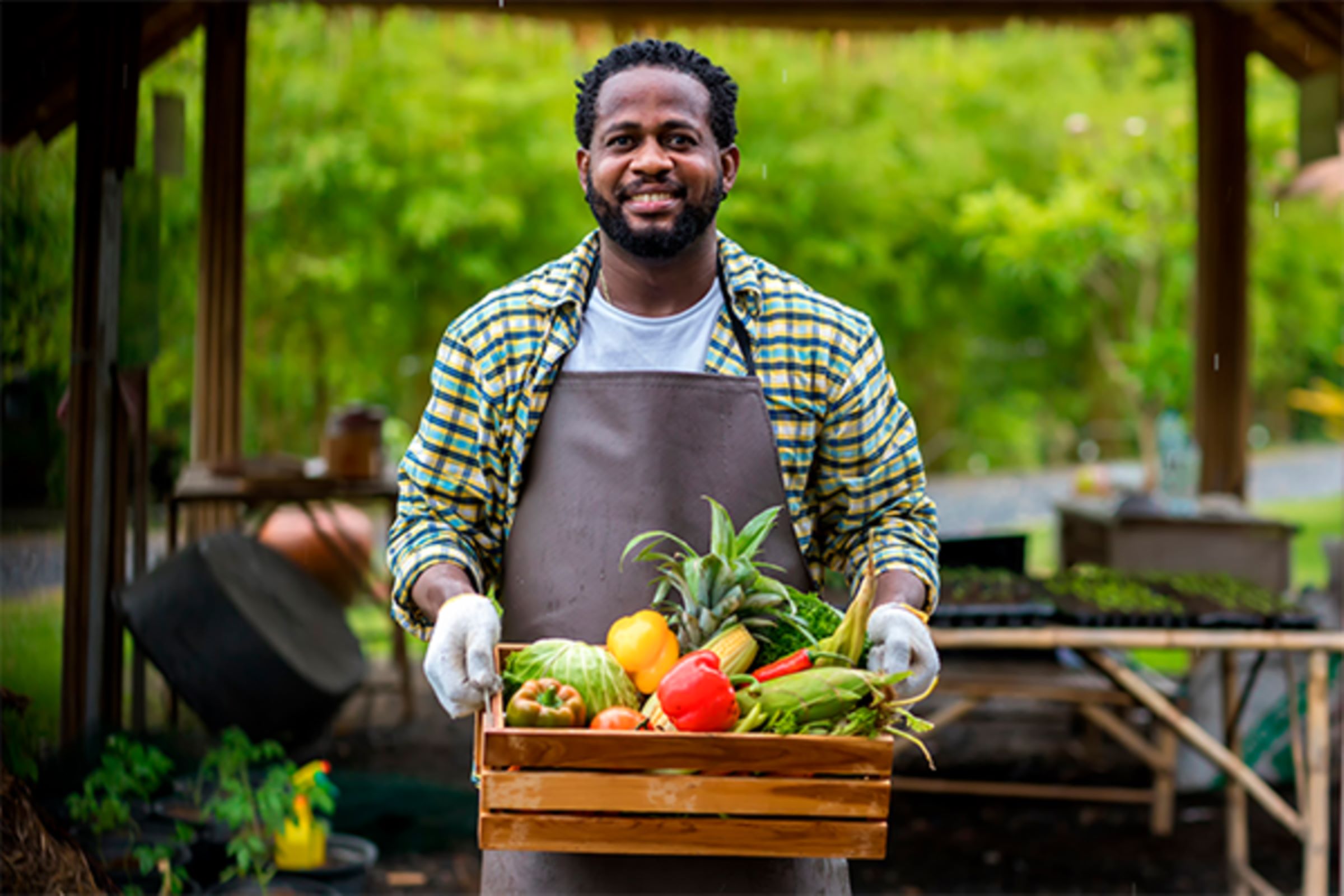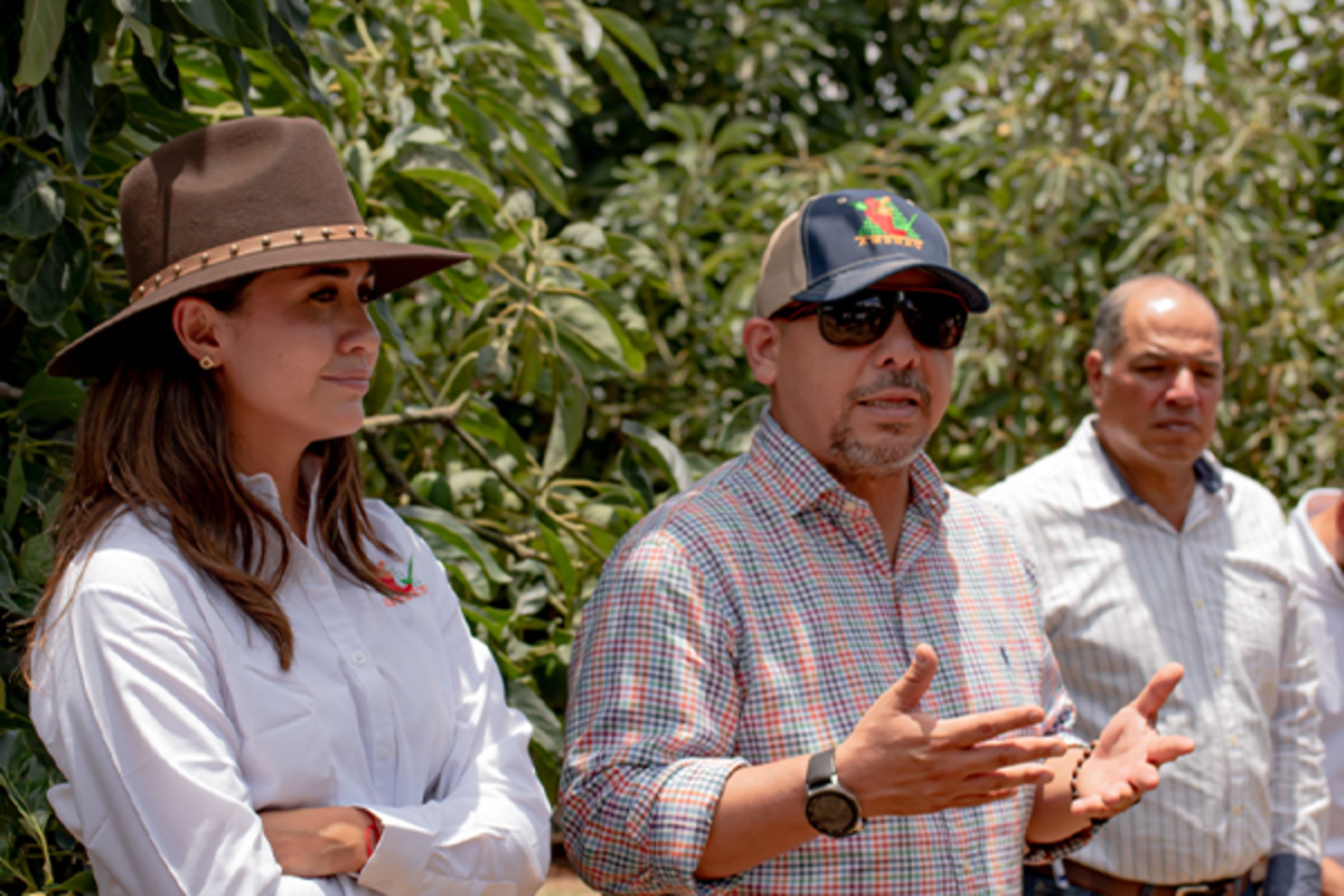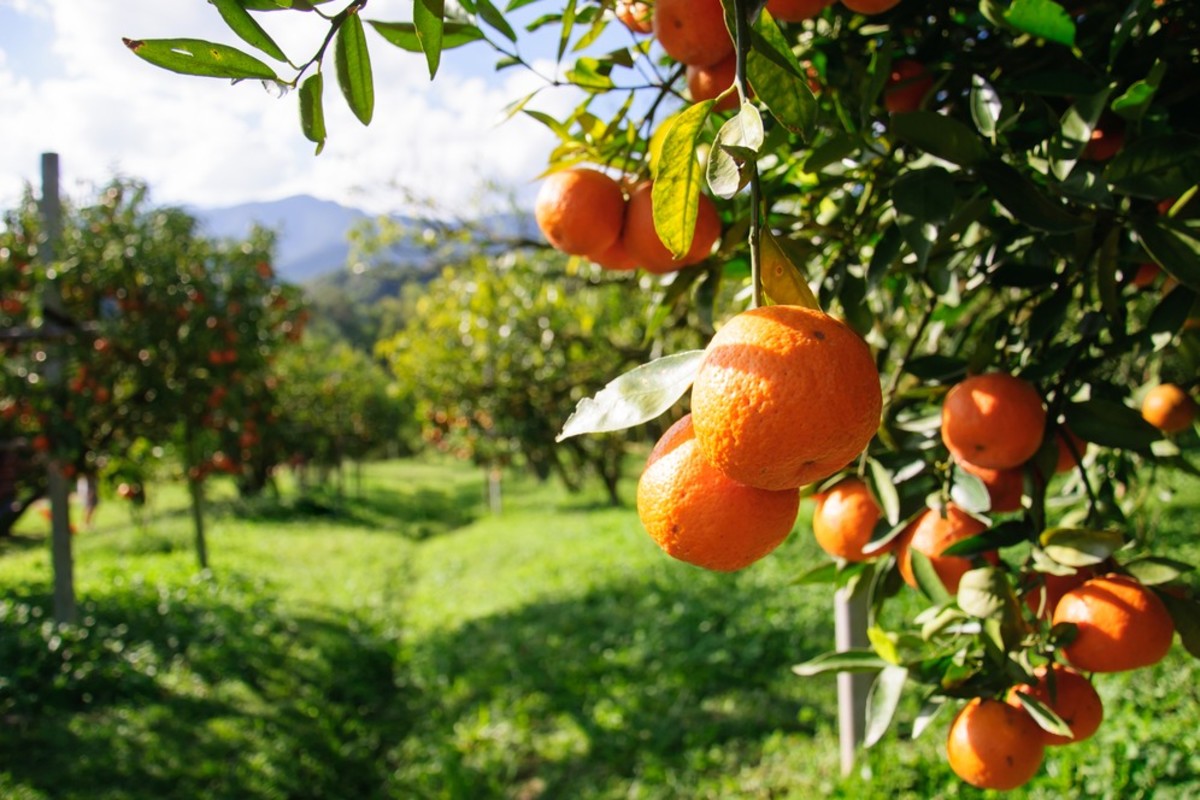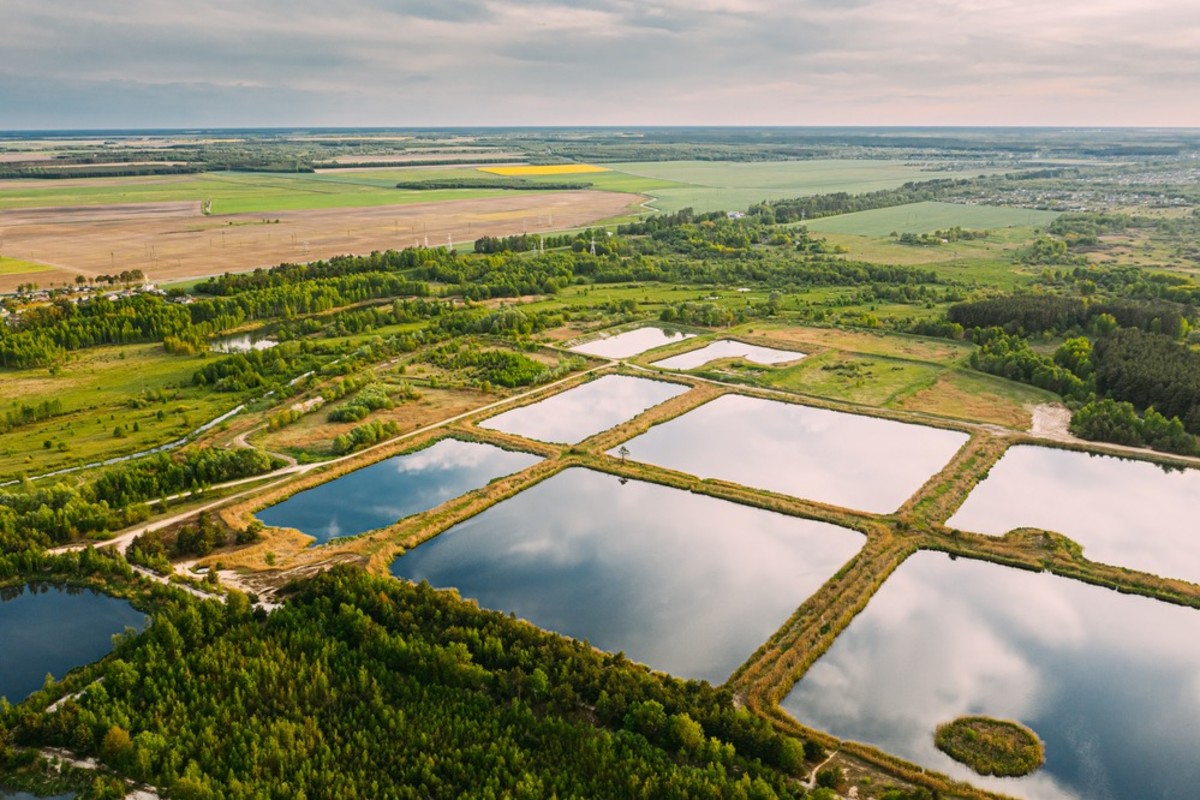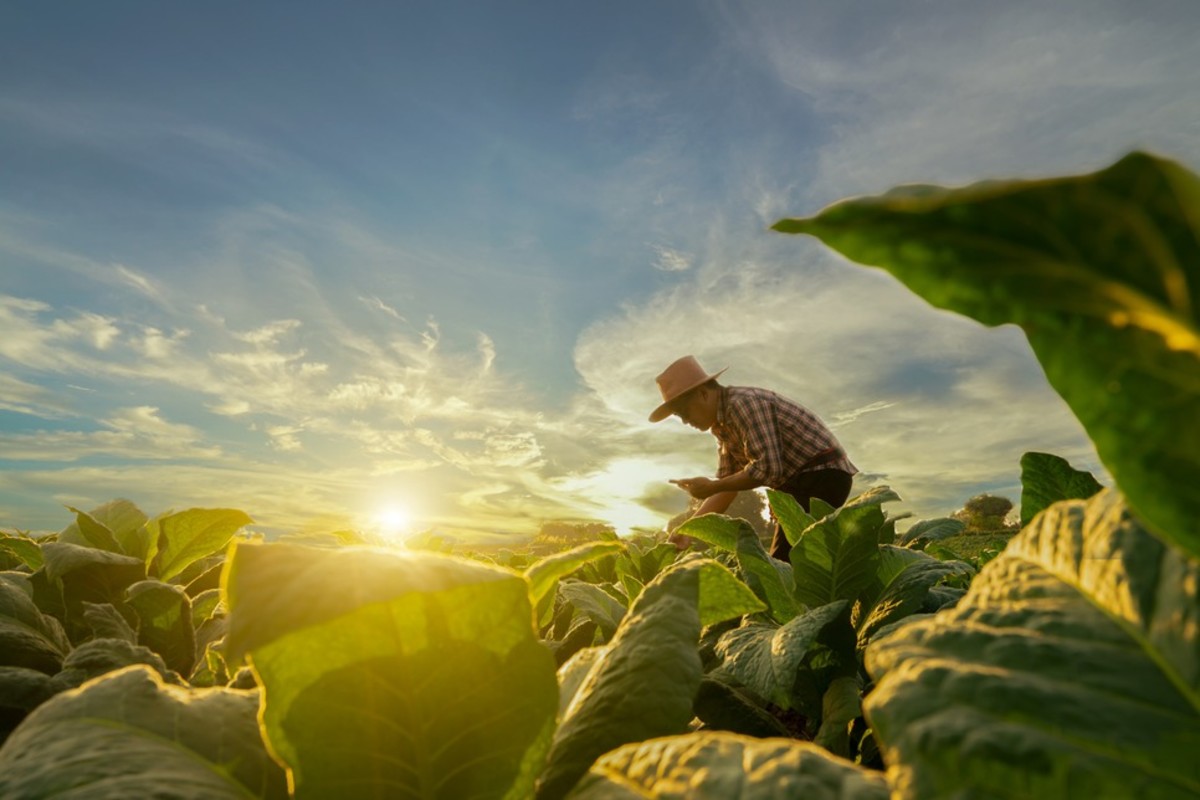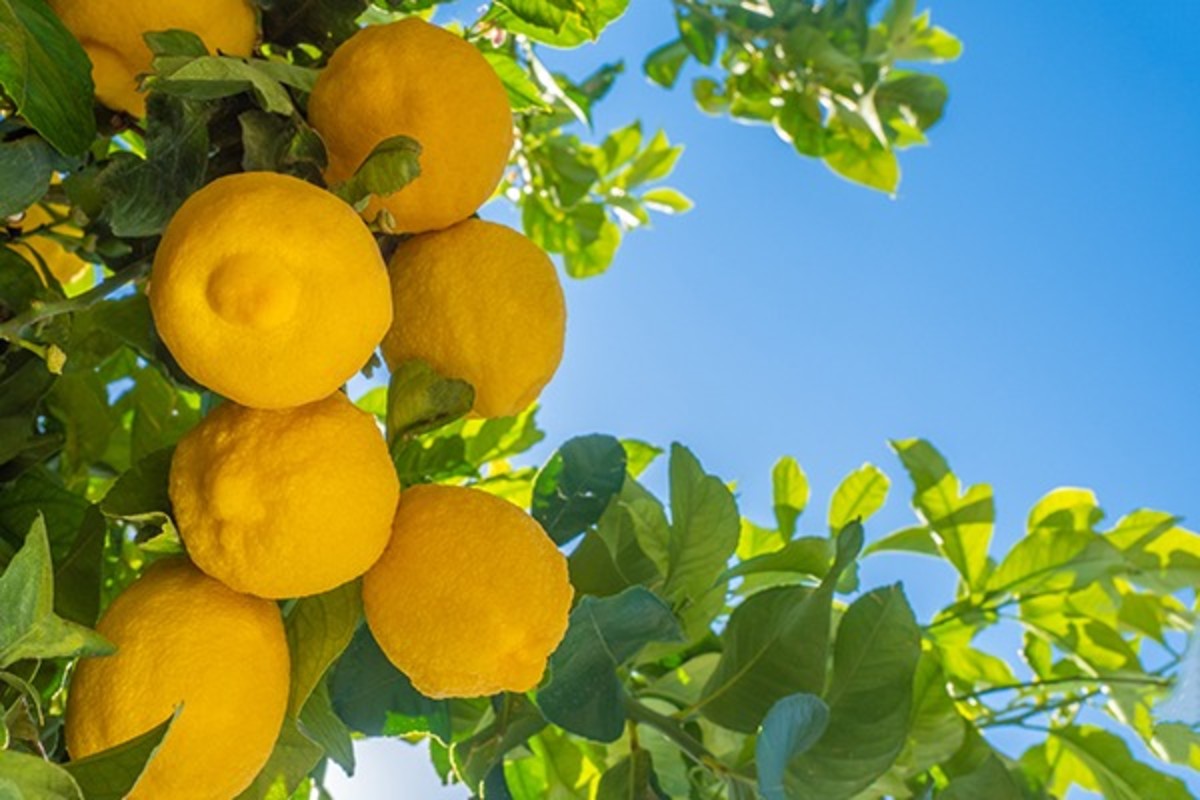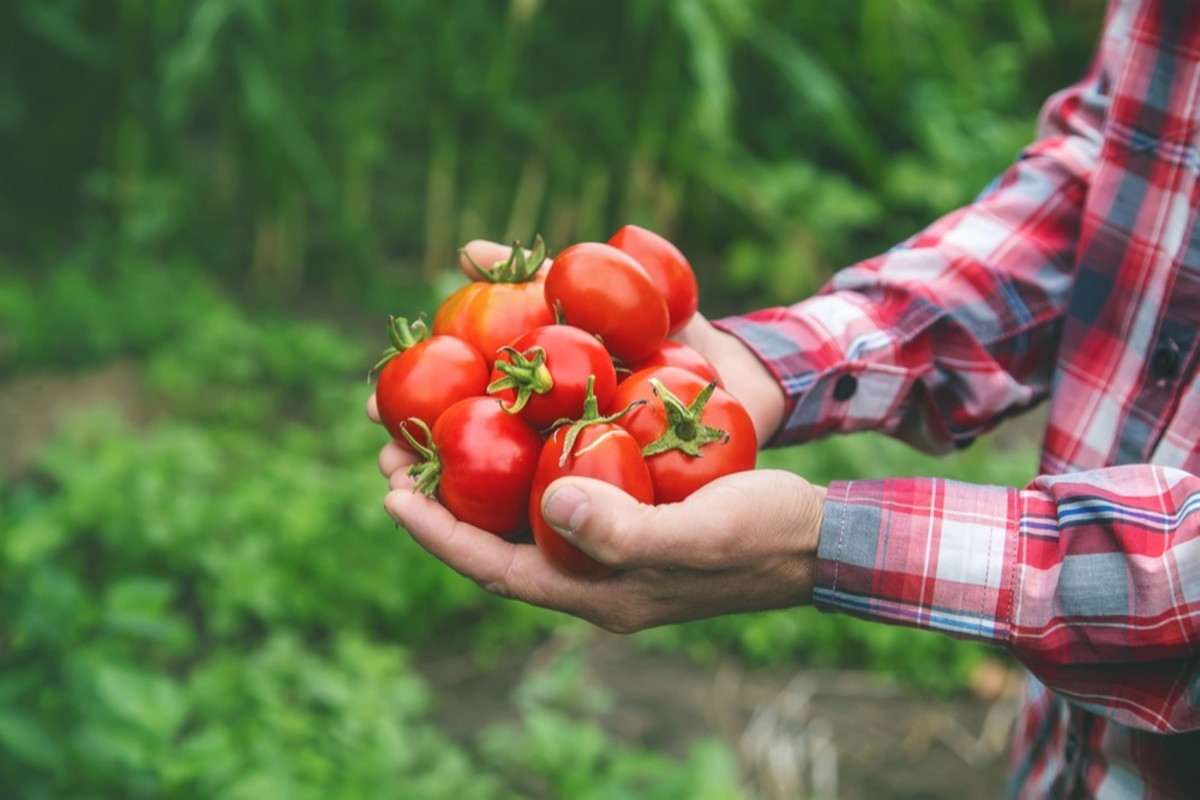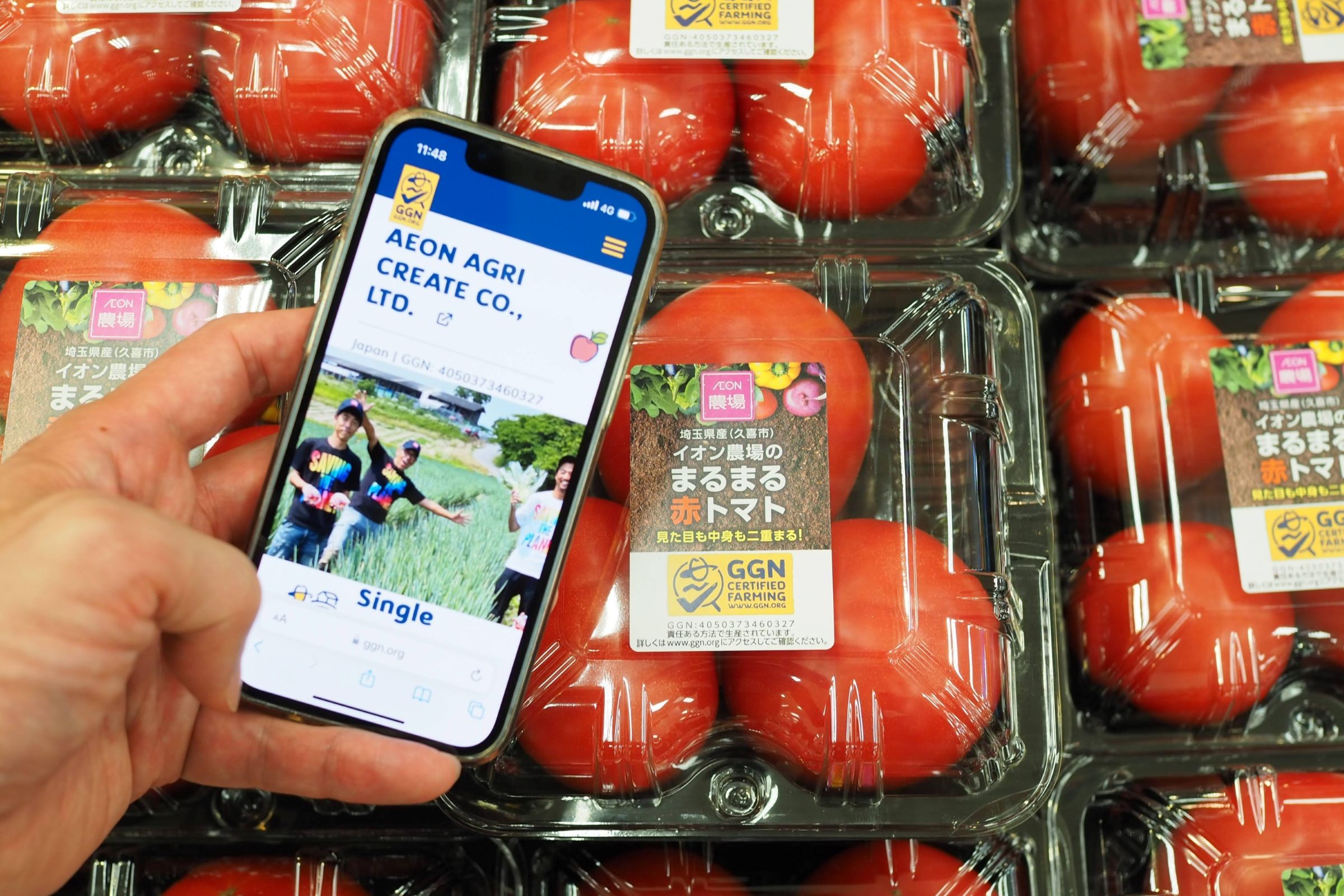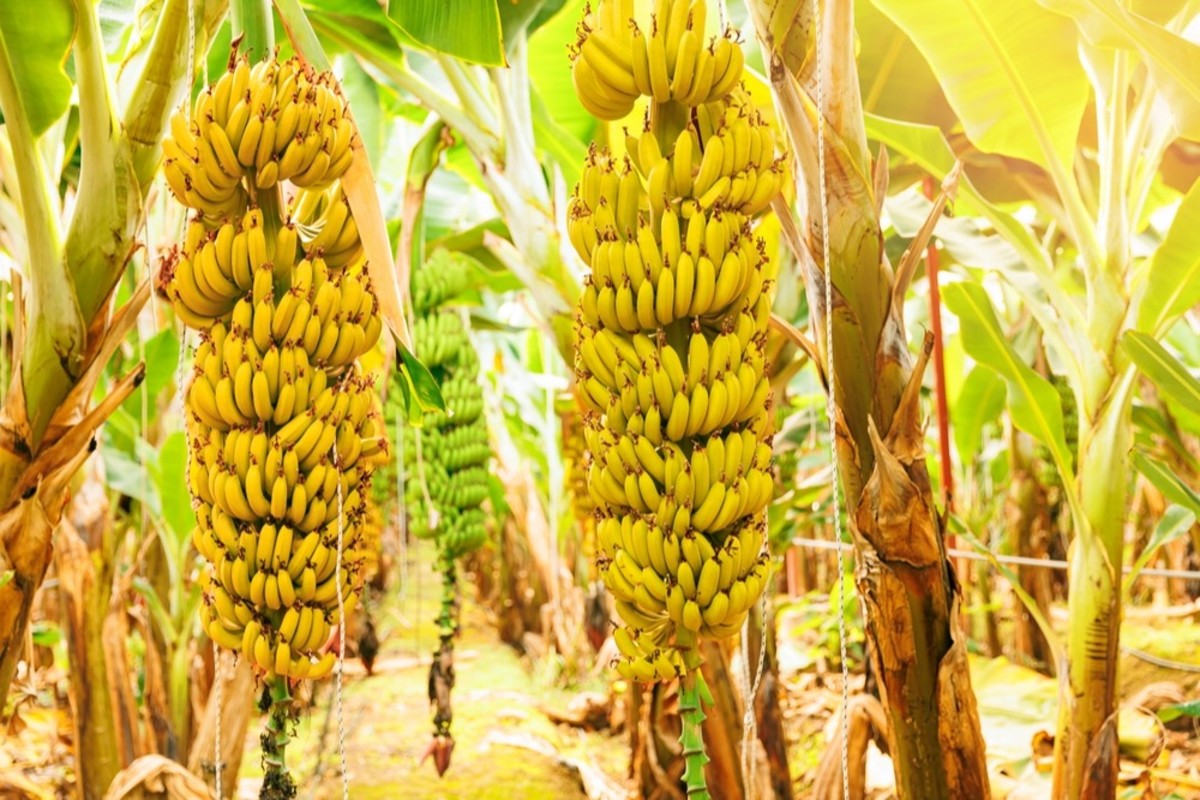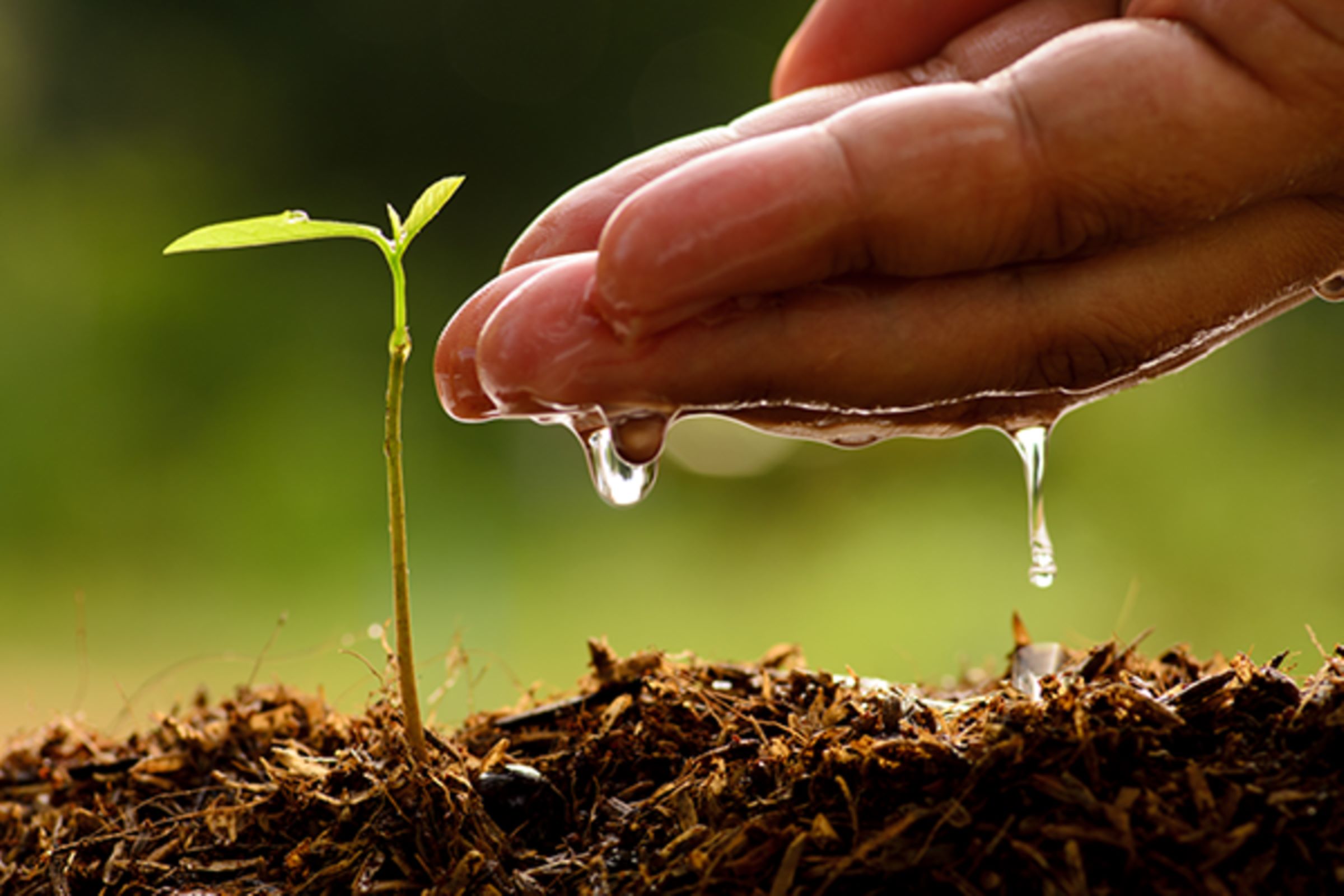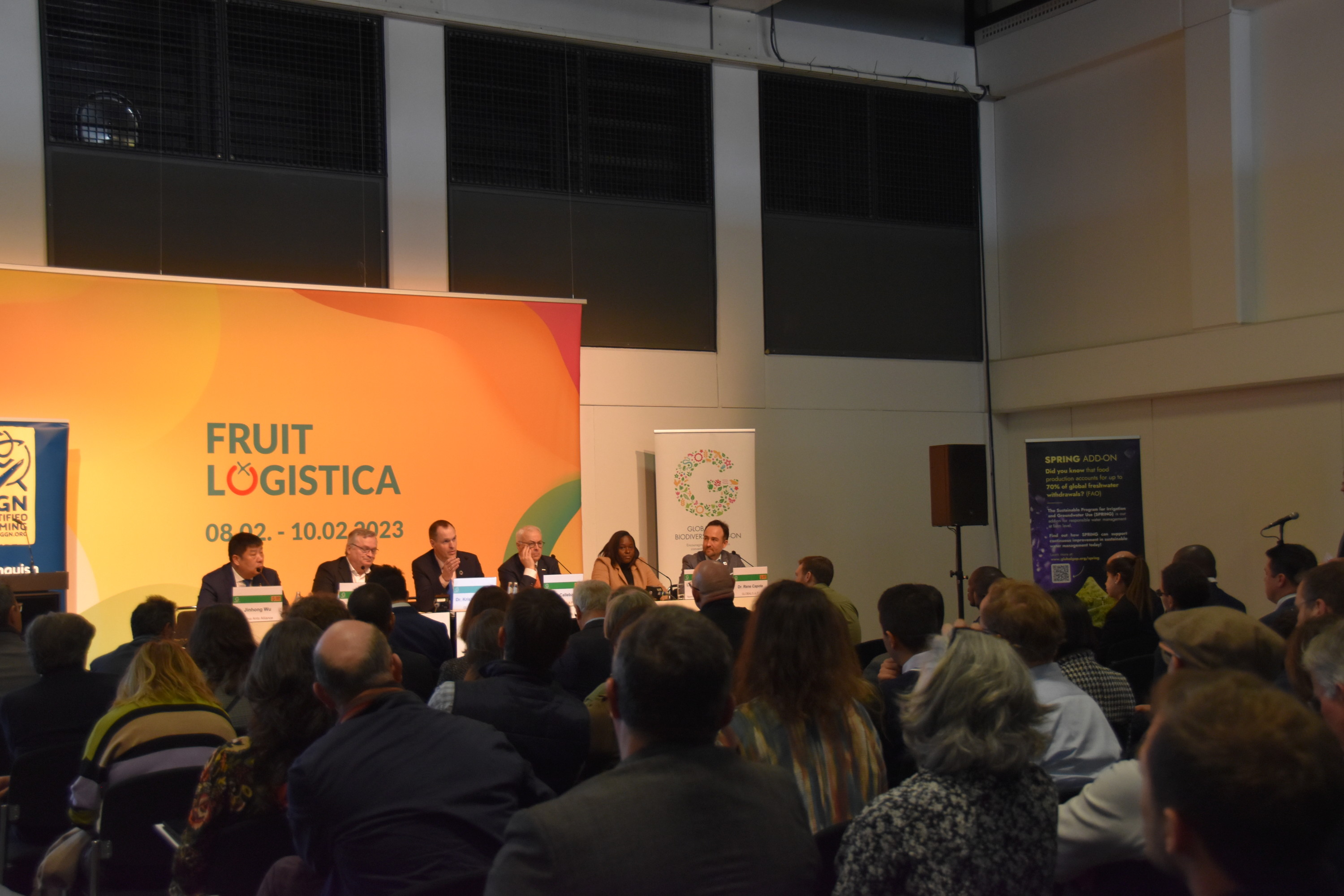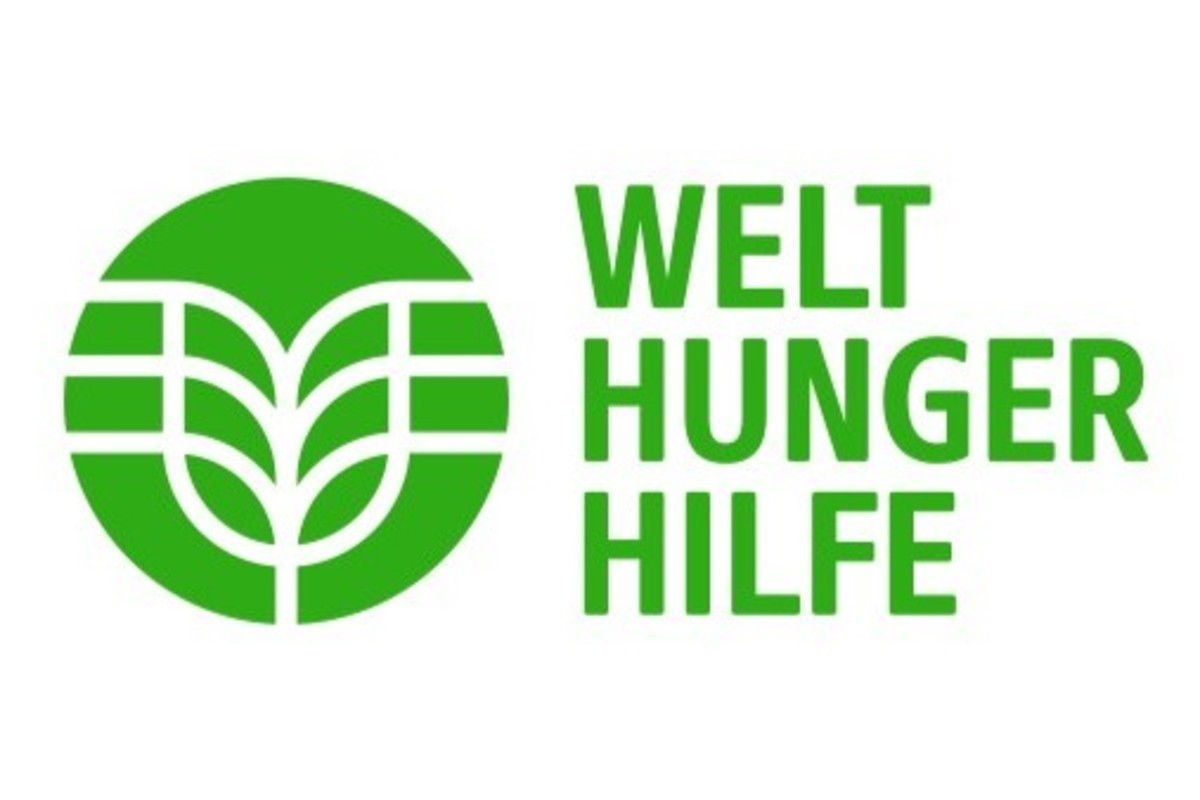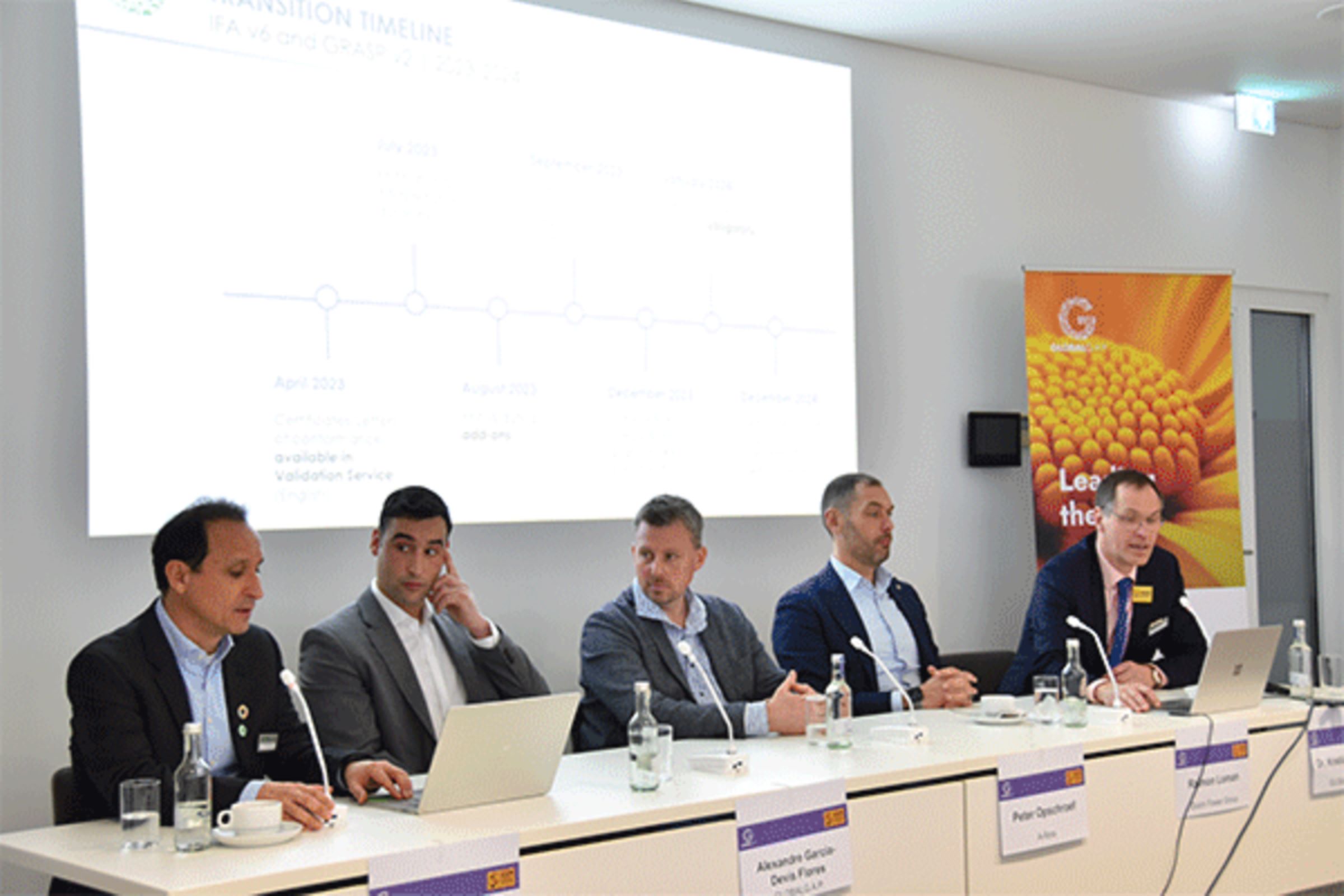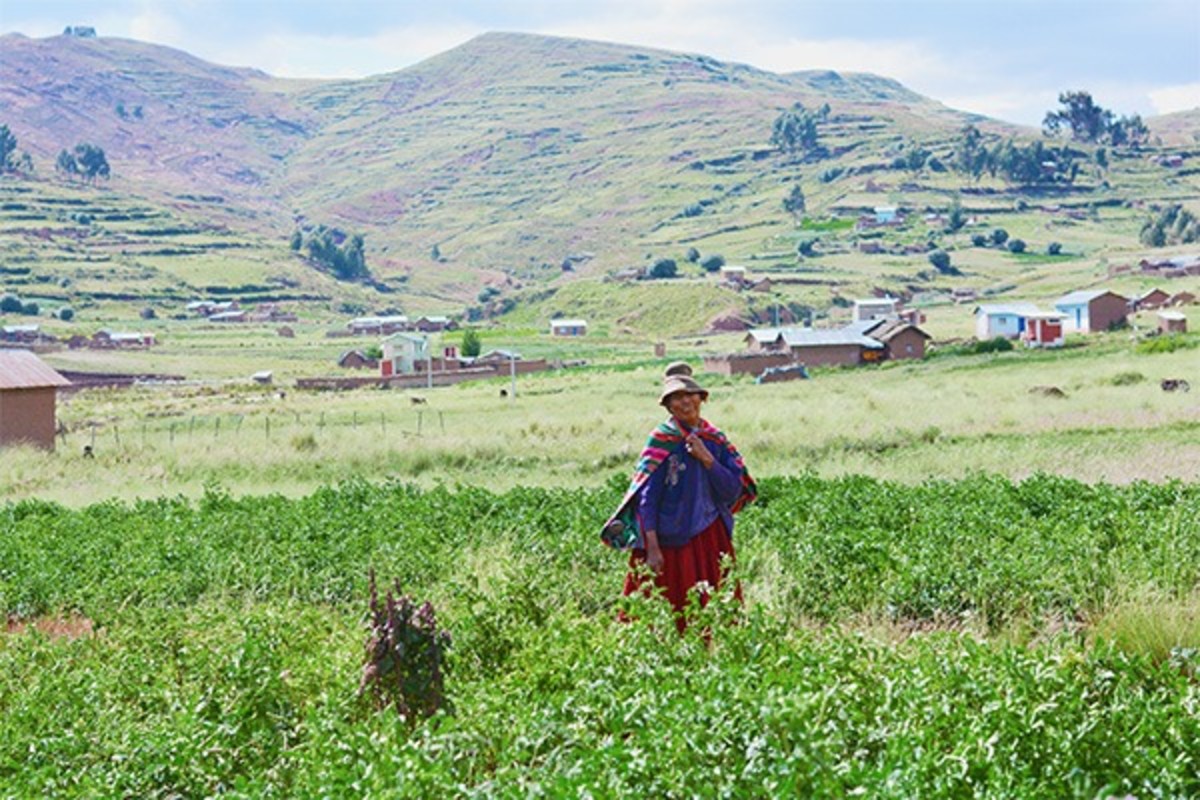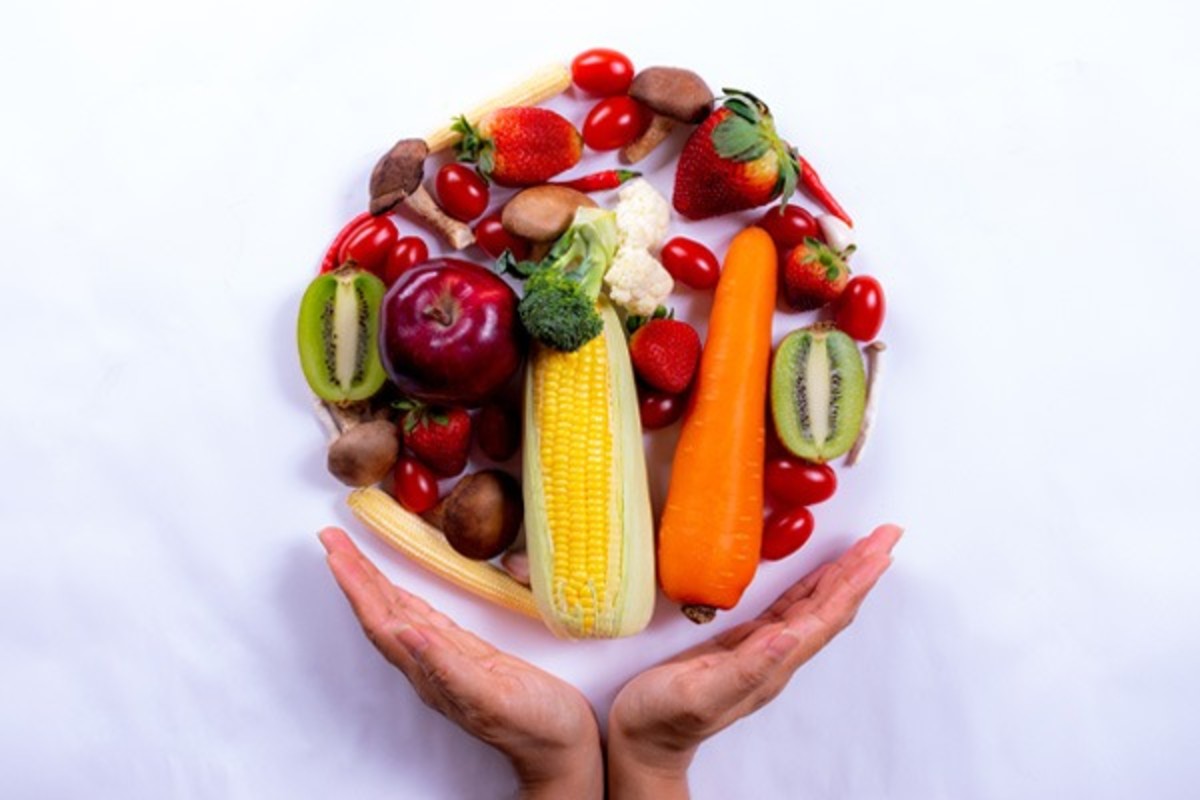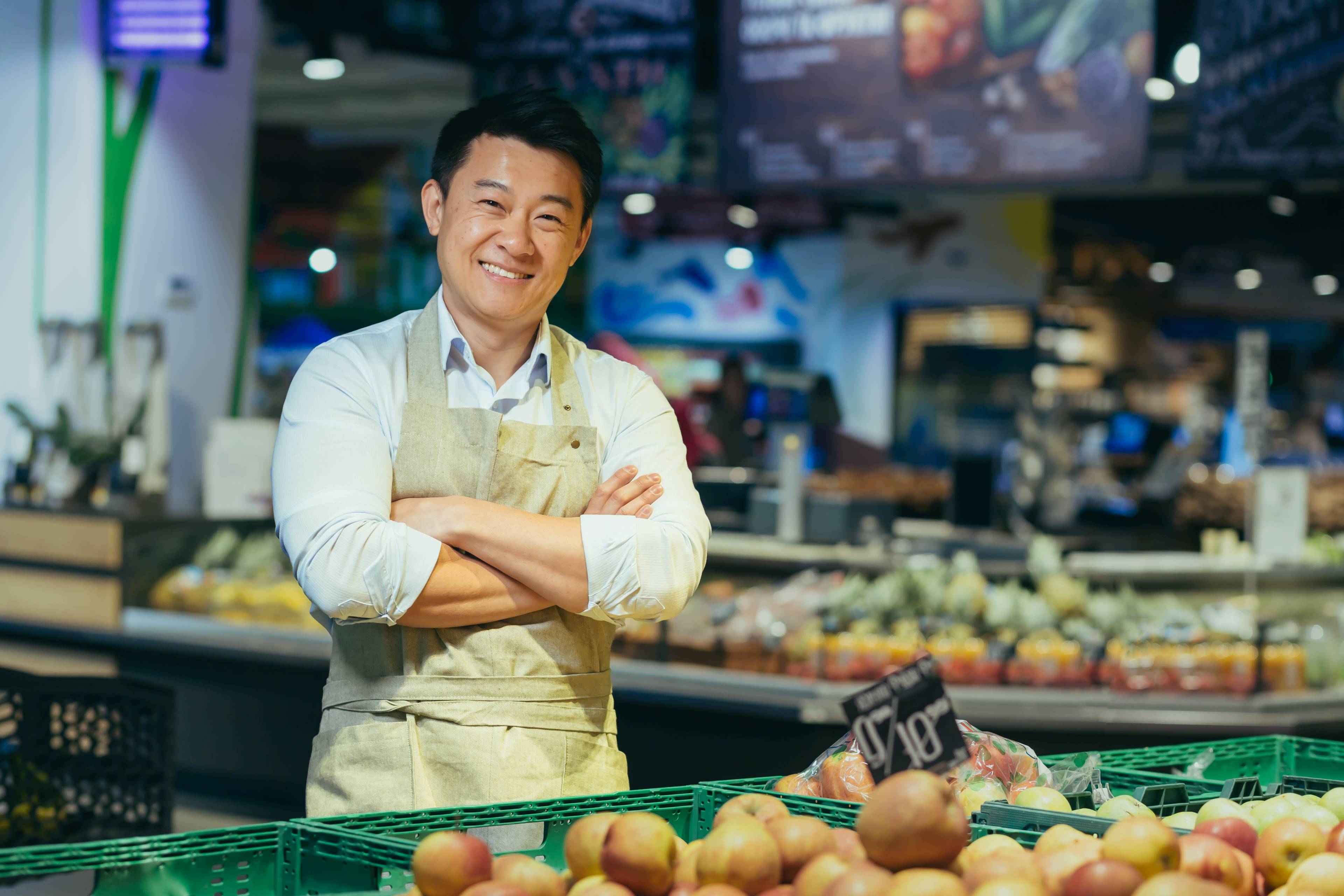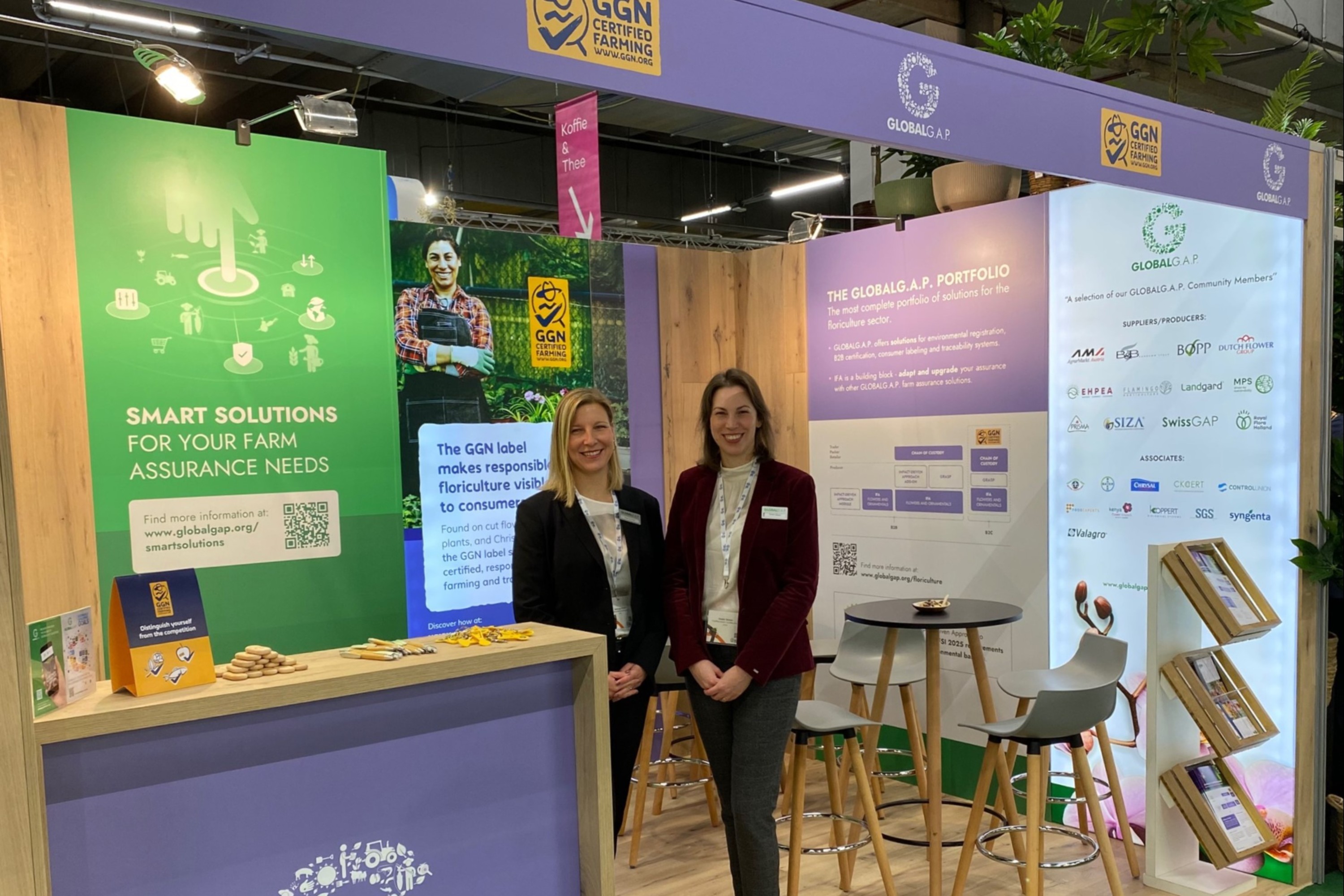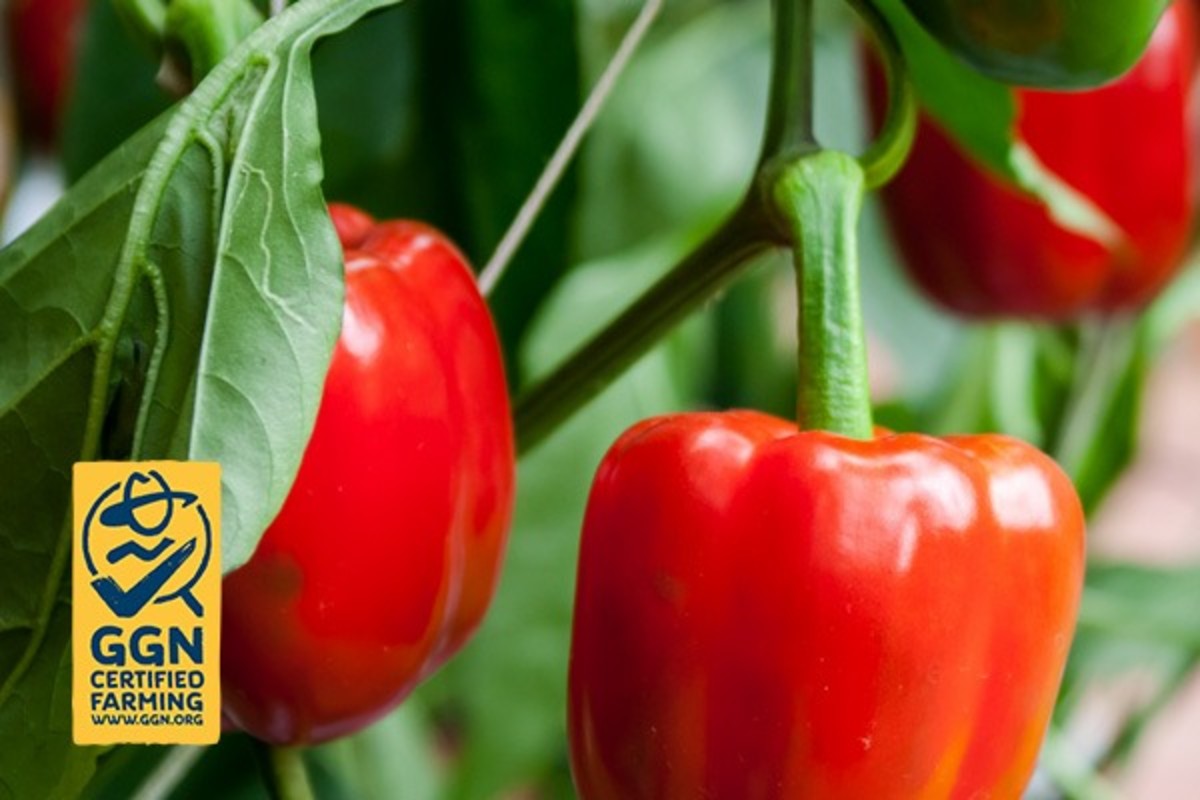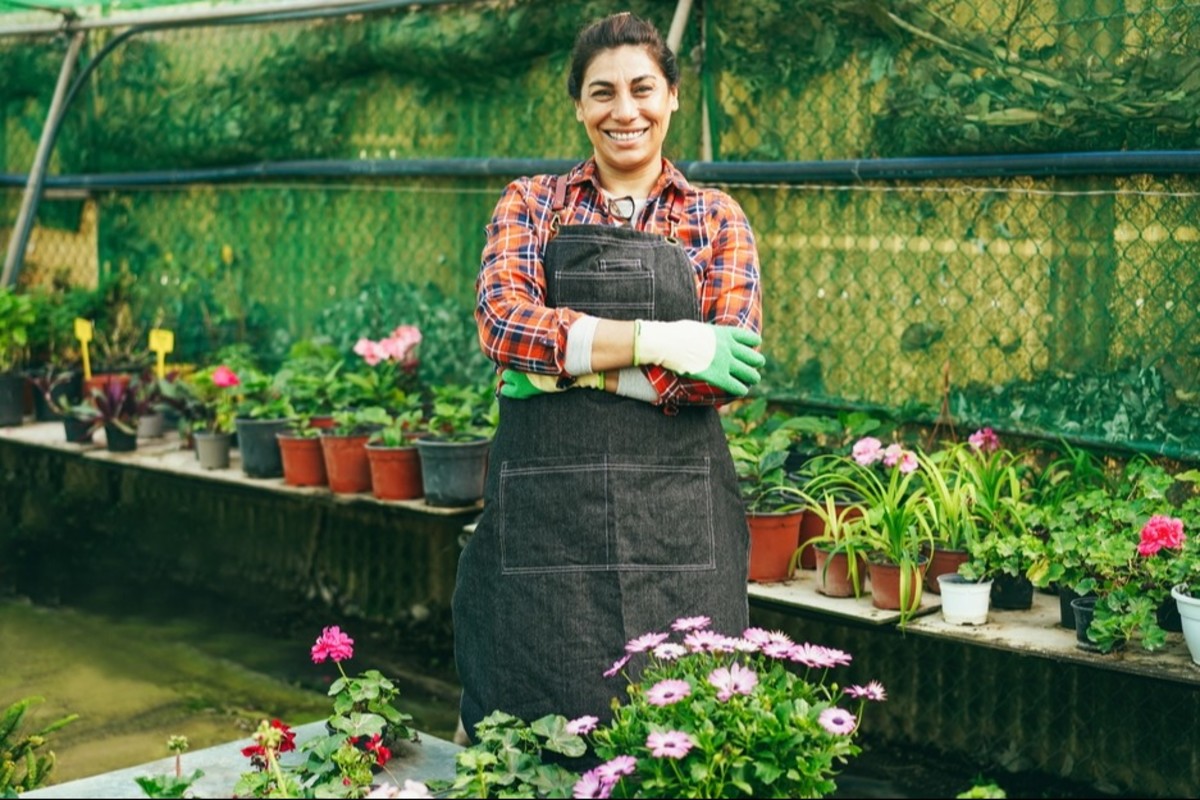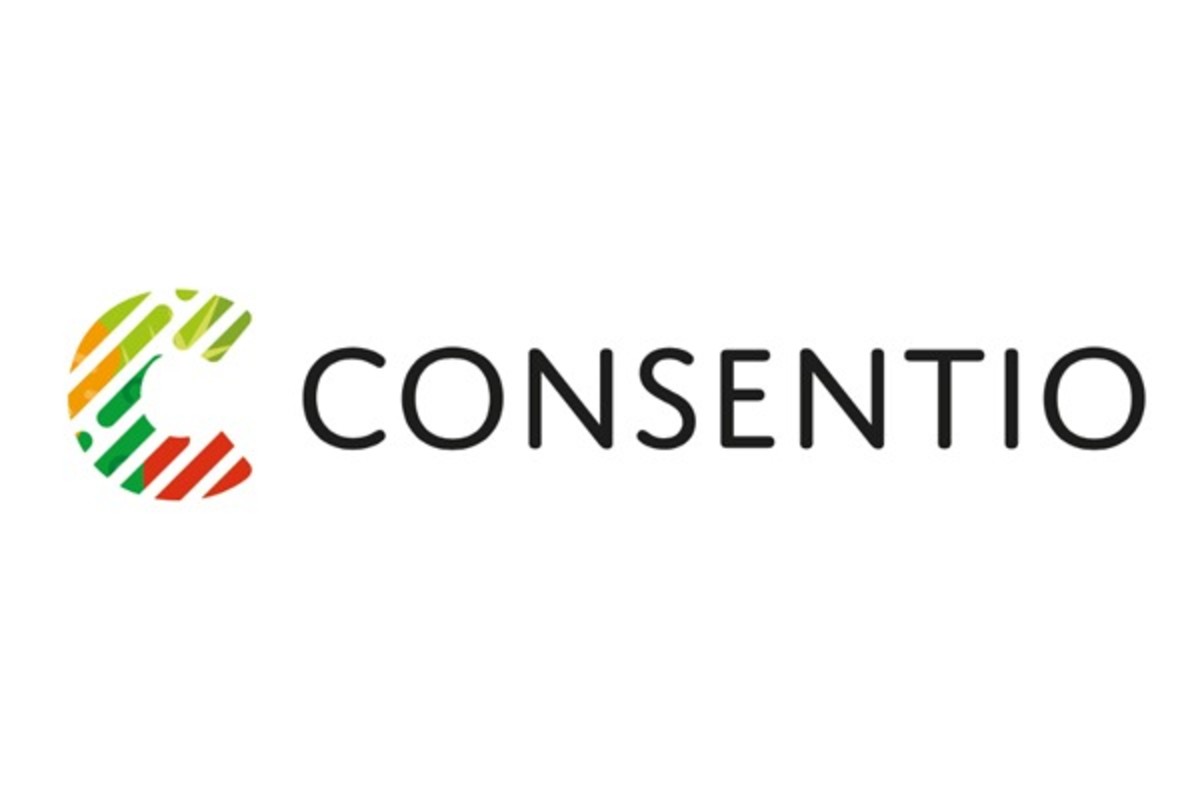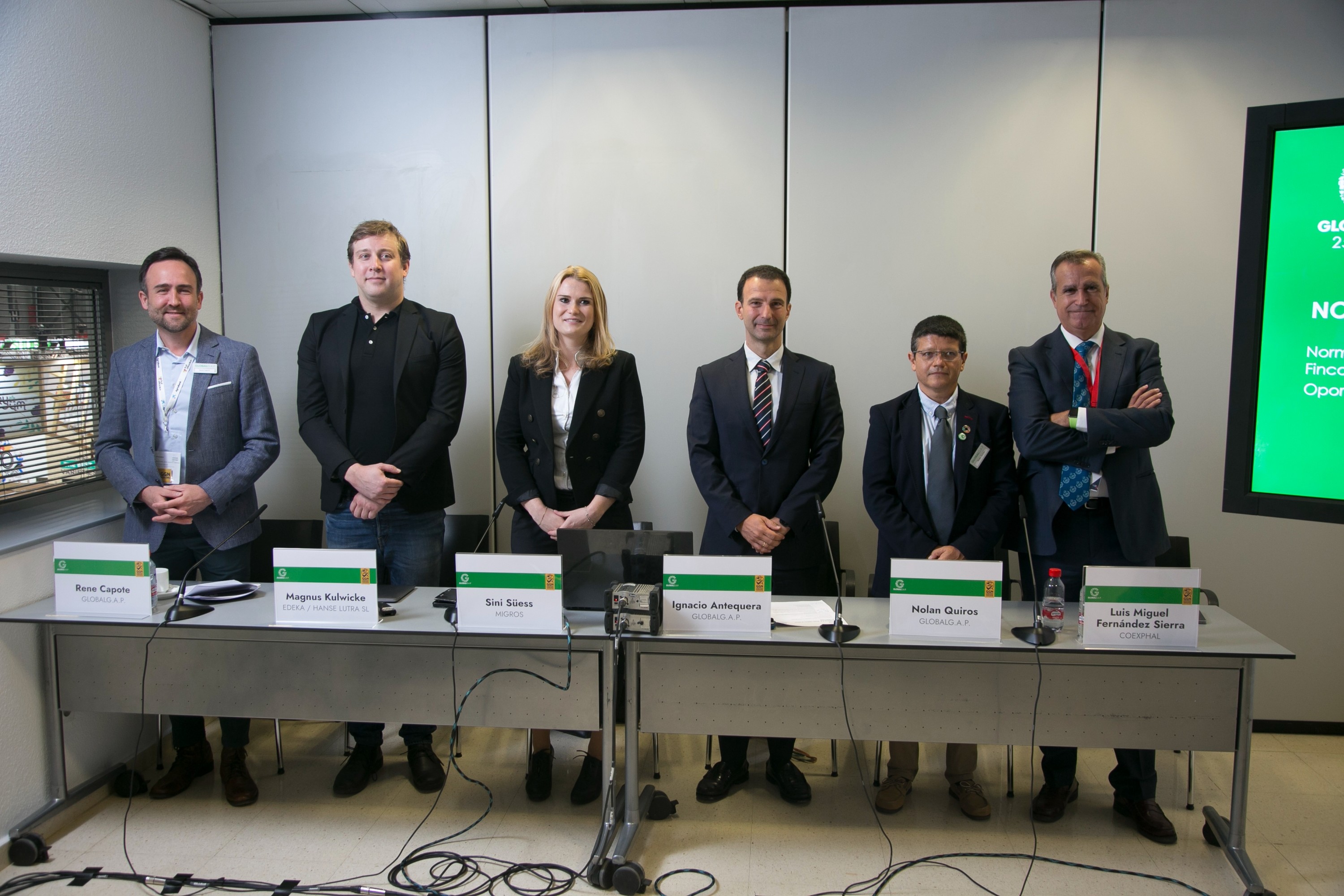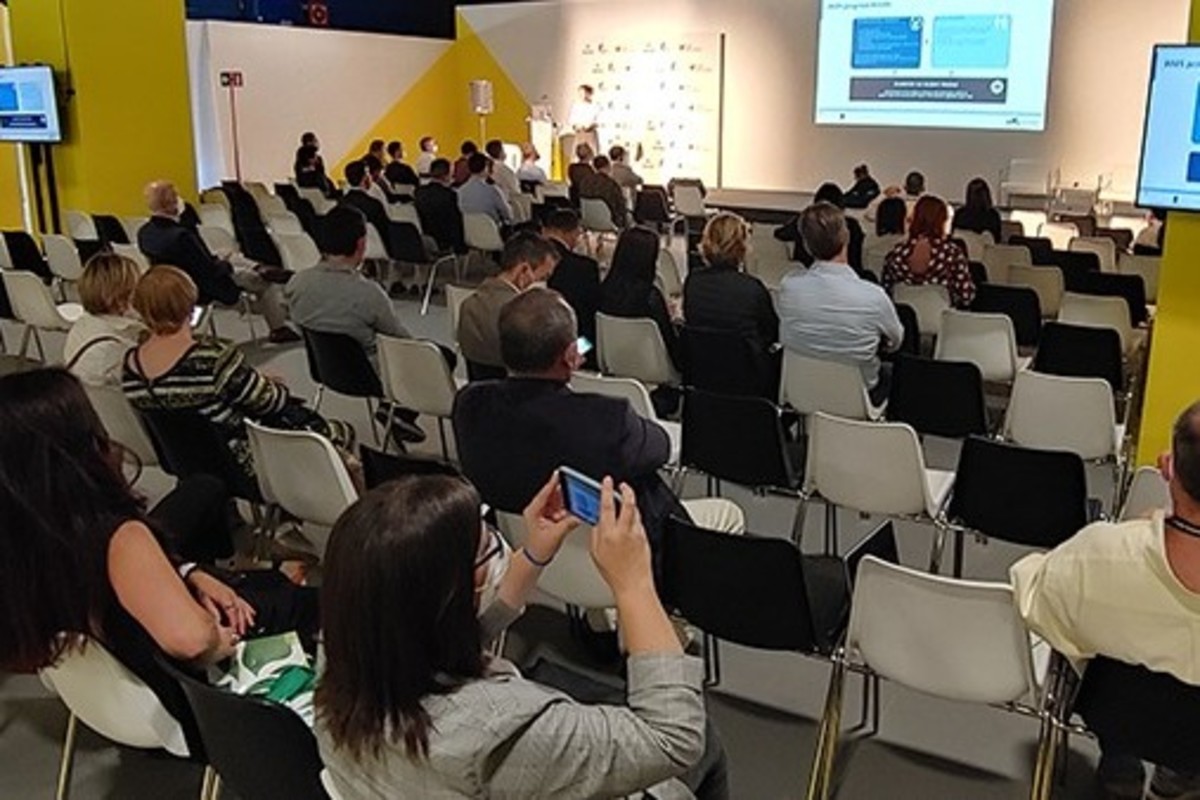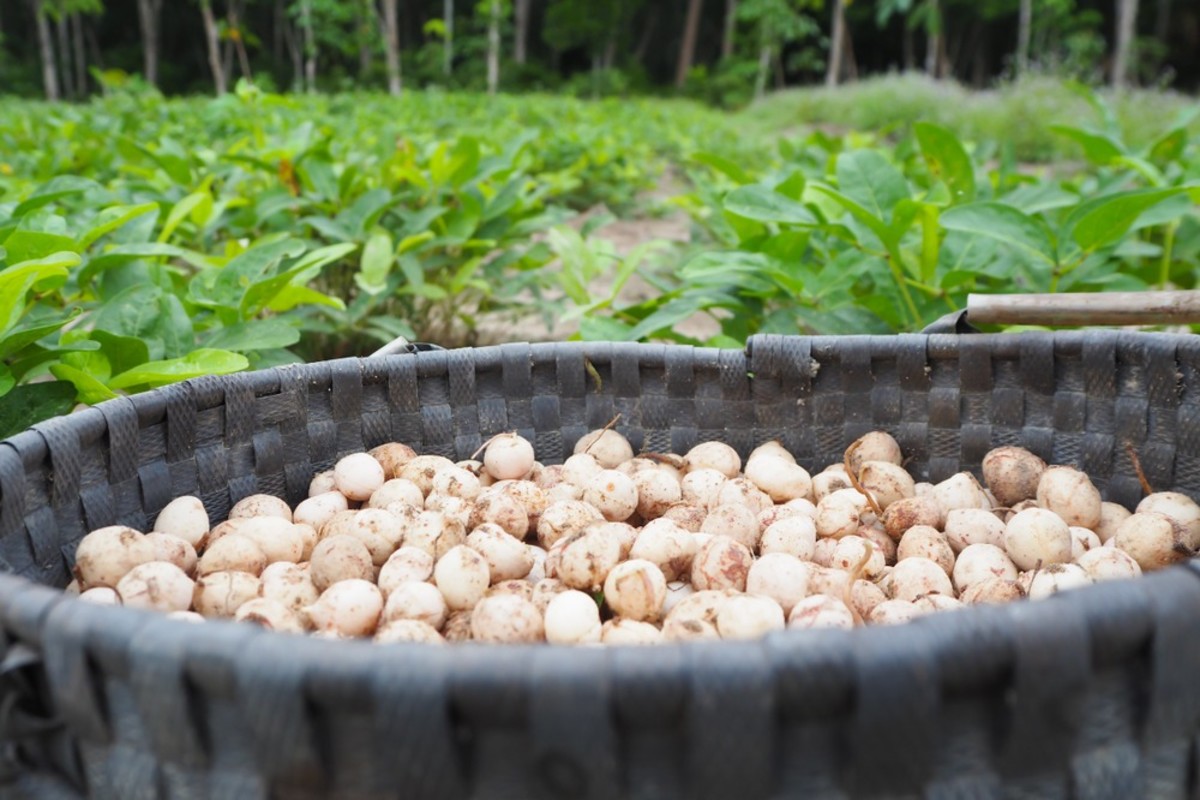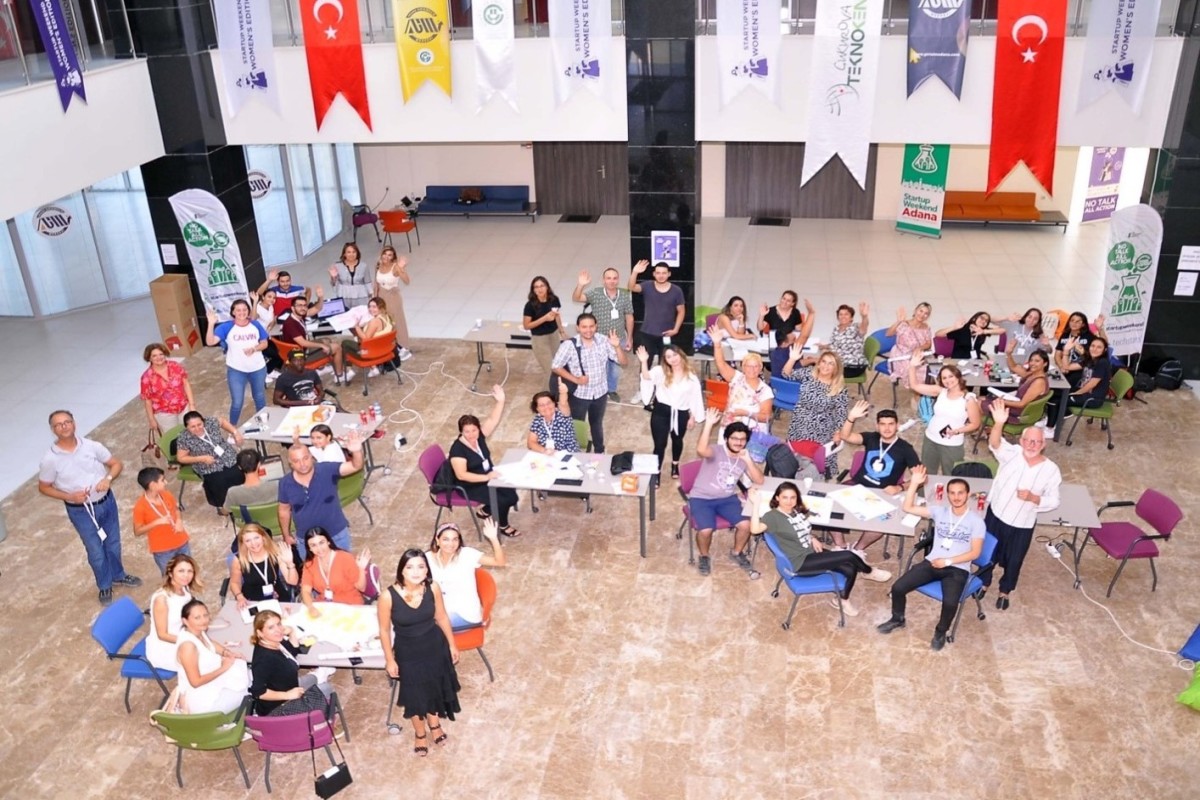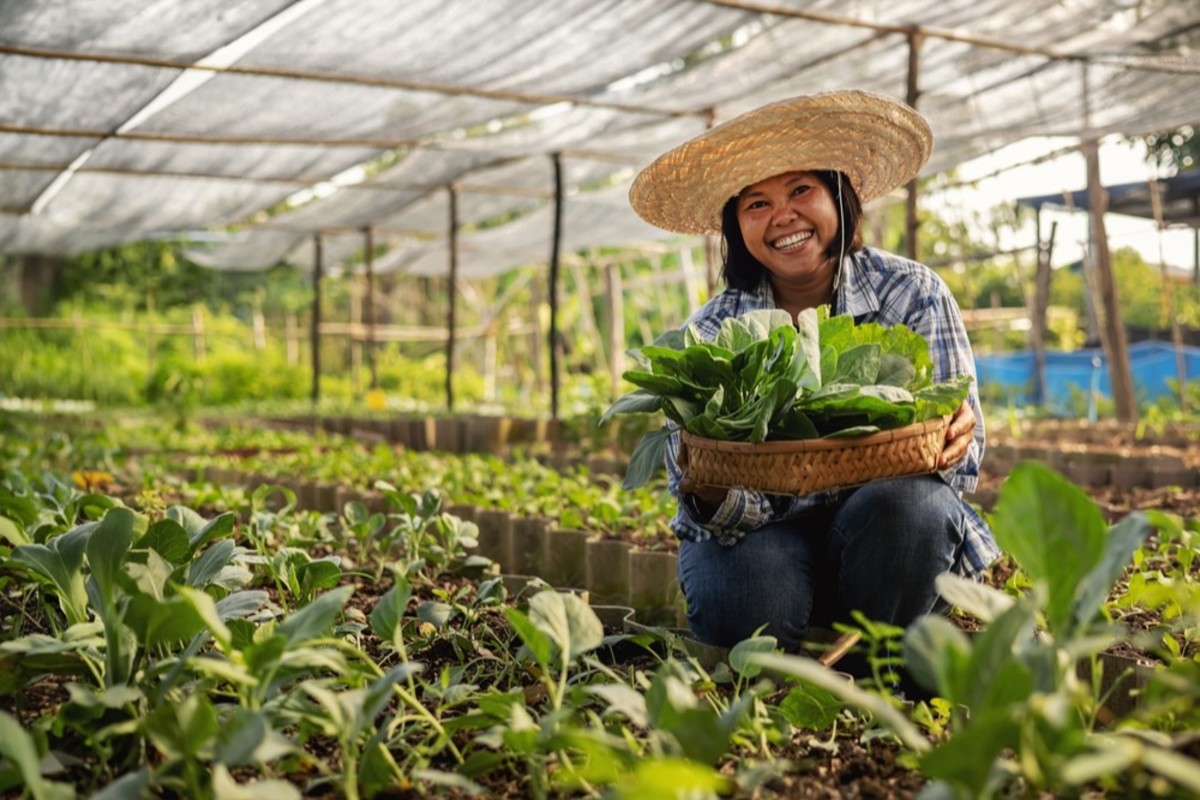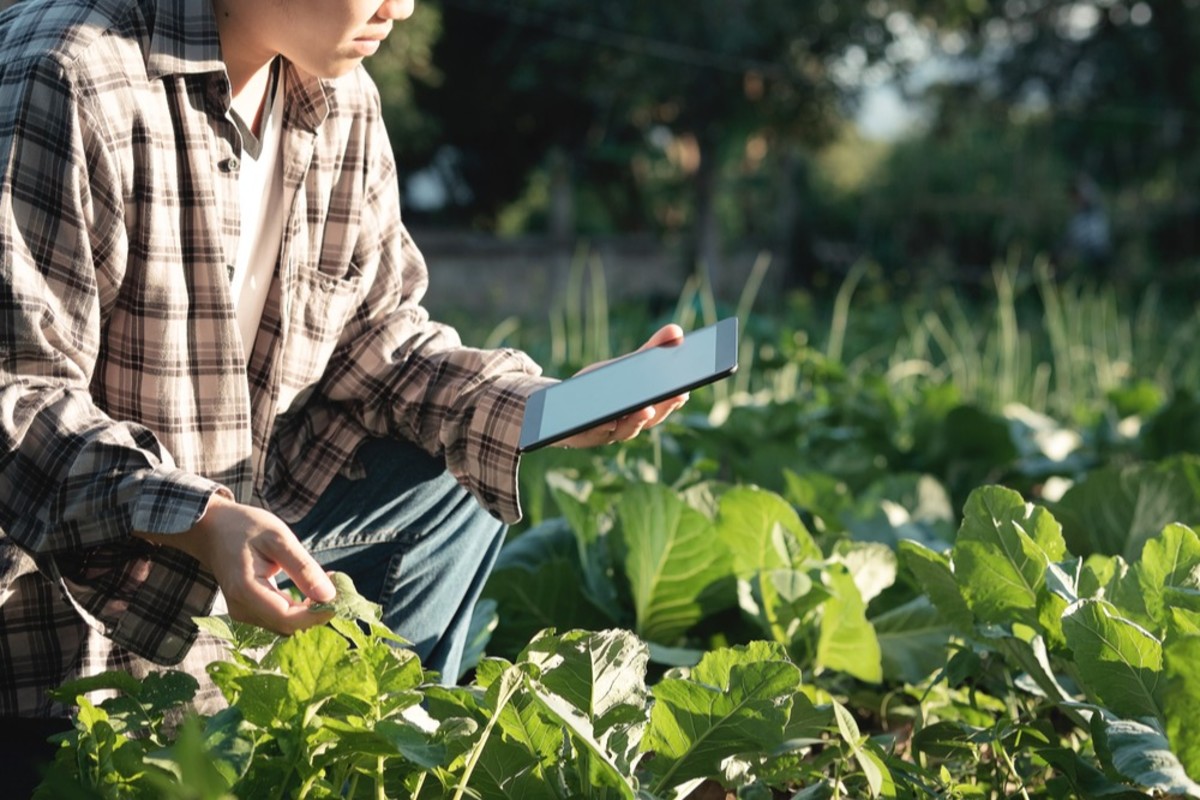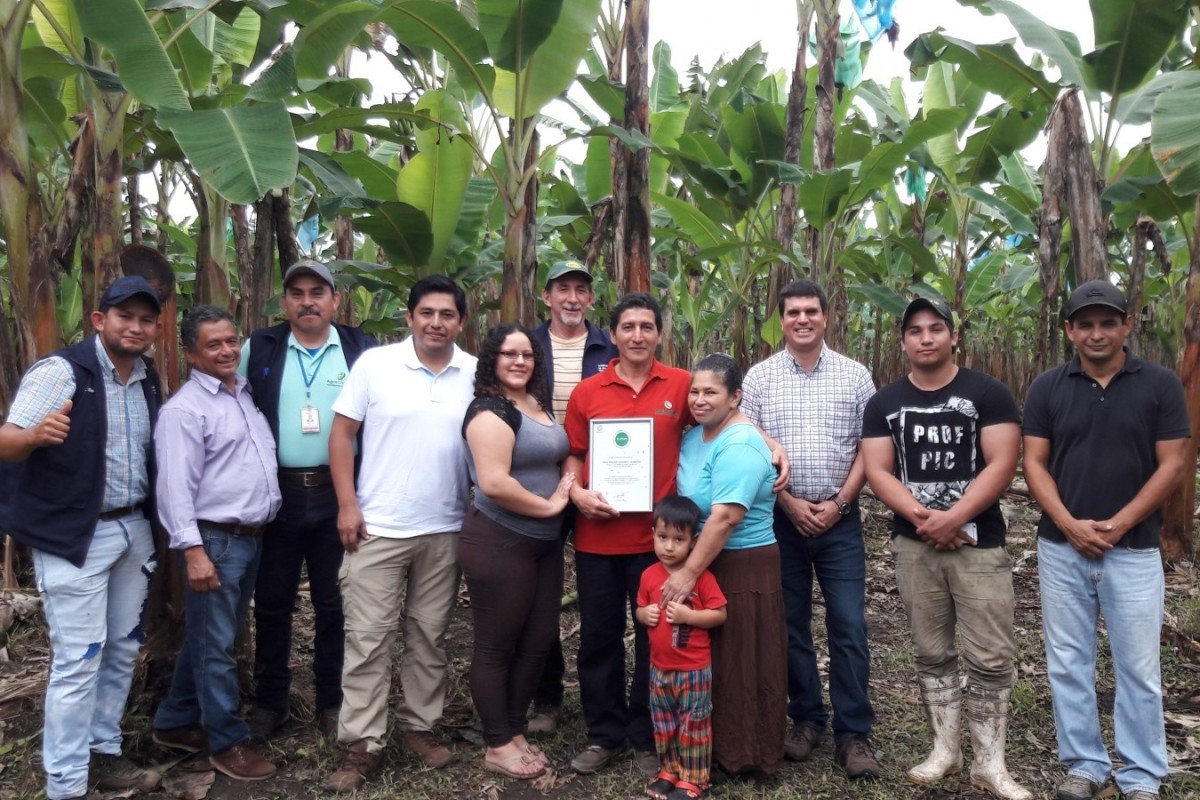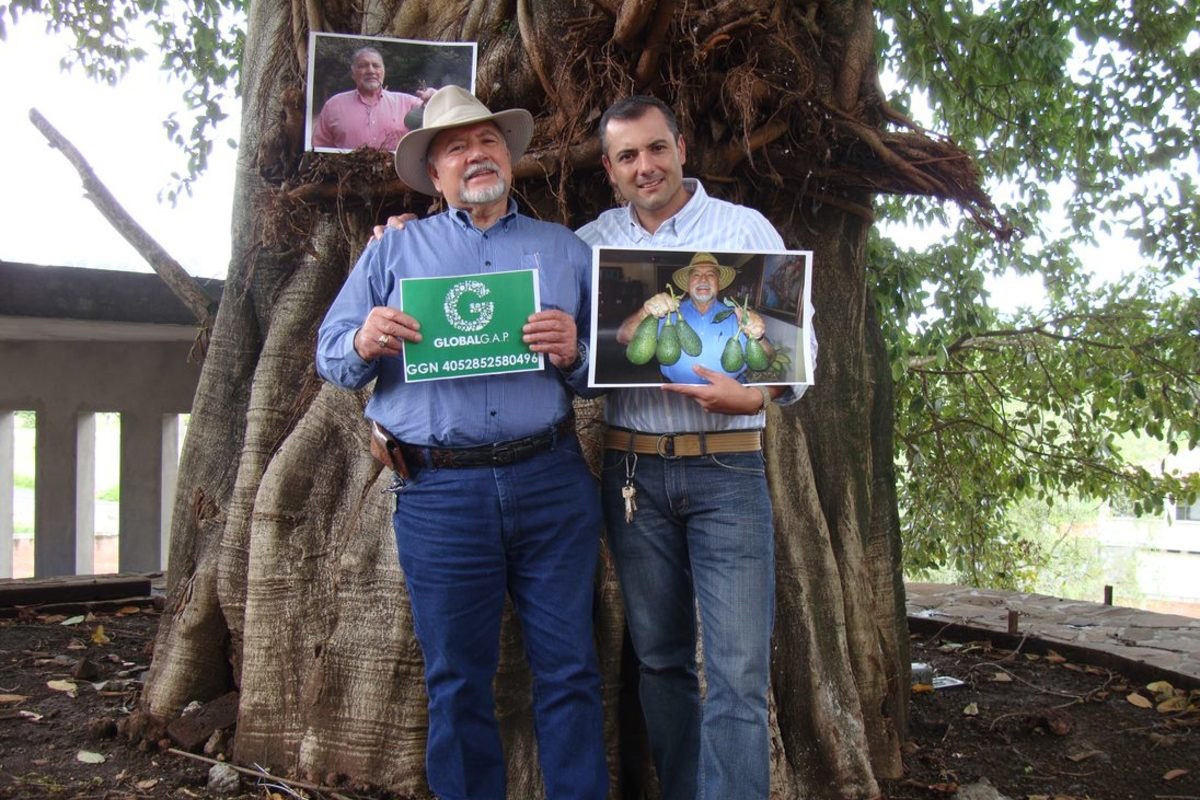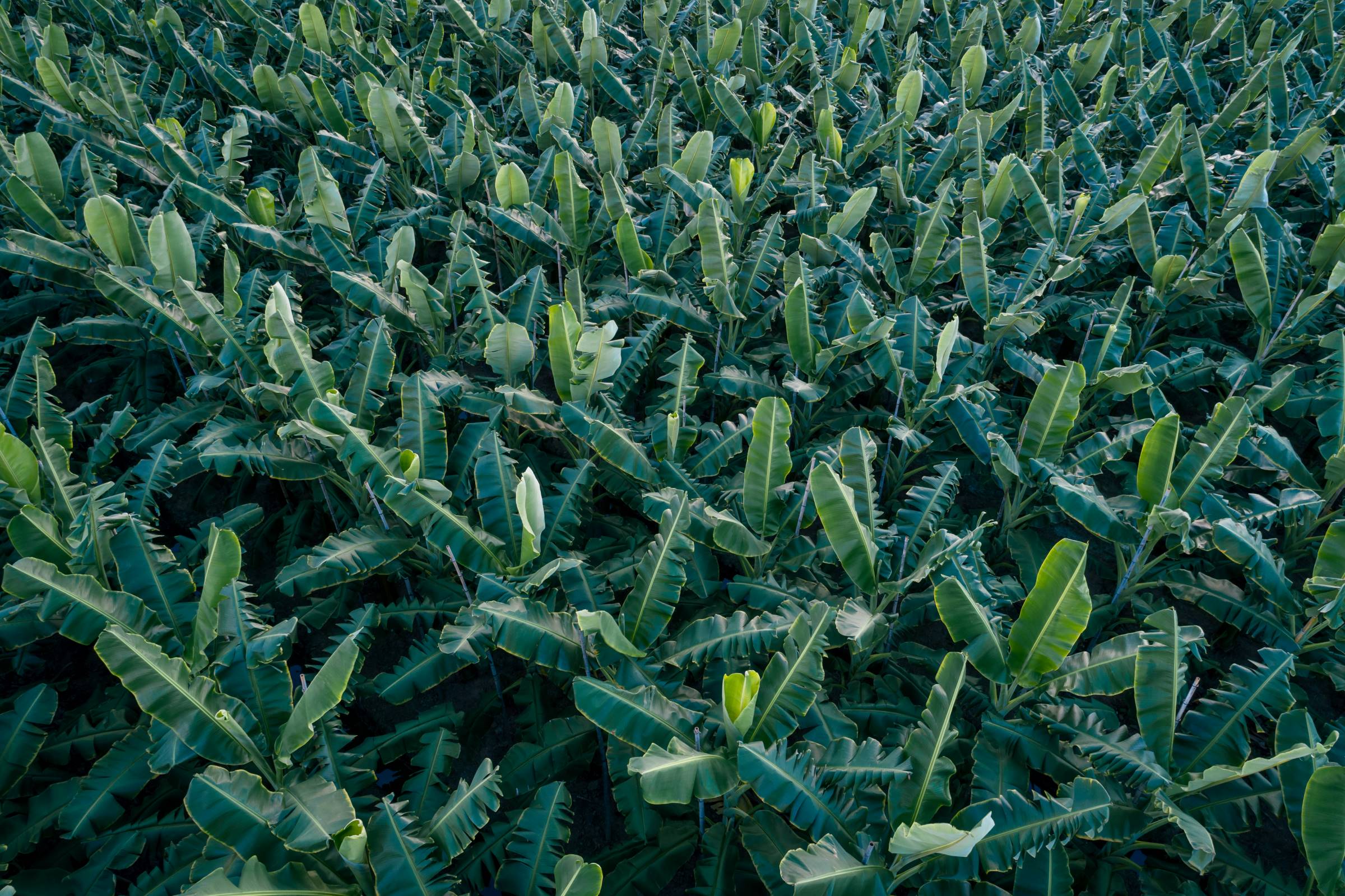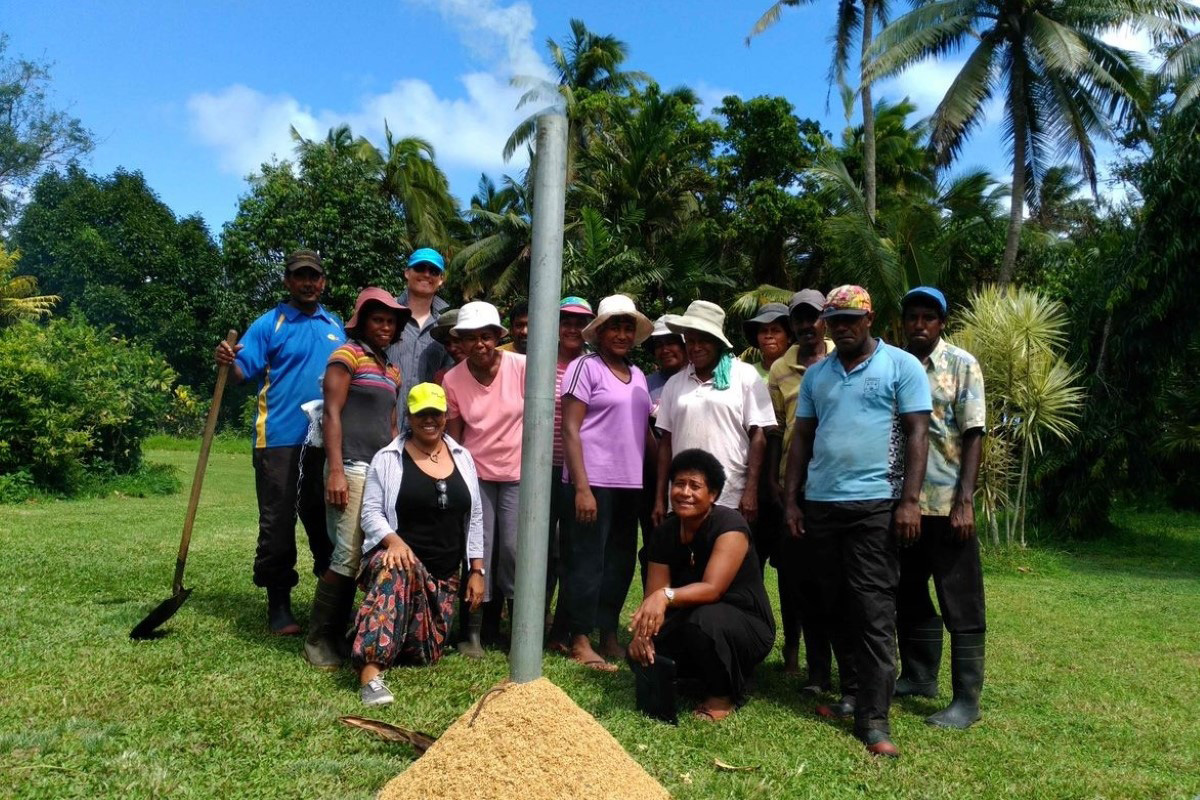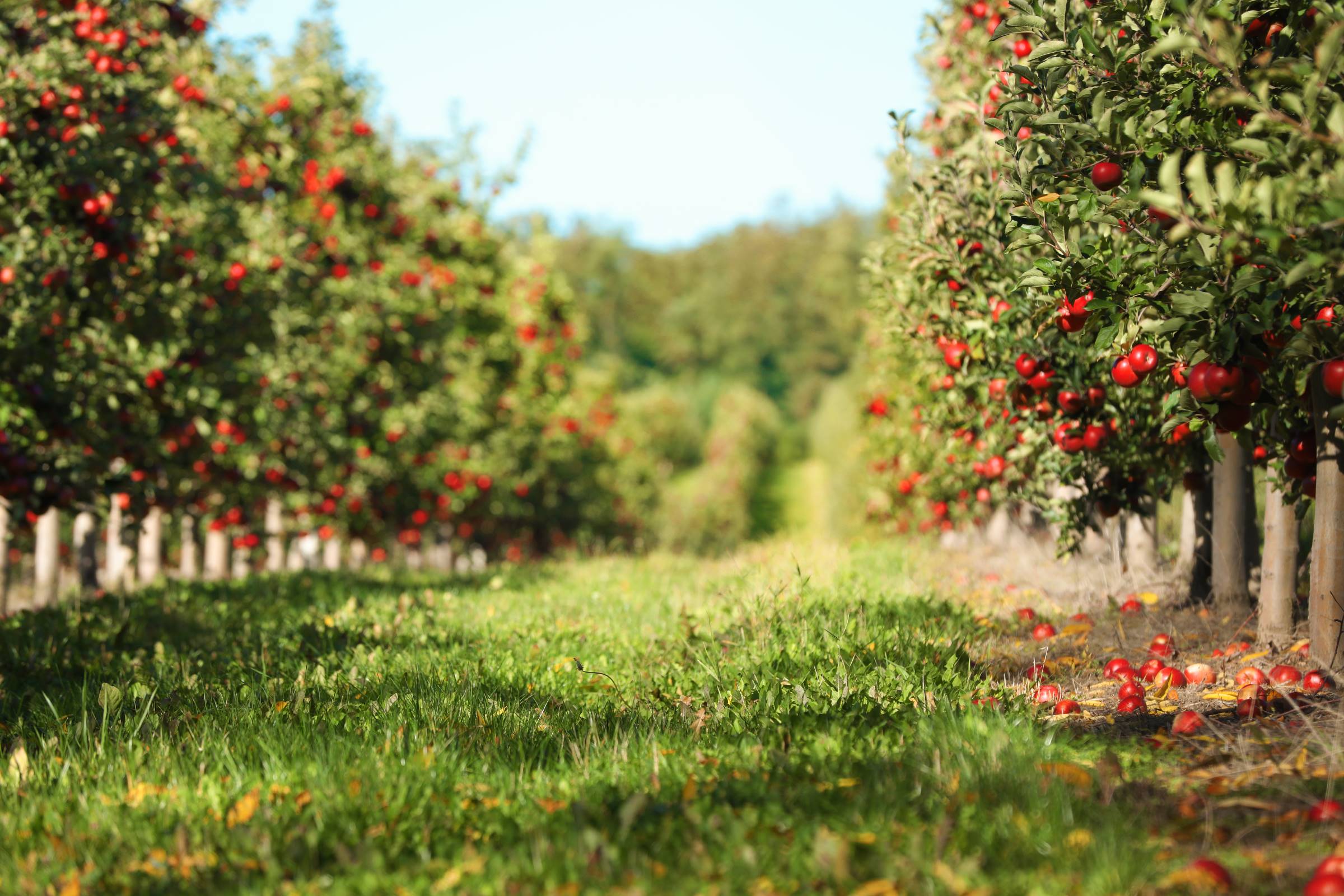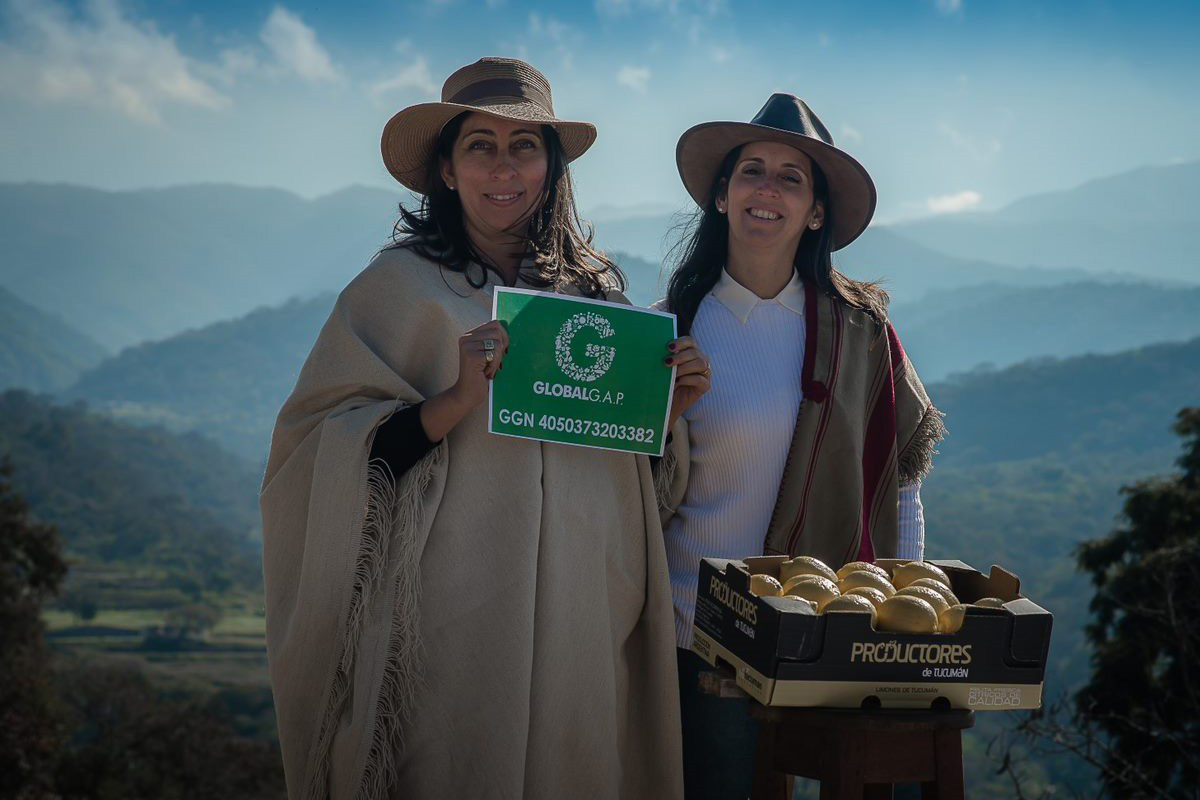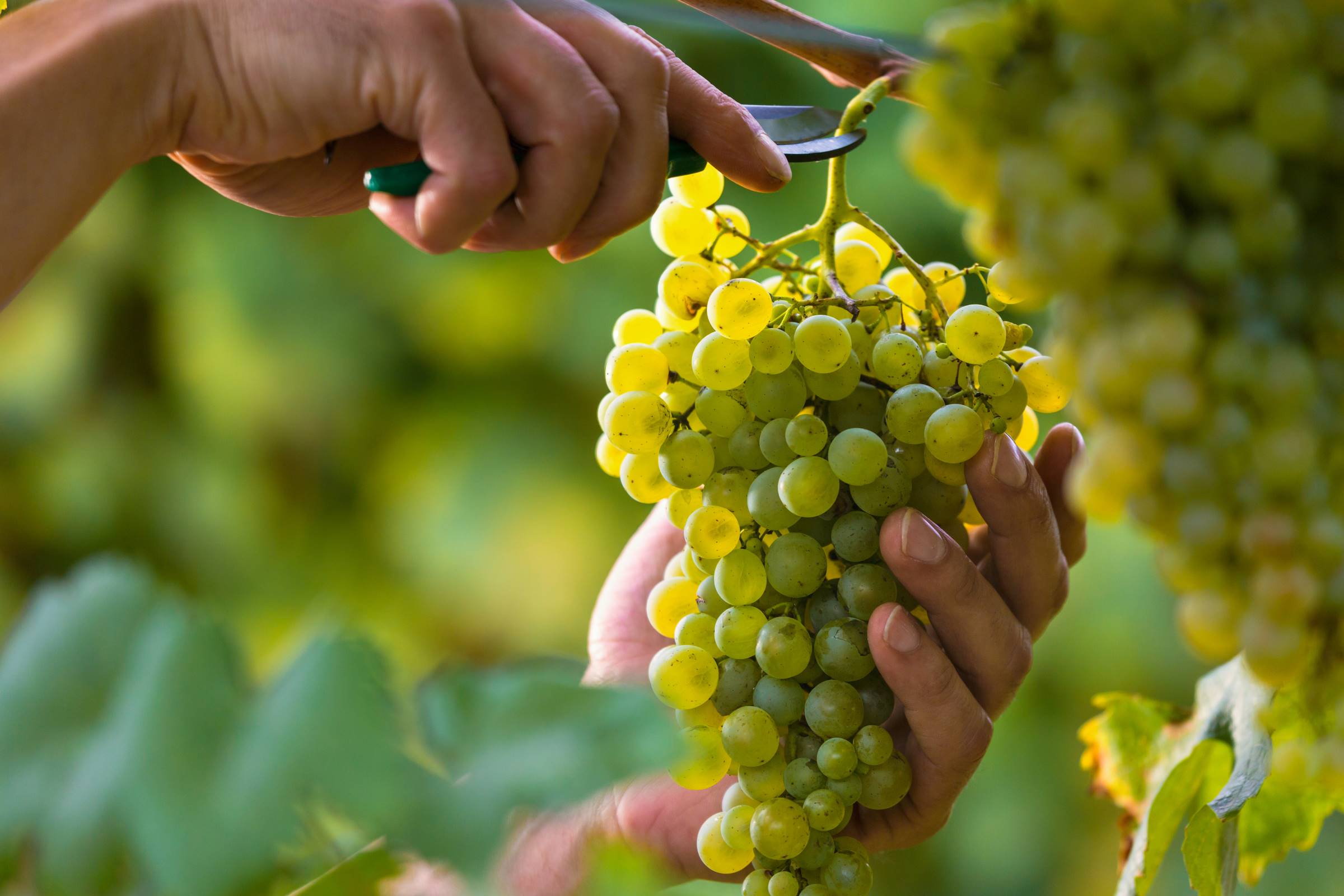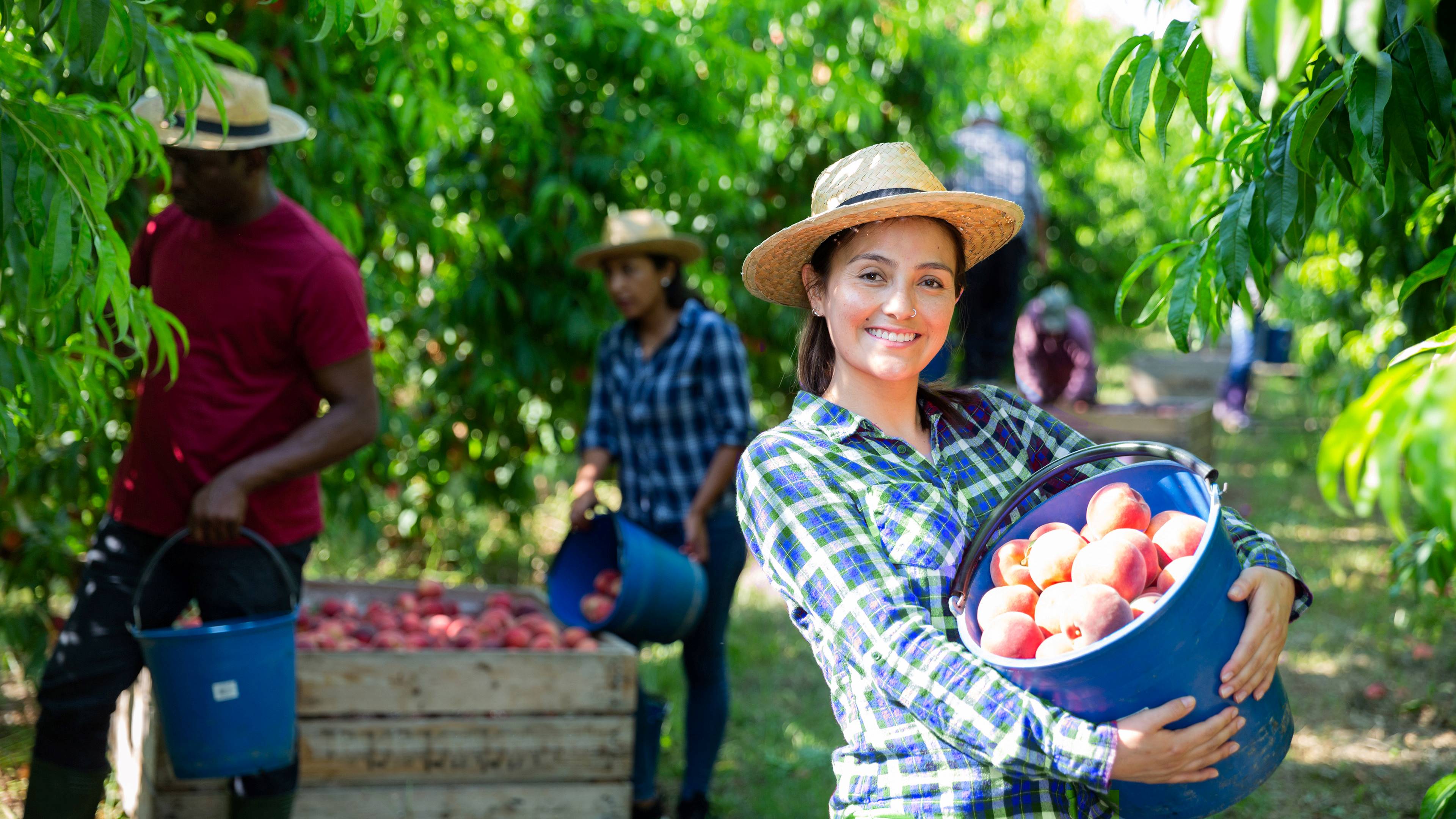
Add-on to core solution
GLOBALG.A.P. Farm Sustainability Assessment
The GLOBALG.A.P. Farm Sustainability Assessment (GGFSA) add-on is the result of a unique partnership between GLOBALG.A.P. and the Sustainable Agriculture Initiative Platform (SAI Platform), encouraging producers to claim an FSA level when achieving their GLOBALG.A.P. certification.
A combined approach to GLOBALG.A.P. certification and an FSA claim
What is the GLOBALG.A.P. Farm Sustainability Assessment?
The GLOBALG.A.P. Farm Sustainability Assessment (GGFSA) add-on bridges the gap between GLOBALG.A.P. certification and the Farm Sustainability Assessment (FSA) from SAI Platform. Through a tailored set of questions, the collaborative add-on enables producers or producer groups to combine FSA verification with a GLOBALG.A.P. standard for plants in a single audit, eliminating duplication. Following a successful audit, producers can make a verified FSA Claim that facilitates transparent and cost-efficient sourcing for traders, retailers, and manufacturers.
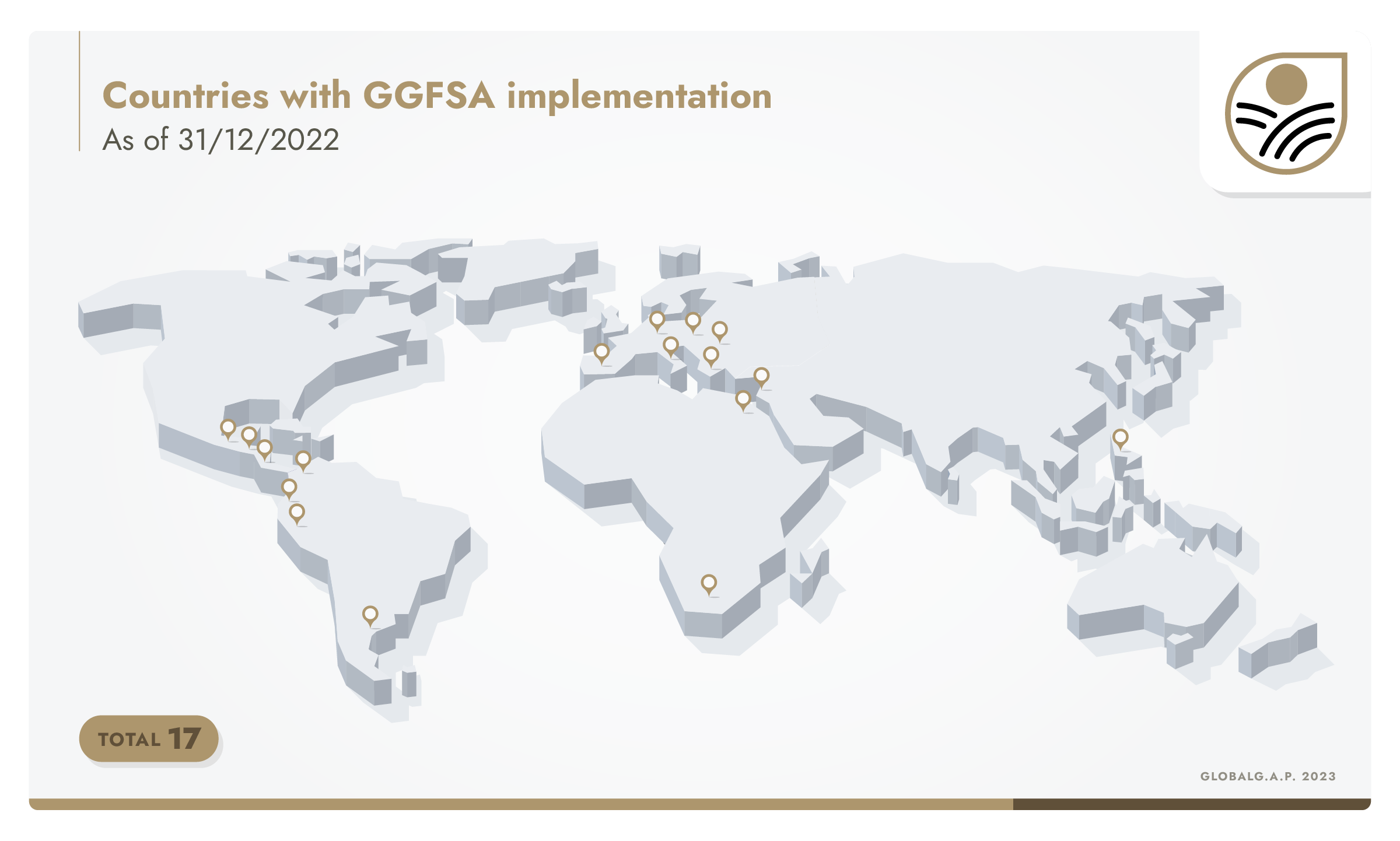
GGFSA at a glance
Abbreviated
FSA checklist of 28 principles and criteria
Nine
topics addressing on-farm sustainability
Combines
with an IFA or CfP audit
For producers
of fruit and vegetables, combinable crops, plant propagation material, and hops
Applicable
as an individual or group assessment
Allows verified
FSA Gold, Silver, or Bronze claims
Abbreviated
FSA checklist of 28 principles and criteria
For producers
of fruit and vegetables, combinable crops, plant propagation material, and hops
Nine
topics addressing on-farm sustainability
Applicable
as an individual or group assessment
Combines
with an IFA or CfP audit
Allows verified
FSA Gold, Silver, or Bronze claims
What is SAI Platform and the Farm Sustainability Assessment?
About SAI Platform
The Sustainable Agriculture Initiative Platform (SAI Platform) is a global food and drink value chain initiative that aims to accelerate the widespread adoption of sustainable agriculture practices and the transformation to sustainable food systems. One strategy for achieving this is the Farm Sustainability Assessment (FSA) tool.
FSA by SAI Platform
The FSA enables producers to assess and measure on-farm sustainability in line with global best practices. Built around a set of 109 simple questions to producers, the FSA addresses 11 sustainability topics:
Farm management and community
Plant material selection and propagation
Soil management
Nutrient management
Chemical control
Integrated pest management
Waste management
Water management
Biodiversity
Air quality and emissions
Labor conditions
Producers can either use the set of questions as a self-assessment to analyze their level of sustainability and use it as a basis to improve upon, or they can undergo an assessment to verify their FSA Claim. With this approach, the farm or group can choose to include it in the scope for a third-party audit by a certification body (CB) only when they feel confident in the results of the self-assessment.

What is an FSA Claim?
Many businesses wish to market their sustainability efforts, and an FSA Claim is one way to do so. Furthermore, many buyers and suppliers choose to use the FSA to assess the status of on-farm sustainability in their supply chains.
Based on the answers to the 109 questions in FSA, producers and producer groups can calculate their level of compliance and determine whether they have reached a Bronze, Silver, or Gold level of compliance (Gold being the highest). If the producer or producer group is using the FSA or GGFSA only as a self-assessment with no third-party verification, they are not authorized to publicize their level of compliance.
Publicizing the compliance level represents an FSA Claim. Claims to a performance level may only be made if a third party – i.e., a certification or verification body – has confirmed the level during an FSA verification assessment.
For more information on FSA Claims, please refer to the FSA documents or FSA/SAI website.
Who should use GGFSA?
The GGFSA add-on has been designed for any producer that wants to combine GLOBALG.A.P. certification for the plants scope, i.e., Integrated Farm Assurance (IFA) or Crops for Processing (CfP), with FSA verification in the most streamlined way possible.
Farm types
GGFSA must be audited together with IFA or CfP and is therefore applicable for the following types of farms:
Fruit and vegetables
Combinable crops
Plant propagation material
Hops
The producer or producer group may select exactly which crops are audited against GGFSA, as long as these crops are also within the scope of the IFA or CfP standards. GGFSA cannot be applied to the production of aquaculture, or flowers and ornamentals.
Certification options
As with IFA, GGFSA is applicable to both individual producers (Option 1) and producer groups (Option 2). For producer groups, there are additional requirements for the quality management system (QMS), including ensuring that systems are in place to accurately account for FSA volumes and scores (traceability) and to deliver continuous improvement after the first audit.
How does GGFSA work?
The GGFSA add-on is a way to bridge the gap between GLOBALG.A.P. certification and FSA with minimal extra effort.
It may be used as a self-assessment to analyze sustainability efforts or as an audit checklist to verify an FSA claim.
If choosing to undergo a verification audit, compliance with the GGFSA requirements is checked by an accredited and independent third-party certification body (CB).
Producers have the freedom to choose which CB they use (although it must be the same CB conducting the IFA/CfP audit and GGFSA audit.
A successful audit to GGFSA results in a letter of conformance which is valid for three years.
IFA v6 for fruit and vegetables already covers many of the 109 FSA questions. The remaining questions form the principles and criteria in the GGFSA checklist.
Standard content is formed of principles and criteria (P&Cs). are graded in three levels: Essential, Intermediate, or Advanced.
Principles
Fundamentals that set the foundation of a GLOBALG.A.P. requirement
Written in statement form
Describe the outcome to achieve in the corresponding criteria
Criteria
Methods that producers can use to demonstrate a principle to be true
Compliance can be demonstrated in different ways, e.g., data, record of procedure
Evidence must demonstrate that the outcome is achieved
Read more about the audit process and compliance requirements.
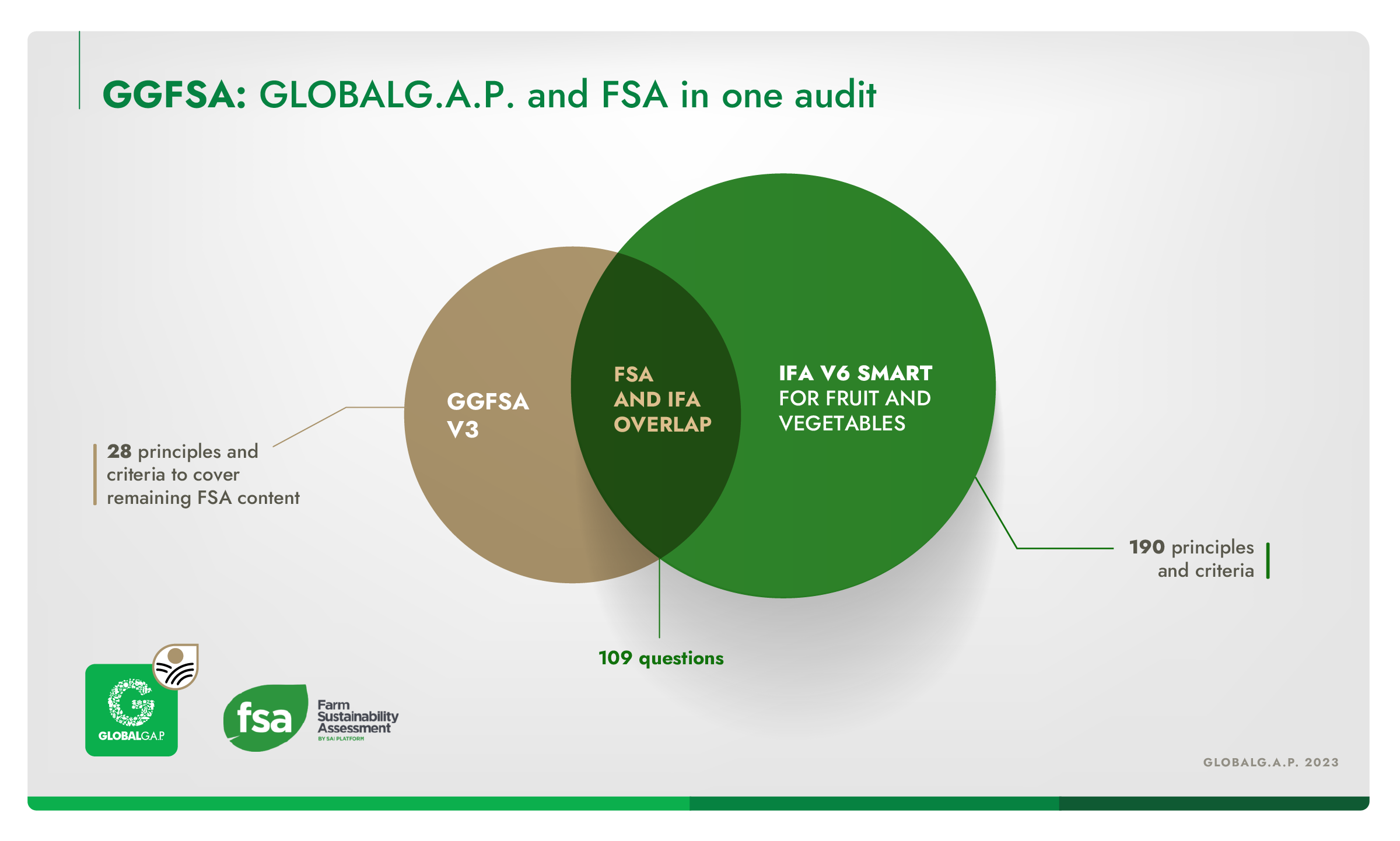
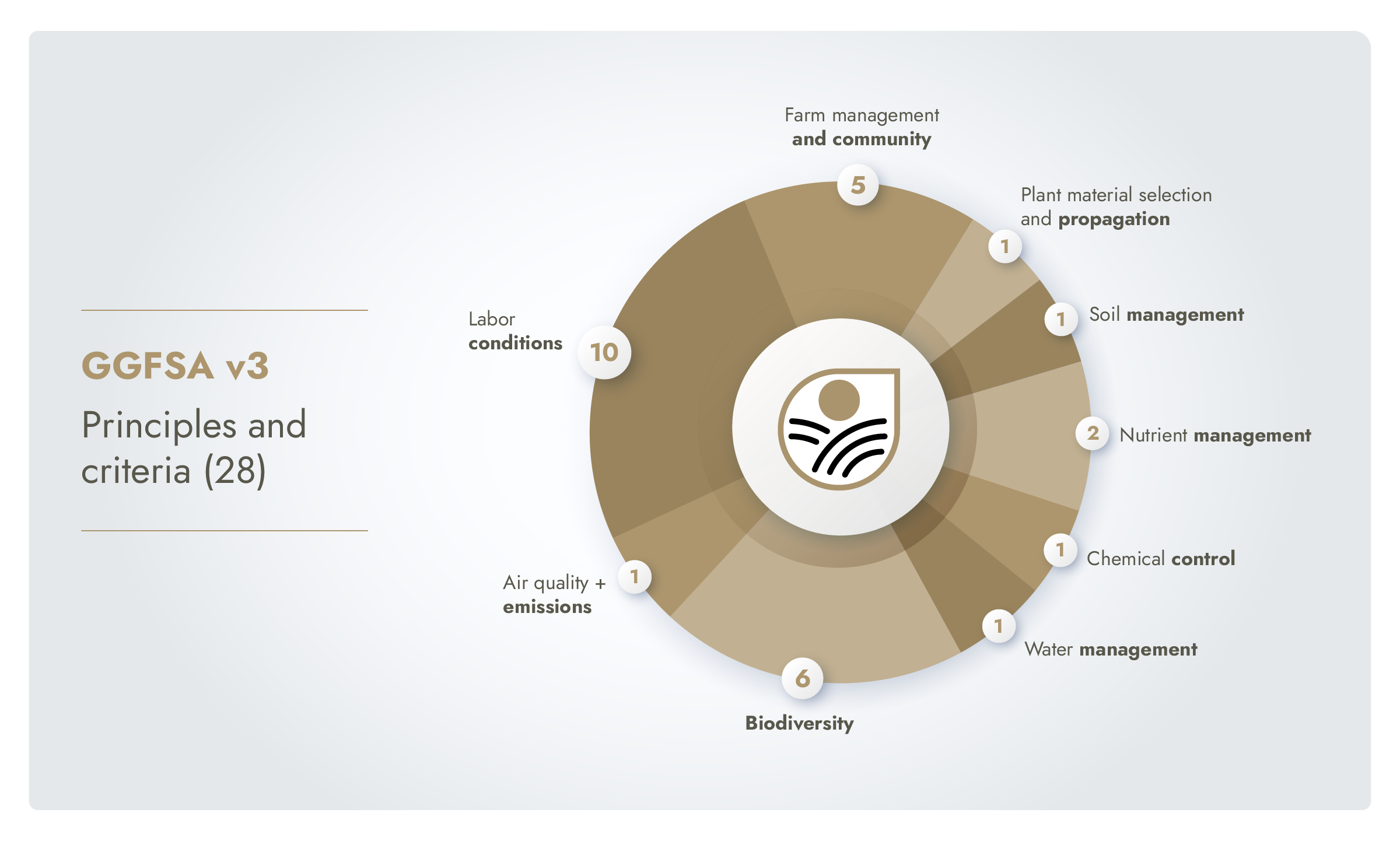
How is conformance status verified?
Every producer registered in the GLOBALG.A.P. certification system is assigned a 13-digit GLOBALG.A.P. identification number (e.g., a GLOBALG.A.P. Number (GGN)).This number allows real-time verification of conformance status in the GLOBALG.A.P. IT platform, upholding our rigorous transparency requirements throughout the supply chain.
Producers can control data access and privacy rights for audit reports, and the reports are not shared publicly or with third parties. This process is handled via your chosen CB.
Latest news
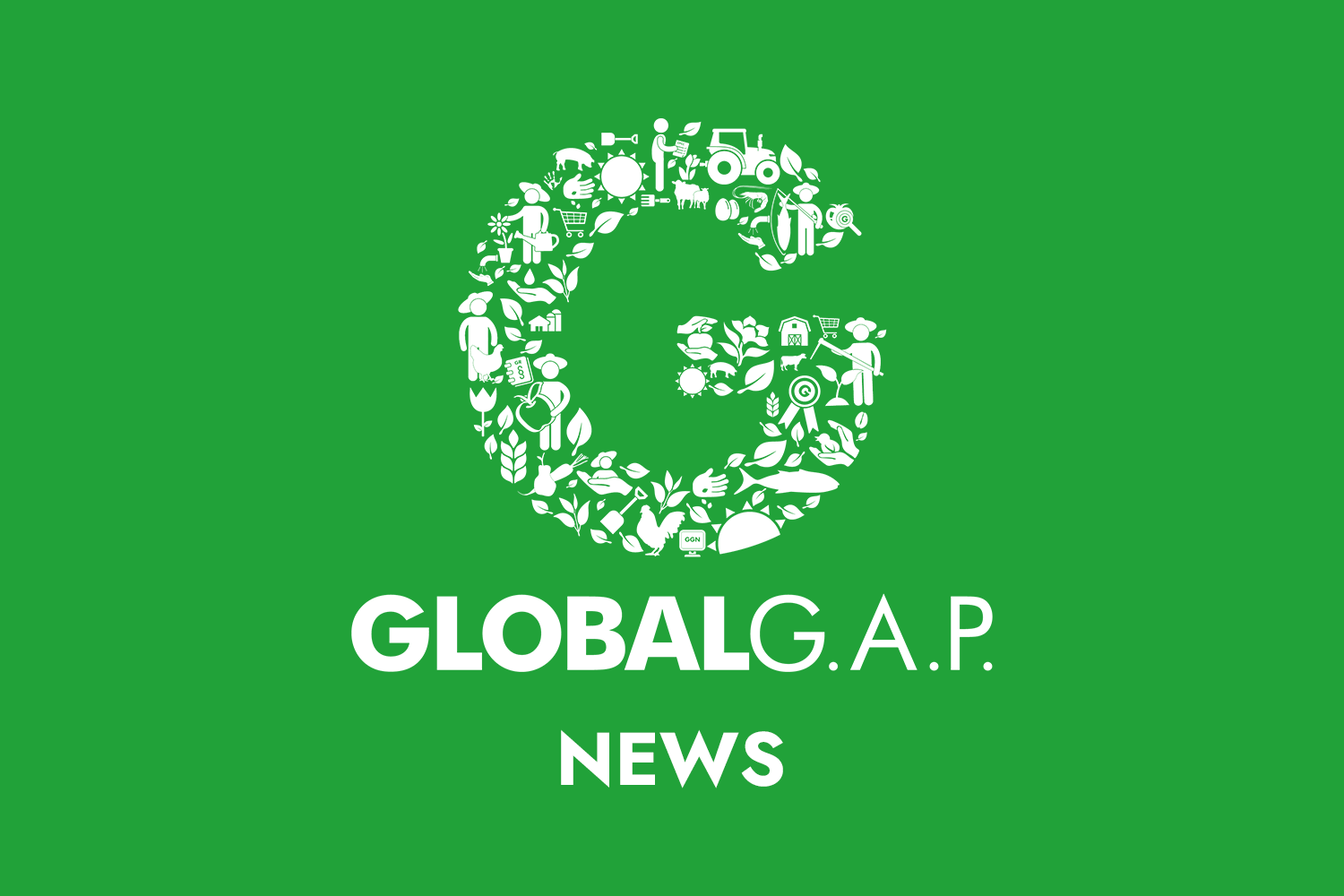
30 June 2025
United States national interpretation guideline published for Integrated Farm Assurance (IFA) v6 GFS for fruit and vegetables
Integrated Farm Assurance (IFA) v6 GFS, recognized by GFSI, is now supported with the newly published national interpretation guideline for fruit and vegetable production in the United States.
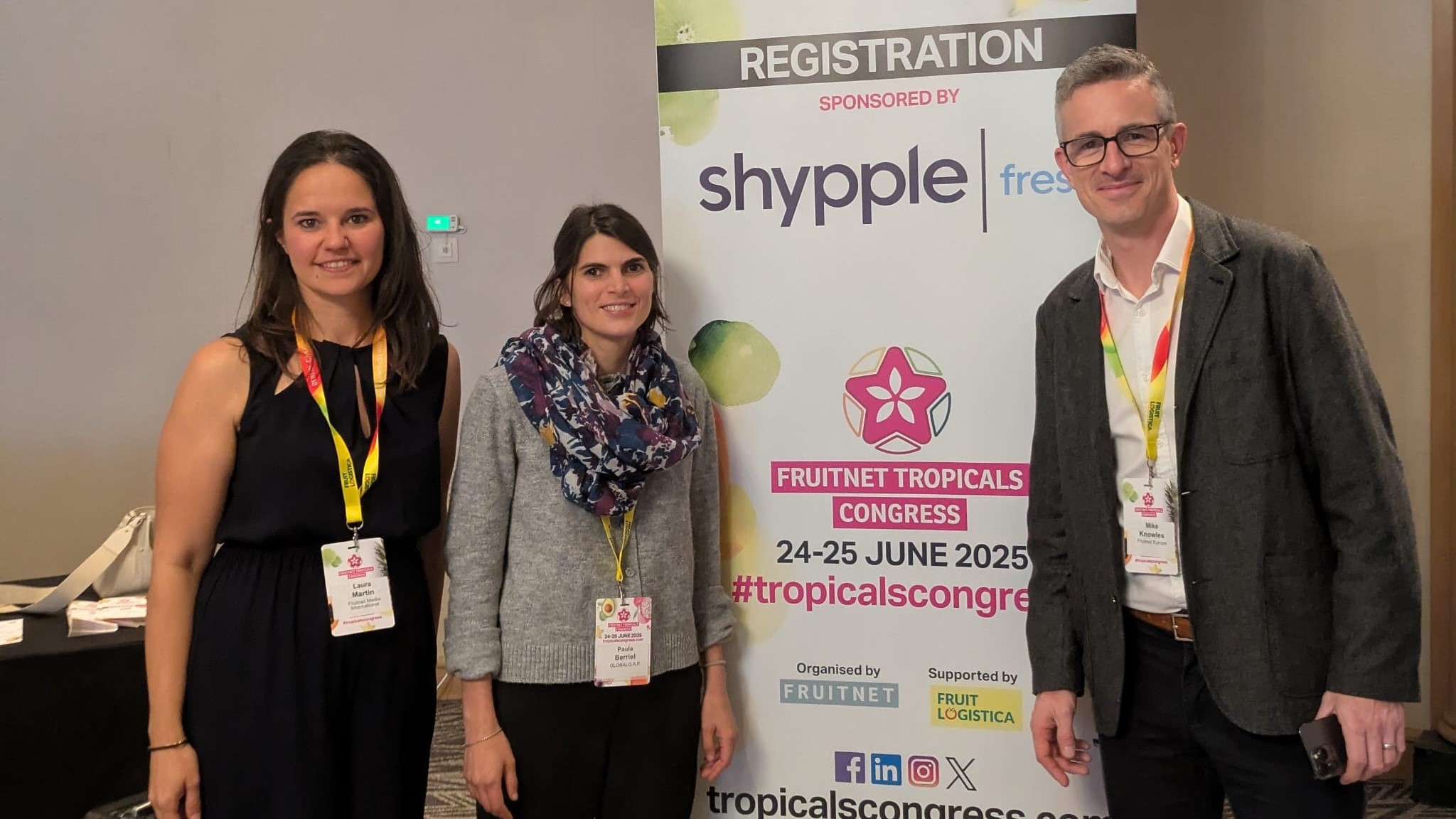
27 June 2025
GLOBALG.A.P. joins international dialogue on tropical fruit at Fruitnet Tropicals Congress 2025
GLOBALG.A.P.’s Paula Berriel, Account Manager, shares her key takeaways from the Fruitnet Tropicals Congress, a key event for the tropical fruit sector.
Looking for technical news?
Technical news updates for all add-ons can be found in our technical news libraries.
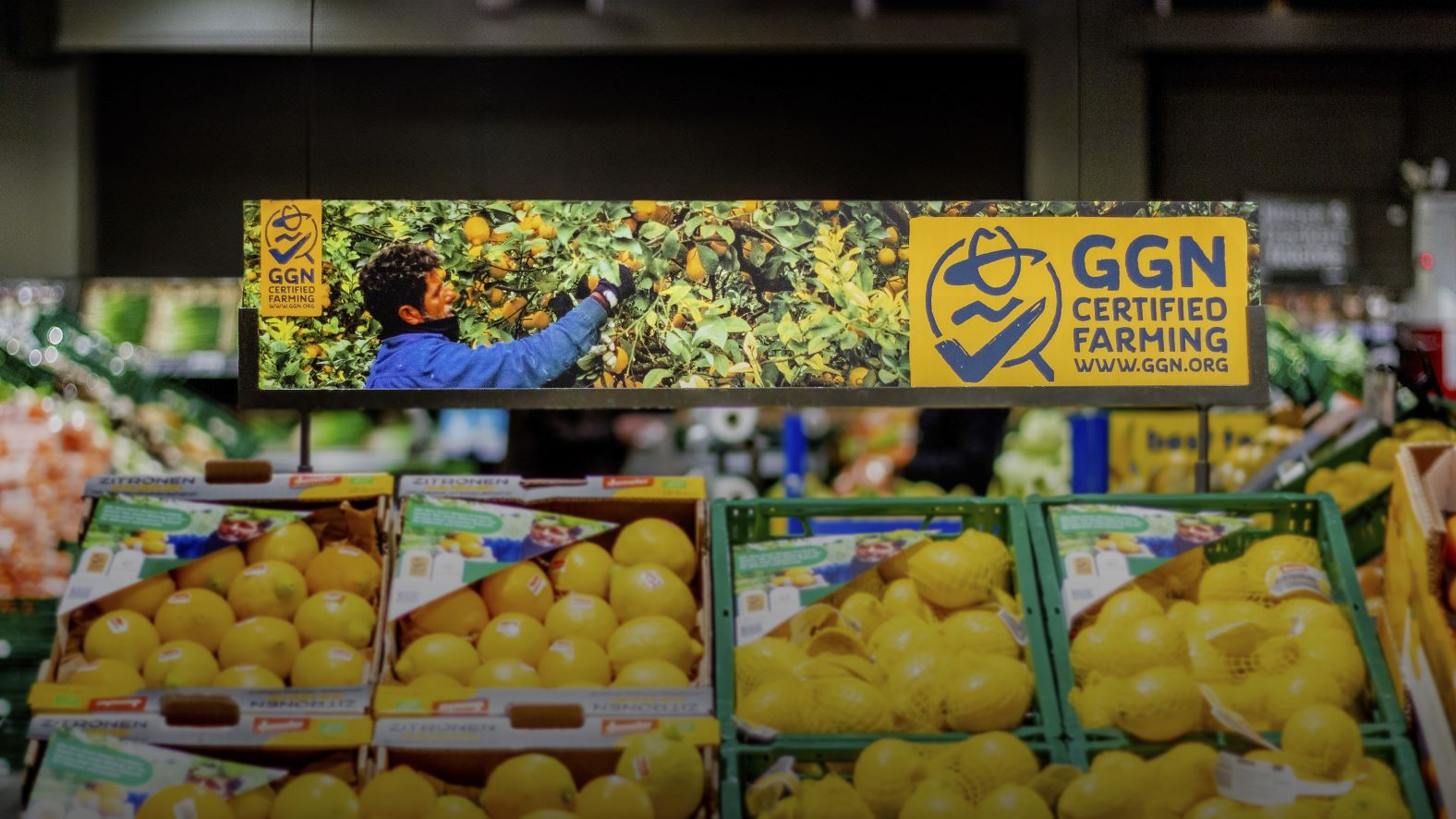
Making responsible farming visible to consumers
Applicable to fruit and vegetables, farmed seafood, and flowers and plants which have been produced in line with GLOBALG.A.P. solutions, the GGN label links conscious consumers to responsible farmers. The cross-category label stands for certified, responsible farming and transparency – enabling consumers to discover the roots of their products.
Save time and costs when making an FSA Claim
Why choose the GLOBALG.A.P. Farm Sustainability Assessment?
Many suppliers and buyers in the value chain are requesting proof of performance for sustainability efforts at farm level. The Farm Sustainability Assessment (FSA) by SAI Platform is a well-known indicator of on-farm sustainability, but producers are required to undergo a verification audit by a certification body (CB) before they can claim an FSA performance level. For producers who also need GLOBALG.A.P. certification, the GLOBALG.A.P. Farm Sustainability Assessment (GGFSA) add-on offers the perfect way to combine the two solutions and capitalize on their synergies.
Which industry challenges does GGFSA address?
There is a growing awareness of the interaction between the environment and agriculture and the potential challenges that arise.
Producers, manufacturers, and retailers are facing increasing pressure to make agri-food supply chains as sustainable as possible – and provide proof of this.
Buyers are therefore seeking a growing range of assurances about responsible practices, and producers are met with an increasing number of audits to satisfy them.
Duplication of farm assurance between the different schemes must be reduced, and the synergies between them promoted.
GGFSA is the result of a unique partnership bringing together key partners who strive for more sustainable production and supply chains.
Follow our five steps to GGFSA to get started today.
GGFSA in numbers (as of 31/12/2024)
11,178
producers audited to the add-on
17
countries with audited production processes
134,253
hectares of audited production
11,178
producers audited to the add-on
17
countries with audited production processes
134,253
hectares of audited production
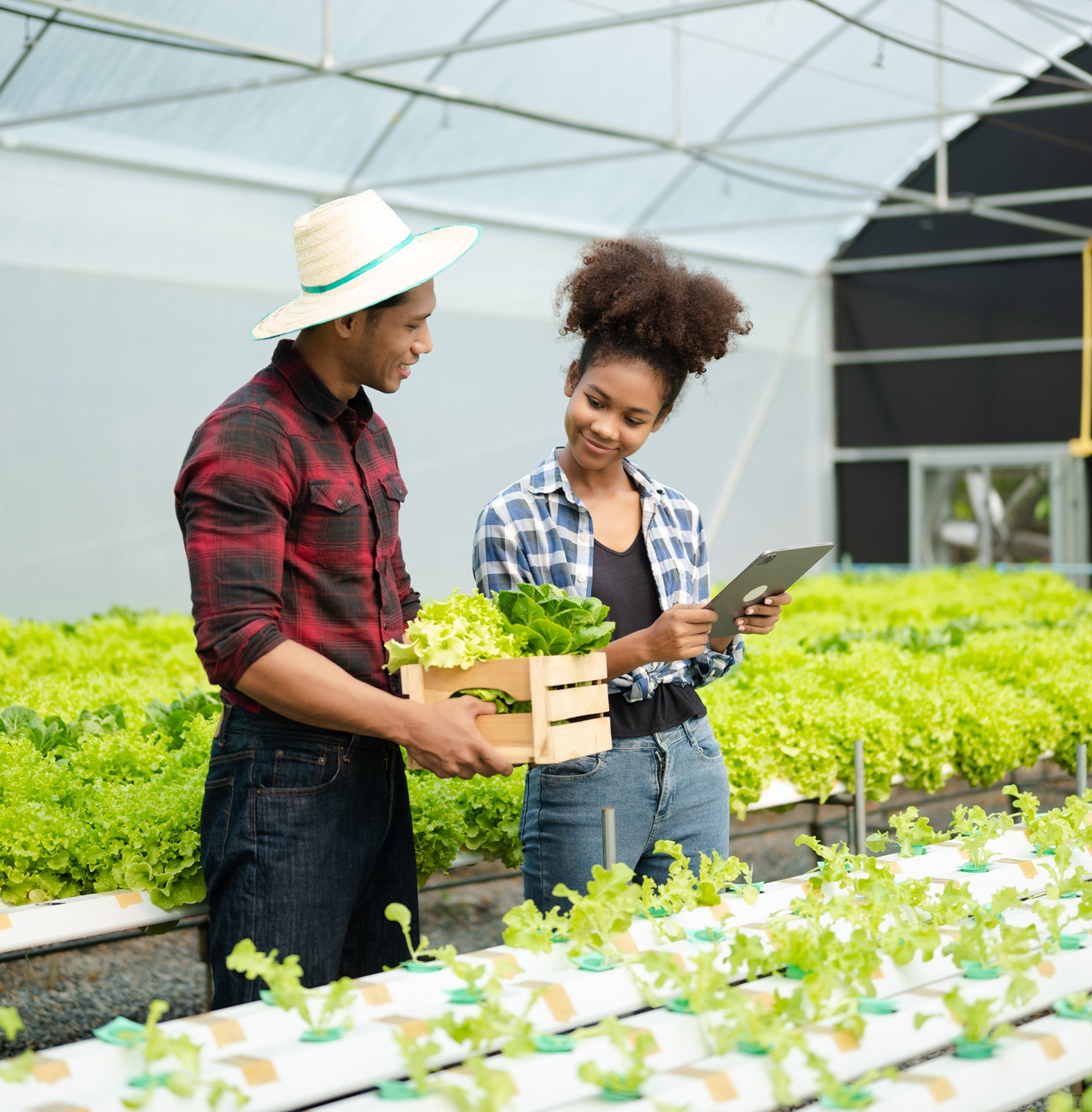
What are the benefits for producers?
Track your journey towards more sustainable practices
GGFSA may be used as a starting point for a continuous improvement program. A self-assessment against the GGFSA checklist helps to promote an understanding of the farm’s current sustainability efforts and identify areas to improve upon. Once the farm or group feels confident in their sustainability efforts and wants to make a verified FSA claim, they can undergo a GGFSA audit.
Save time and money
Combining the FSA verification with the GLOBALG.A.P. Integrated Farm Assurance (IFA) audit acknowledges the overlap between the two schemes and accepts that the same principle need not be audited twice. Adopting this method significantly reduces the assessment workload of the CB, with a shorter audit resulting in time and money savings for producers.
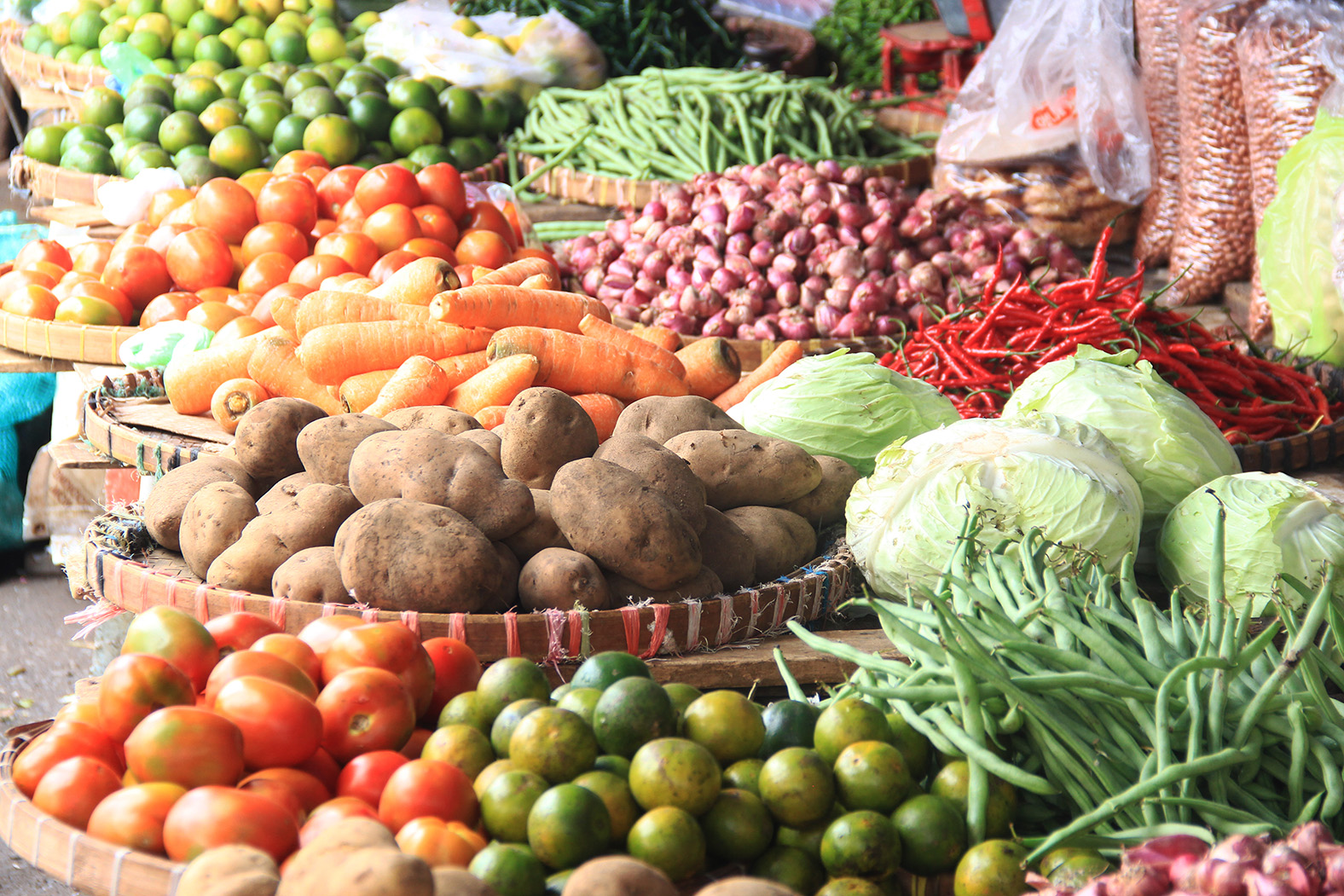
What are the benefits for retailers and brand owners?
Strengthen your sourcing policy in a practical way
Many supply chain stakeholders would like to accelerate their responsible sourcing requirements but are aware that every additional audit is another burden for producers. The combination audit of IFA and GGFSA means that you can request suppliers to verify their FSA Claim without duplicating the effort required on their part.
Measure, assess, and improve
GGFSA enables food and drink businesses to assess on-farm sustainability in their supply chains and set ambitious but reachable targets for producers going forward. As such, GGFSA acts as both a solution for the present day and inspiration for the future.
Integrated Farm Assurance for fruit and vegetables
IFA is a global standard that aims to promote safer and more responsible farming practices in fruit and vegetable production.
Integrated Farm Assurance for hops
IFA is a global standard that aims to promote for safer and more responsible farming practices in hop production.
Integrated Farm Assurance for combinable crops
IFA is a global standard that aims to promote safer and more responsible farming practices in combinable crops production.

Ready to get started?
Use our Smart Checklist Builder to easily understand which GLOBALG.A.P. smart farm assurance solutions are recommended for your production practices and generate a personalized checklist for your self-assessment.
Your guide to implementation
How to prepare for a GLOBALG.A.P. Farm Sustainability Assessment audit
Learn more about the key documents and fee structure of the GGFSA add-on. Follow our five steps to GGFSA guide for an overview of the audit process and find a GLOBALG.A.P. approved certification body (CB) in your area to get started.
Implementation and CB audit process
How does the GGFSA audit process work?
Designed to complement existing GLOBALG.A.P. certification, GGFSA compliance is audited every three years by accredited and independent third-party CBs in combination with an Integrated Farm Assurance (IFA) or Crops for Processing (CfP) audit.
The same CB must complete both parts of the audit (GGFSA and IFA/CfP).
A successful CB audit to GGFSA results in a letter of conformance valid for three years.
The CB is responsible for uploading the audit report and maintaining the accuracy of producer data in the GLOBALG.A.P. IT platform.
Which documents are required?
General rules: Rules that define how the audit process works, from the scope of the respective standard to the audit process and audit requirements.
Principles and criteria: Principles are the fundamental requirements for each standard and add-on. They describe the outcome to achieve and are accompanied by corresponding criteria that detail the various ways in which a producer can demonstrate compliance.
Checklist: The full list of add-on criteria as used by CB auditors, enabling producers to perform a self-assessment in preparation for the CB audit.
Which version of GGFSA is currently valid?
GGFSA is valid in v3. This has been required for all audits taking place after April 2023, although letters of conformance and FSA Claims for v2.1 remain valid for their full three-year cycle, which may last until 2026.
V3 may be combined with IFA v6 and CfP v1.1.
The FAQ contains more information on versions, documents, and FSA Claims.
What are the GGFSA add-on requirements?
In the full FSA by SAI Platform, there are three levels of questions: Essential, Intermediate, and Advanced. The more questions to which a farmer can respond positively, the better their performance level.
The same scoring weighting applies to GGFSA: There are 28 principles and criteria, of which 6 are “Essential”, 12 are “Intermediate”, and 10 are “Advanced”. To achieve the gold level and be able to make an FSA Gold Claim, producers must therefore demonstrate compliance with all 18 of the Essential and Intermediate principles and at least 8 of the Advanced principles.
Producers who undergo an audit to GGFSA will receive a letter of conformance which states their performance level.
How much does a GGFSA audit cost?
The GGFSA add-on is designed to save producers time and money by permitting combination audits, but it is important to remember that the extra time it takes to audit the GGFSA add-on in addition to IFA or CfP will be factored into your CB’s audit fees.
Please note that each farm is unique, and the total costs depend on a combination of factors such as farm size, number of sites, location, necessary preparation measures (such as establishing new procedures), and more. GGFSA contains three cost elements:
Implementation costs: Incurred by the producer to prepare for the CB audit
CB service fees: Determined and invoiced by the CB to cover audit time and travel costs
GLOBALG.A.P. registration fee: Calculated based on farm size and invoiced by the CB
The GLOBALG.A.P. fee table contains full information on the fee structure for each standard and add-on.
Five steps to GGFSA

You will need the GGFSA add-on rules, as well as the GGFSA principles and criteria, and the checklist. All the required documents are available online, for free, and in multiple languages. They are linked below and can easily be found in the GLOBALG.A.P. document center.
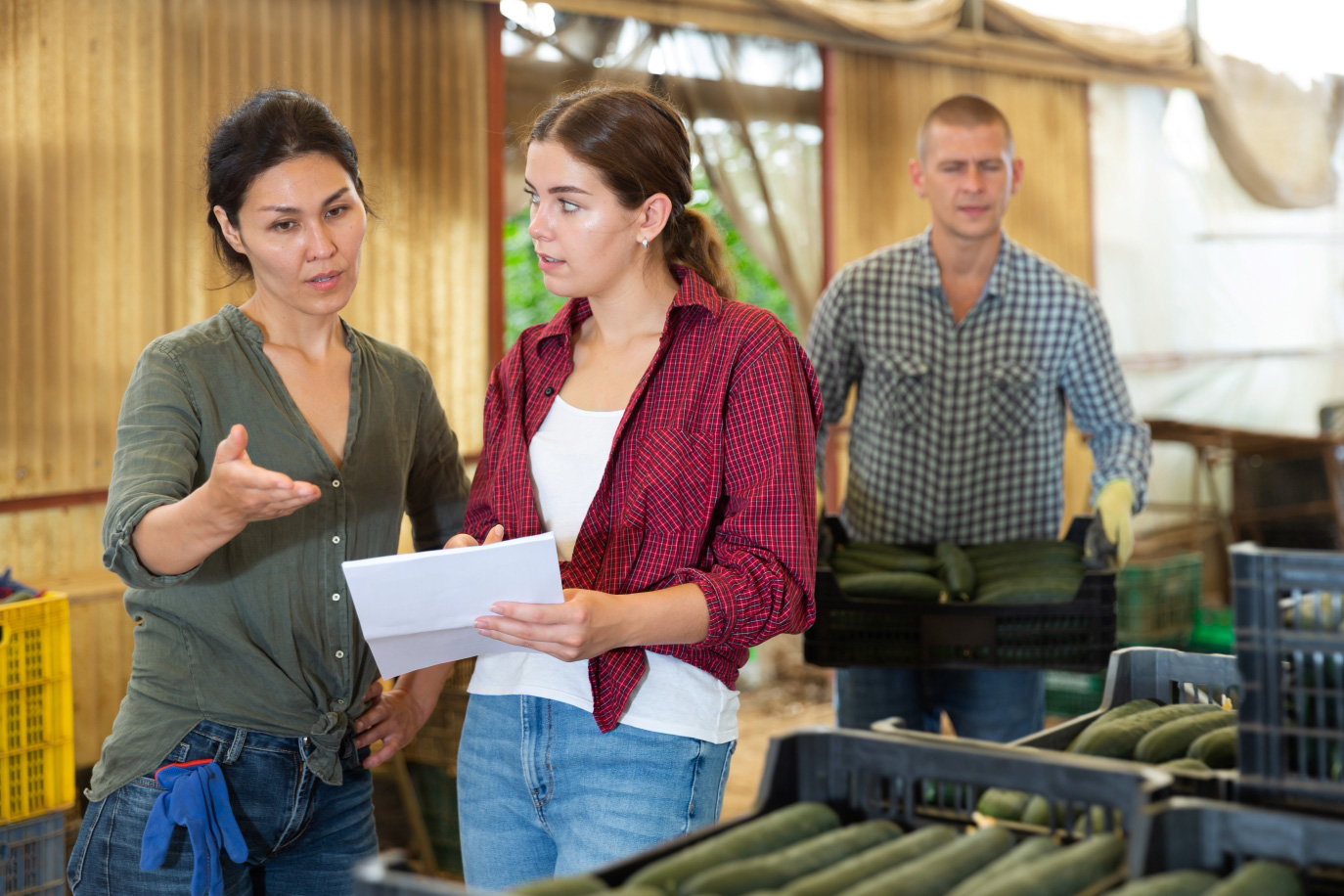
Use the documents to guide the implementation of the add-on requirements, and then
conduct a self-assessment using the checklist. Our worldwide network of Registered Trainers
can also provide assistance during audit preparations.

Search the list of GLOBALG.A.P. approved CBs by region, country, scope, and status. Contact the CB of your choice and request an audit. Note that the GLOBALG.A.P. fee table does not cover CB service fees such as audit time or travel costs to your site.
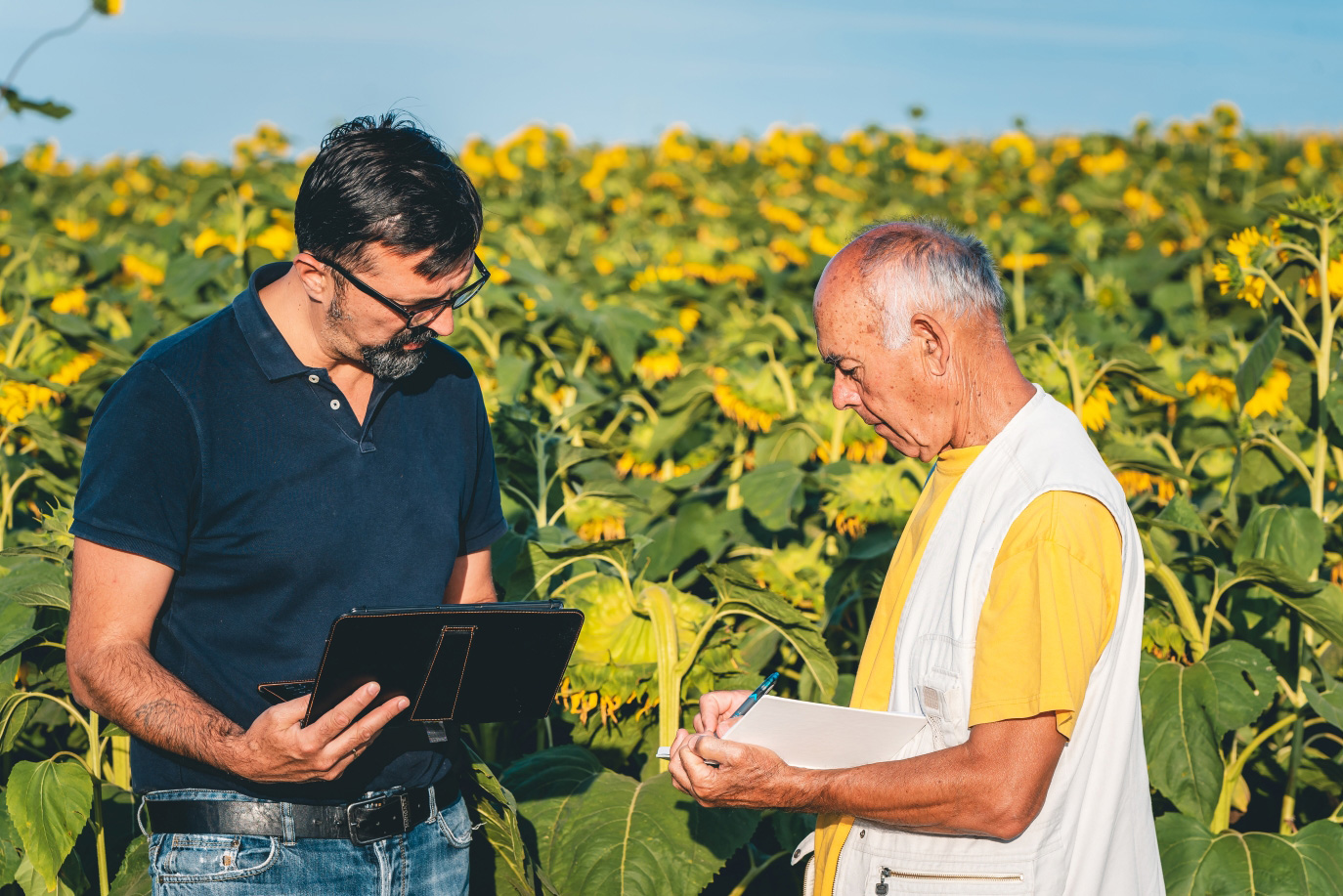
The CB will perform the on-site audit and upload the results to the GLOBALG.A.P. IT platform. Any non-compliances which are detected during the audit must be corrected within the specified period and verified by the CB before a letter of conformance can be issued.

When all requirements are met and verified by the CB, they will issue your letter of conformance for GGFSA. Your status is then publicly visible in the GLOBALG.A.P. IT platform for transparency in the market. The letter of conformance – as well as the authorization to make an FSA performance level Claim – is valid for three years.
Key documents
The three most relevant documents are linked below. Click ‘view more’ to see further related documents. Remember to always check with your CB that you have all necessary documents prior to audit.
Rules for plants scope
GLOBALG.A.P. general regulations
V6
English | Last updated: 02/07/2025
GLOBALG.A.P. general regulations
V6
English | Last updated: 02/07/2025
GLOBALG.A.P. general regulations outline the framework of the certification system, including the role and relationship of the GLOBALG.A.P. Secretariat and certification bodies, and provide context for implementing checklist content.
GGFSA
Checklists
V3
English | Last updated: 29/11/2024
xlsx
Checklists
V3
English | Last updated: 29/11/2024
xlsx
Checklists are documents containing standard/add-on principles and criteria which are used during the audit/assessment to check whether compliance is achieved. They may also be used to conduct self-assessments.
GLOBALG.A.P. approved CBs
The list of GLOBALG.A.P. approved CBs can be filtered by region, country, scope, and status. Click a CB to find more information and contact details.
If you do not filter your search, or filter only according to region and/or country, your search results will also show CBs that offer certification against benchmarked schemes, but which may not have approval for any GLOBALG.A.P. standards and add-ons.
Upcoming events
12 Jul - 15 Jul
2025
Cultivate’25
Location: Colombus, Ohio
Event type: Trade fair
Event format: On-site
16 Jul
2025
The relevance of regenerative agriculture for fresh produce and floral – sponsored by GLOBALG.A.P. North America
Location: Online | Zoom
Event type: Webinar
Event format: Virtual
GGFSA history
Initiation of the Declaration of Abu Dhabi
A global collaboration unities public and private partners to develop and a common set of good agricultural practices criteria that defines safe, environmentally, and socially responsible agriculture and aquaculture.
Learn more about the Declaration of Abu DhabiBenchmarking of IFA v5.0-2 to FSA v2.0
To establish the necessary content for the new add-on benchmarking of IFA v5 to FSA v2 takes place.
Field trials and publication of GGFSA v2.1
A pilot is conducted to test the implementation of GGFSA on apple production in Italy in September 2017.
GGFSA v2.1 is published in October.
GGFSA v2.1 becomes valid
GGFSA v2.1 is ready for implementation as of 1 January 2018.
First implementation
By the end of the year there are 503 producers implementing GGFSA in seven countries.
Increasing popularity
By the end of 2020, 10,315 producers are implementing GGFSA in eight countries.
Developing GGFSA v3
Following the launch of IFA v6 in April, a new benchmarking between FSA version 3 and IFA v6 takes place. In December, a draft of GGFSA v3 is presented.
GGFSA v3 is published
GGFSA v3 is ready for implementation as of March 2023. Key changes include the addition of new questions, adapting terminology, and revising the performance level requirements for Bronze and Silver Claims.
V3 replaces v2.1 for all new GGFSA audits as of 1 May 2023.
FAQ
Version 3 of the GGFSA add-on replaced v2.1 for new audits as of 1 May 2023. GGFSA v3 can be combined with IFA v6 or CfP v1.1 for the product categories of fruit and vegetables, combinable crops, and hops.
Yes, if you prefer not to wait to achieve FSA verification, the initial CB audit to GGFSA may be conducted mid-cycle for producers already certified to IFA or CfP.
Each farm is unique, and the total cost of GGFSA implementation depends on a combination of factors (such as size, location, existing policies and processes, etc.). The invoice from your CB will include CB service fees to cover expenditures (determined by the CB) and the GLOBALG.A.P. registration fee (determined by farm size).
Download the GLOBALG.A.P. fee table to learn more.
GGFSA v3 is currently available in English, Greek, Italian, Polish, and Spanish.
While high performance in the FSA should make complying with GLOBALG.A.P. standards easier, the add-on only offers a one-way route to equivalence with the FSA for farms and farm management groups already under GLOBALG.A.P. certification, not the other way around.
If you would like to get certified to a GLOBALG.A.P. standard that can be combined with the GGFSA add-on, use our Smart Checklist Builder or visit the pages for the IFA standards for fruit and vegetables, combinable crops, or hops.
Certification bodies that have been approved for both the IFA standard for plants (or Crops for Processing) and the GLOBALG.A.P. Risk Assessment on Social Practice (GRASP) add-on can apply for approval for the GGFSA add-on. No extra training is necessary.
Learn more about extending your auditing scope.
The GLOBALG.A.P. IFA standard for plants is benchmarked to the latest Farm Sustainability Assessment version by SAI Platform. Once the FSA questions that are not covered (or only partly covered) by the GLOBALG.A.P. system have been identified, those FSA questions become the basis for GGFSA. In GGFSA v3 there are 28 principles and criteria, and a pilot was conducted on apple production in Italy.
Based on the answers to the questions in FSA or GGFSA, producers and producer groups can calculate their level of compliance and determine whether they have reached a Bronze, Silver, or Gold level of compliance (Gold being the highest). Publicizing the compliance level is known as making an FSA Claim.
FSA Claims may only be made if you undergo third-party verification (e.g., a GGFSA audit). If you are using the FSA or GGFSA only as a self-assessment with no third-party verification, you are not authorized to publicize an FSA Claim.
FSA Claims are a B2B initiative only and may not be printed on product packaging. For more information on FSA Claims, please refer to the FSA documents or FSA/SAI website.
No. The GGFSA add-on was tailor-made to complement the GLOBALG.A.P. IFA standard for plants and the CfP standard only. Using it together with another program could create redundancy or gaps in FSA coverage which cannot be identified without a direct comparison.
No, but you may wish to consider using the add-on next time around. If you have completed the full FSA self-assessment but have not yet started with verification, please inform your CB and the GLOBALG.A.P. team, who can try to coordinate FSA verification and GLOBALG.A.P. certification to take place at the same time.

Contact us
For questions about technical topics or interpretation of the standard, please contact us at standard_support@globalgap.org.
For questions about the audit process or the GLOBALG.A.P. IT platform, please contact us at customer_support@globalgap.org.
For questions about FSA and SAI Platform, please contact fsatool@saiplatform.org.
